Forum Replies Created
-
AuthorPosts
-
uniteboston
KeymasterDuring the July 4 weekend, 28 of us gathered for our third UB Island BIPOC Retreat Day, an unforgettable experience filled with joy, reflection, and community. Thank you to everyone who joined us on Spectacle Island in the Boston Harbor. It was a blessing to spend the day with friends new and old as each of us left feeling rejuvenated and inspired.
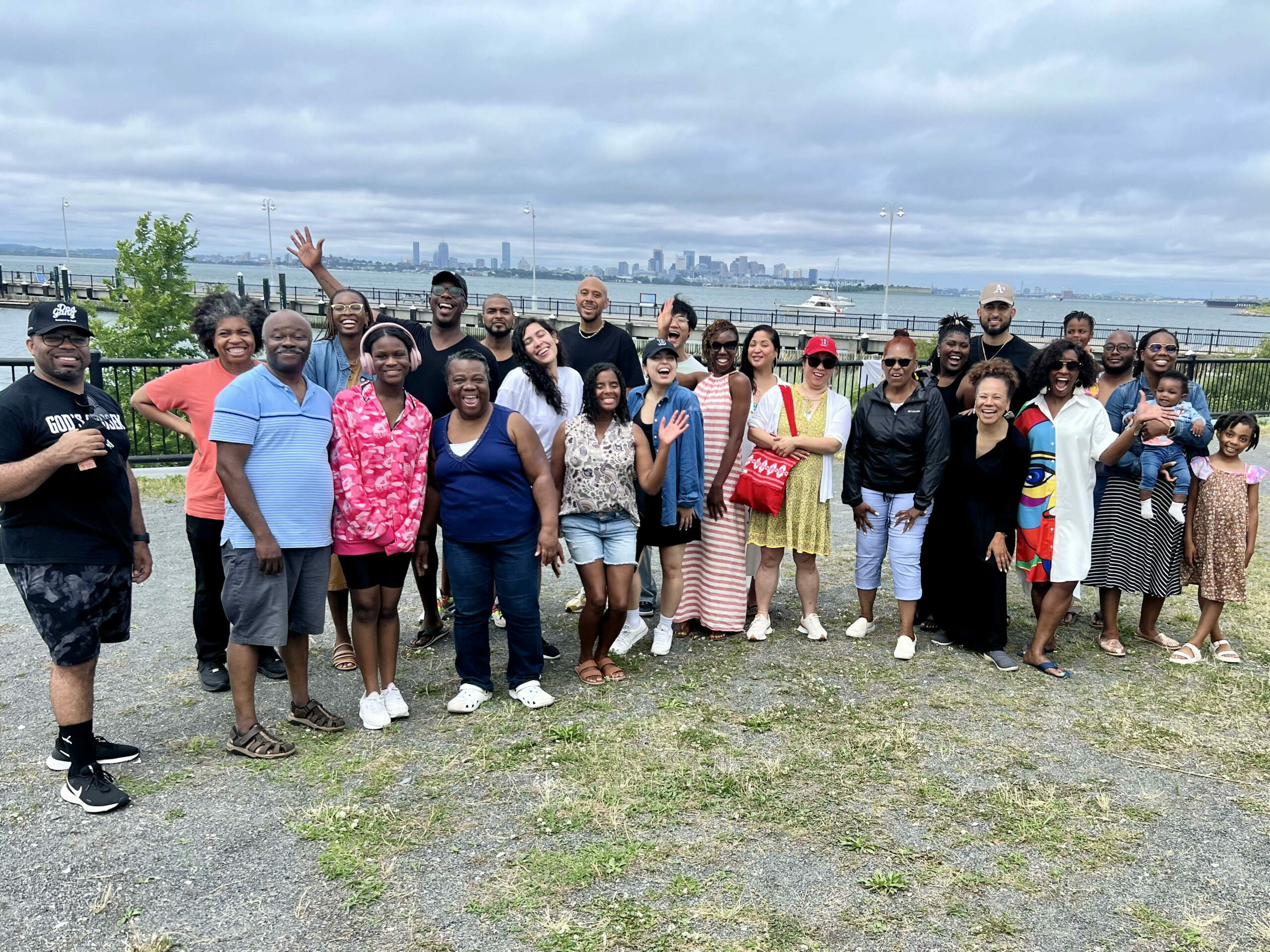
From the moment we set sail on the boat, the energy was palpable. Rev. Devlin kicked off the day with a heartfelt devotional focused on laying our burdens down. This time of reflection set a peaceful tone, reminding us of the importance of rest and renewal amidst our busy lives.
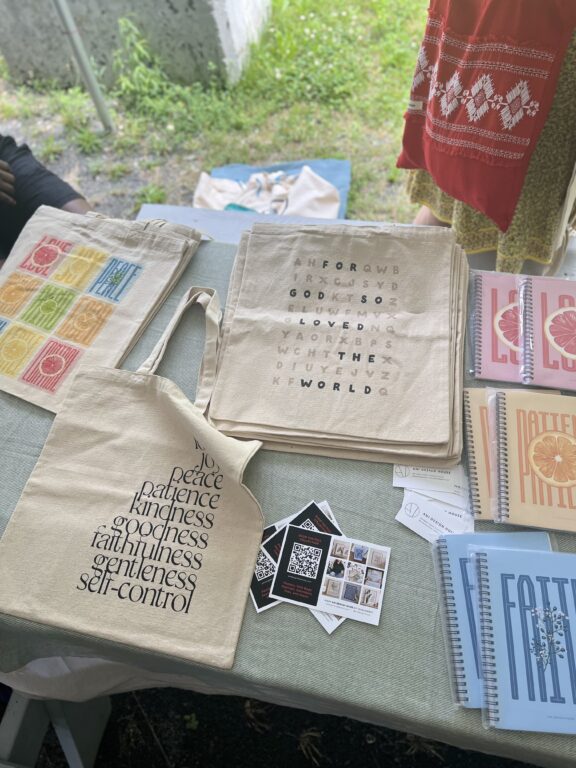
Gifts for the Retreat Attendees 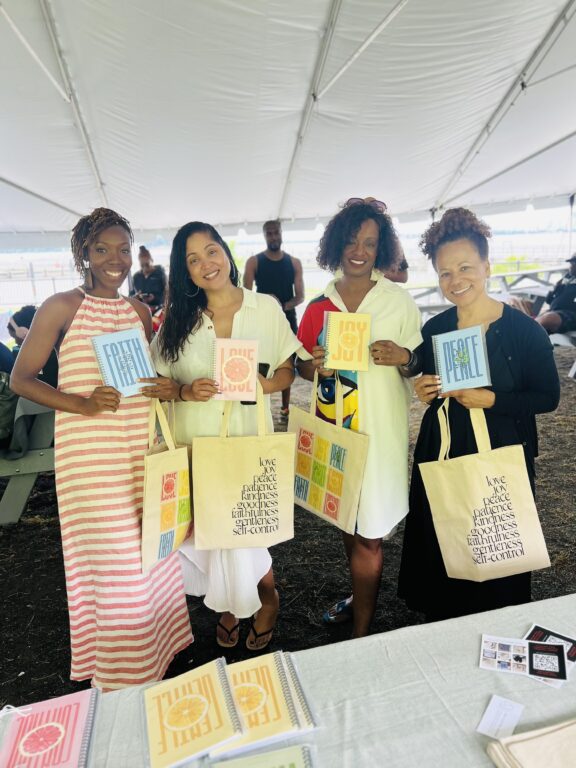
Joyce, Carolina, Remi and Yovanny 
Journals by Ani Design House One of the highlights was our collaboration with Ani Inoyo, local Christian entreprenuer and founder of Ani Design House. Ani Inoyo provided the beautiful gifts that added a touch of elegance to our gathering. Be sure to check out Ani Design House and explore her incredible range of products. Share your purchases and tag them on social media: @AniDesignHouse
Our day was also filled with fun and relaxation. Stiggity Stackz once again brought their freestyle dance battles, infusing the retreat with vibrant energy and creative expression. We enjoyed beach games, massages, and a delicious catered lunch that allowed us to connect and savor the company of friends old and new.
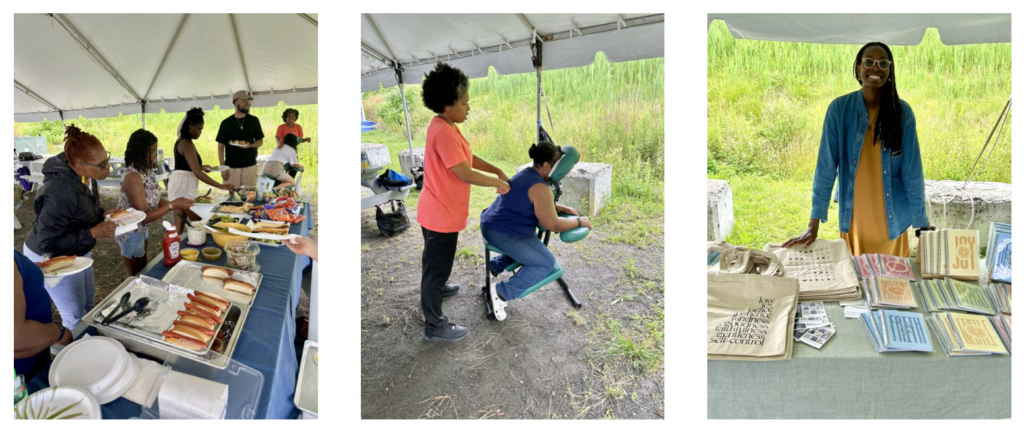
The retreat was not just about relaxation but also about coming together as a circle of restoration. The work of reconciliation can be exhausting, and this intentional space was created for BIPOC leaders involved with UniteBoston to focus on self-care and foster deeper connections. Participants shared how enriched and refreshed they felt after this day-long retreat.
What did the attendees think of the retreat?
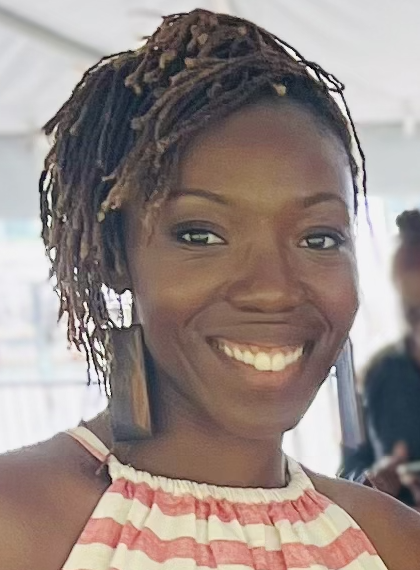
This retreat was wonderful and it’s exactly what I needed. My time of rest incorporated spending time at the beach and then watching and listened to the dancers. It was wonderful to connect with other creatives since my community of artist has gotten much smaller. – Joyce Fombah
“I am moved by the love that goes into planning a day of respite for dozens of relative strangers, and I am grateful to have attended this year’s retreat. The generosity of those who gave up their Saturday to serve and care for relative strangers blessed my soul. I enjoyed meeting so many amazing folks and seeing whole families come out for a day of recreation. The gift from Ani Design House was a pleasant surprise. Thank you, Ani! And thank you, UniteBoston and your wonderful team of volunteers!” – Pastor Valerie Copeland, Pastor of Neighborhood Church – Dorchester.
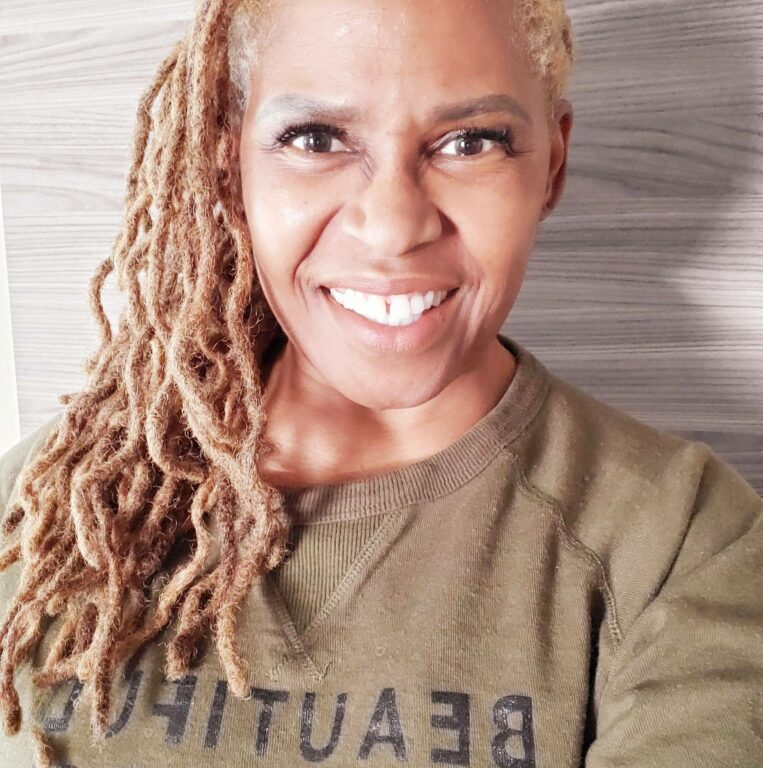
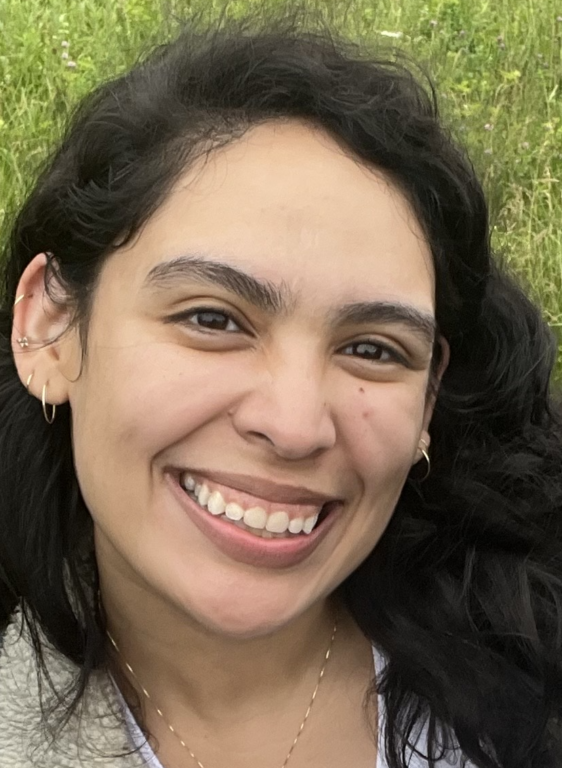
I had an exceptionally refreshing time after a difficult season. This has truly been a restorative and redemptive summer from the Lord. Thank you for your generosity in hosting this much needed and transformative event. – Ashley Nuñez
I had a wonderful time and so glad I was invited this year. – Yovanny Pulcini, Women’s Ministry Leader at Lion of Judah.
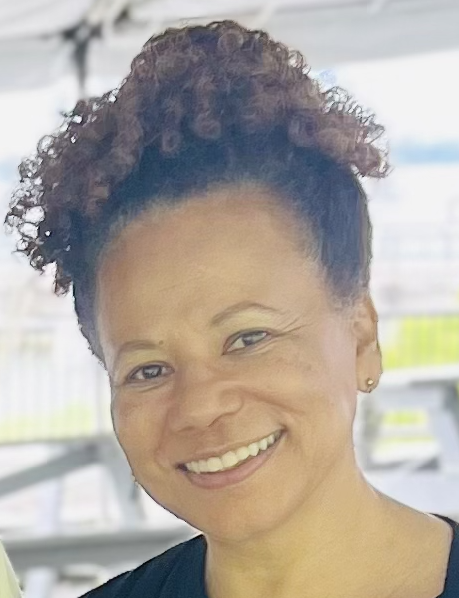

Carolina enjoying the water 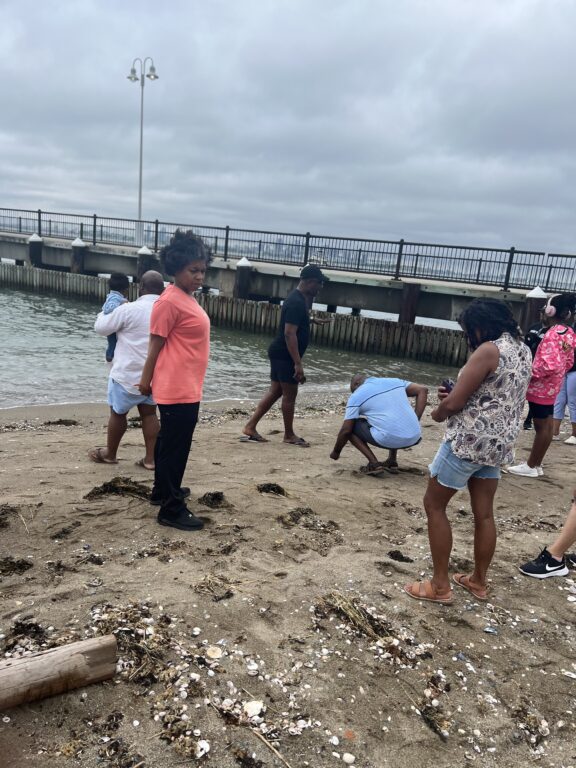
Attendee participating in the devotional on the beach 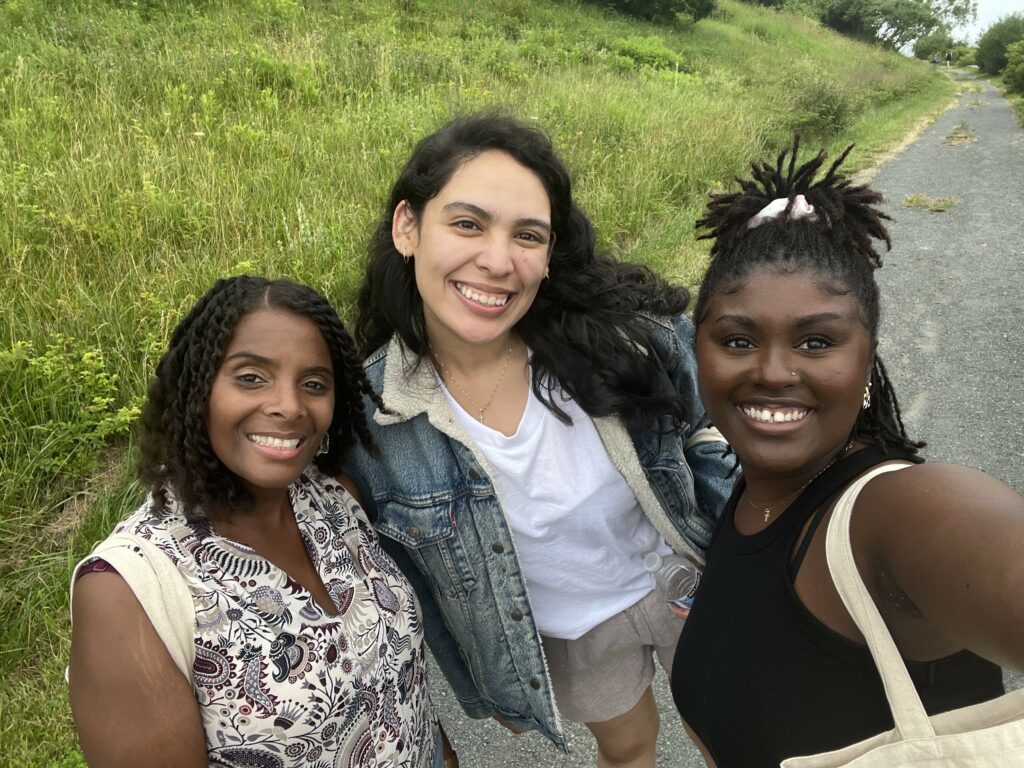
Cleo, Ashley and Katty P.S. A special thanks to Megan Lietz and her team from the Race & Christian Community Initiative for setting up and organizing supplies to contribute to the environment of rest for all attendees.
uniteboston
Keymaster
Amidst the number of new immigrant and refugee families arriving to our city, many churches are opening their doors and hearts to serve and care for our new neighbors. One of these churches is St. Michael’s Episcopal Church in Milton with Pastor Hall Kirkam, which served as a day shelter site for many of our new community members from Haiti.
Read below to hear Pastor Hall’s reflection on the experience and how they have lived out Jesus’ call to welcome the ‘least of these.’
P.S. While the state has asked IFSI to pause on day center services until further notice, there are two urgent opportunities for congregations to serve our new neighbors:
- Coordinating a Neighborhood Support Team, with up to $10k grant funding for teams that apply by 7/31
- Coordinating an Intensive English class with IFSI, where churches provide space and volunteers for a three to six hour session so individuals can practice English towards job readiness. Contact Sheldine Jean-Baptiste to set up a call to discuss the details!

I open my windows on days like this, sunny and warm in June while kids are still together before summer, in order to hear the preschoolers on a playground made tidy and furnished with games and such by The Village School, which rents space from us. I watch as a little one wears butterfly wings and chases another who’s on a tricycle (without a hint of the danger that butterflies face from moving vehicles on the highway).
Mark 9:30-37 tells us that Jesus was on his way to Capernaum in Galilee when he told his disciples a second time that he was going to be handed over to the authorities at some point and be killed. After they arrived, he asked them what they were talking about on the road, and they were quiet, because they’d been talking about who was the greatest among them. He told them, “Look, if you want to be ‘first’ as it were, you will need to be ‘last’, the servant of all. Like this child before me: If you welcome one of these children, you welcome me, and you welcome the one who sent me.”
I listen as families from Haiti, parents and preschool children working with Immigrant Family Services Institute (IFSI), make their way through our Memorial Chapel into the Lower Parish Hall for instruction, administrative help, a hot meal, and maybe a suitcase or clothes or a blessing bag of personal hygiene items, safe from the streets and from the gangs they have escaped back home, safe for now anyway in a place that is beautiful, well- and lovingly-cared-for, and made welcome, by the good people at St. Michael’s.
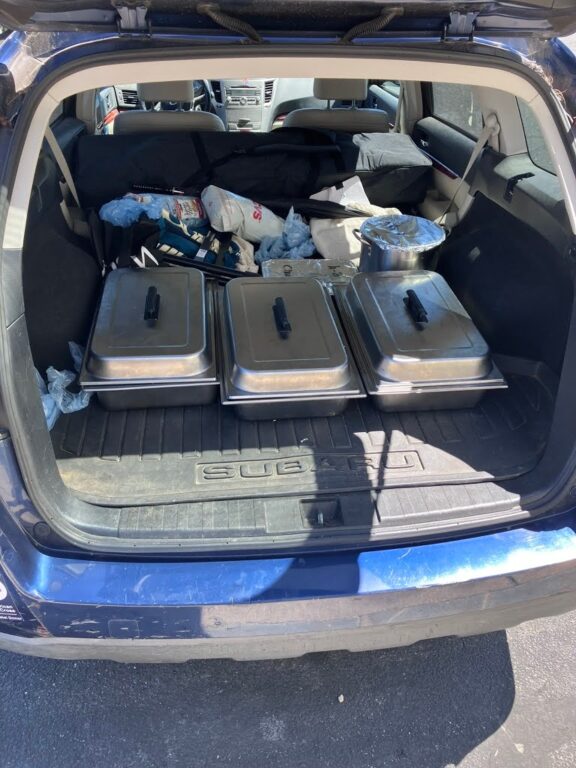

The children who file in are, well, children, thankfully curious and mischievous, mostly ready to play and eager for whatever is next. They, too, are butterflies, chasing one another or peering from a doorway, and on the playground after school has let out.
We began hosting families in our Lower Parish Hall early April 2024, when Rev. Laura Everett from the Massachusetts Council of Churches reached out to parishes in the Milton area to see if any wanted to learn about sharing space. I did, my parish responded to the plan I shared first with Wardens and then Vestry, and then members gamely raised their hands to offer ESL skills, daytime availability to play with kids, and cars for transporting food prepared at Church of the Holy Spirit in Mattapan. We assembled a Signup Genius and an Amazon wish list.
It wasn’t easy. There were challenges with the increasing flows of traffic, which was alleviated as a few parishioners signed up as cab-wranglers to help manage the coming and going of Haitian families while school families were coming and going as well.
In early June, IFSI decided to ‘pause’ at this location, perhaps as things with MassPort, IFSI, the Commonwealth, Haiti, and all the constituent details seem to float in unpredictable patterns and each day brings – as each brought – something unexpected. The generosity of spirit of St. Michael’s parishioners, and then of The Village School, has helped many of us to open our eyes in order that we open our hearts to hold space, resources, and compassion for folks who come to our door.
Matthew 25:40 tells us that, when we welcome the least, we welcome the King.
And Elizabeth Barrett Browning reminds us that:
Earth’s crammed with heaven
And every common bush afire with God
And only he who seeks takes off his shoes
The rest sit around and pluck blackberries.
Our world is hard, butterflies get smooshed by trucks, and people get hunted, tossed aside, and executed by greed and prejudice. Fear turns his wheel indeed, again and again, like Yeats’ widening gyre. “Be not afraid”, Jesus encourages.If we can allow the possibility of solidarity with the least of Jesus’ siblings – the vulnerable, hungry, and stranger – we’ll discover God without having to squint so hard.
April 17, 2024 at 4:59 pm in reply to: The Journey towards ONE: UniteBoston’s Ministry Priorities for 2024 #24552uniteboston
Keymaster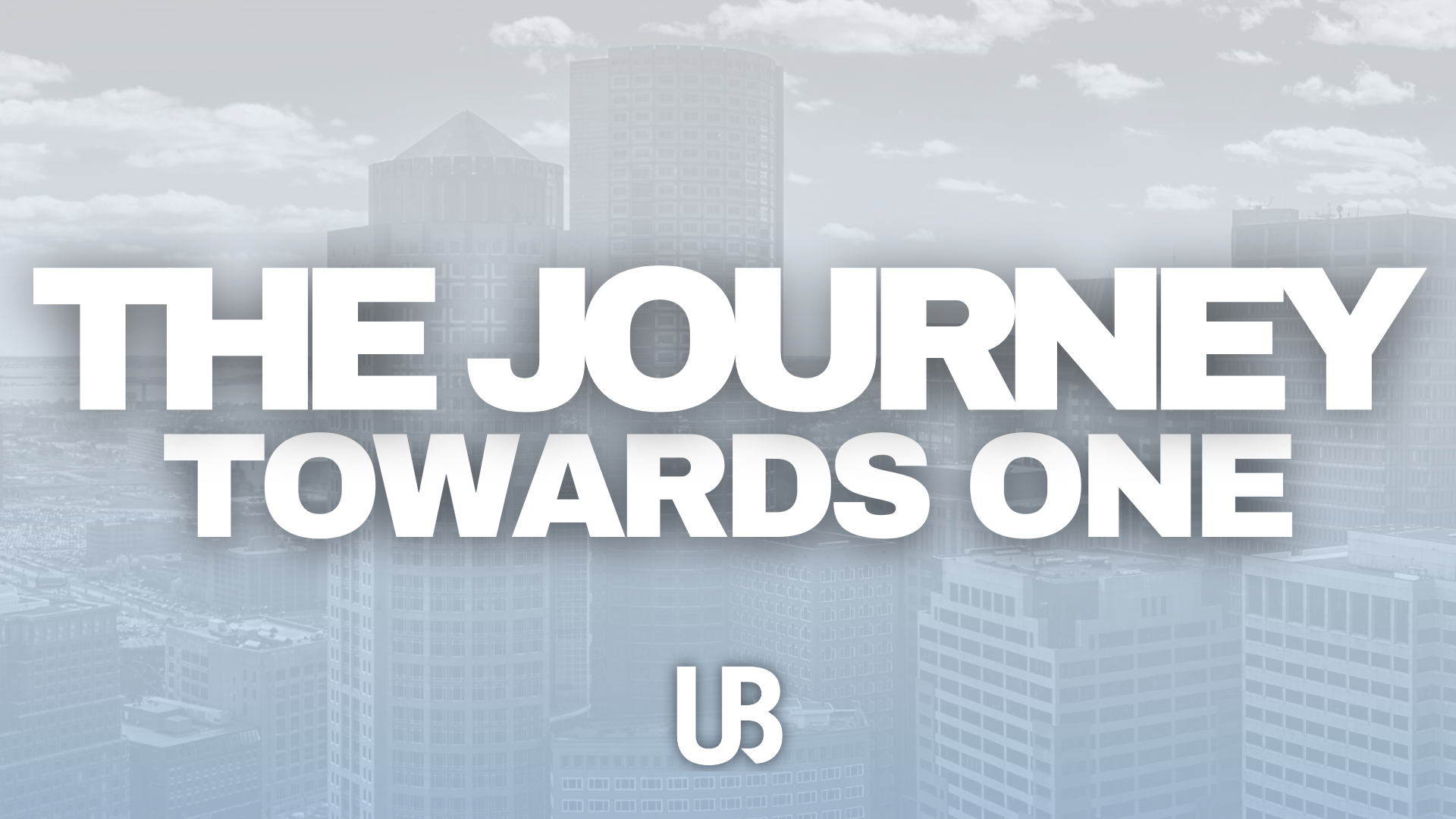
“For [Jesus] himself is our peace, who has made the two groups one and has destroyed the barrier, the dividing wall of hostility, by setting aside in his flesh the law with its commands and regulations. His purpose was to create in himself one new humanity out of the two, thus making peace, and in one body to reconcile both of them to God through the cross, by which he put to death their hostility.” (Eph 2:14-16).
This is one of the many Scriptural texts that make it clear that Christians are to be “united” and “one.” Yet, what does this unity and oneness look like, and how do we get there? Read below to hear about UniteBoston’s five ministry priorities this year on our “journey towards one:” Cohorts, Commitment, Challenge, Convene, and Clarify, and how you can take part in this journey with us.
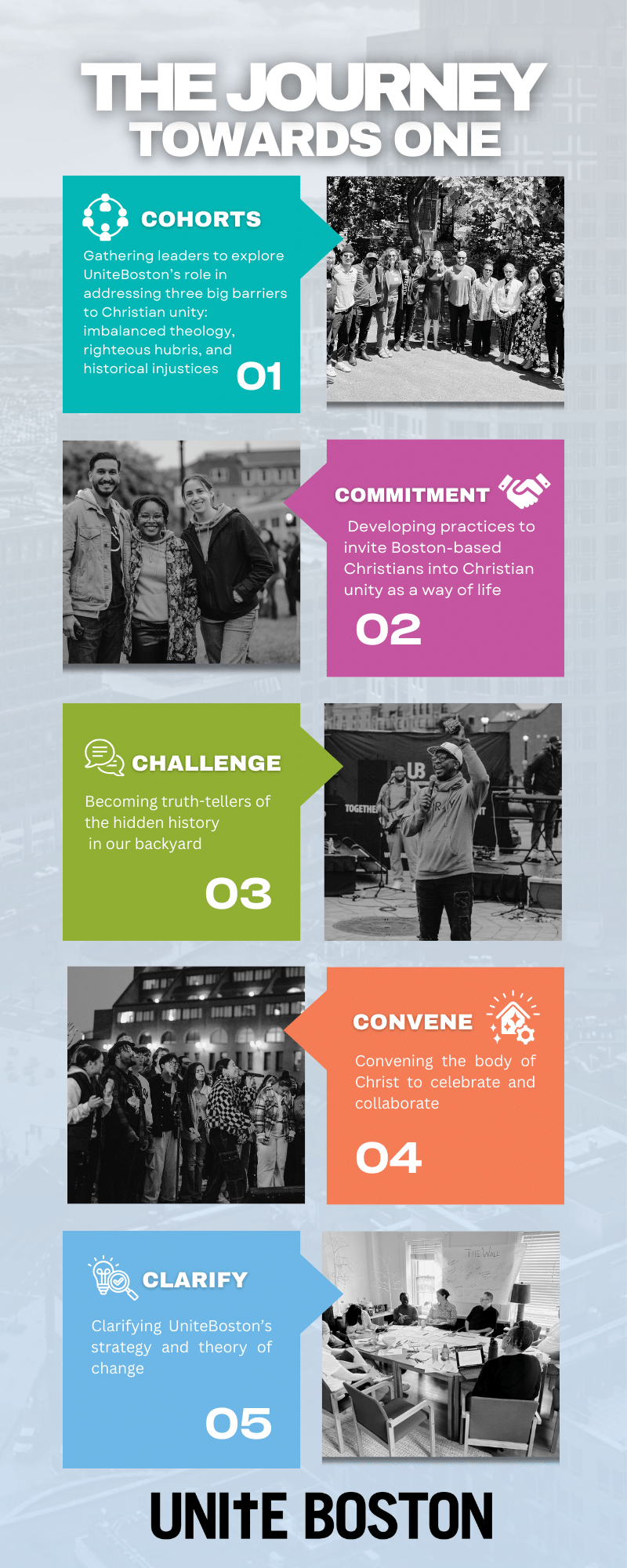
By: Rev. Kelly Fassett, Rev. Devlin Scott, and Rayza Carrasco
This past fall, UniteBoston’s staff and board sat down seeking to CLARIFY our ministry vision, strategy, and theory of change. Over the course of thirteen years, UniteBoston had gone from a small e-newsletter sent to a couple of dozen people to a full-fledged non-profit ministry with multiple staff. We had pursued the unity and oneness of Christians through hosting large united worship nights, coordinating a weekly events newsletter and website hub, convening missional collaboration conferences, launching neighborhood dinners, hosting learning groups, and more.
We knew that at the center of the Christian faith is the confession that Jesus’ incarnation, death, and resurrection has reconciled us to God and to one another, thus forming an inseverable and eternal peace (Eph. 2:14). This central message of reconciliation is a prominent theme throughout the New Testament, and the early Christians were convinced of the centrality of unity among followers of Christ. (2 Cor 5:16-21, 1 Cor 1:10, Rom 12:4-5, Jn 11:52, Eph 4:3).
Yet, this “unity” and “oneness” is easier to live in theological constructs than in practice. Christian unity isn’t just a surface-level kumbaya togetherness, “hues in the pews,” as that often erases voices that are traditionally on the margins. True Biblical unity must not only encompass diversity but also erase hierarchy, inequity, injustice, and false structures of power. Biblical unity is a “deep unity,” one that leans into the places of division to discover the roots and possibilities of reconciliation and repair. In the course of our ministry, we had seen that the barriers hindering Christian unity, equity, justice, and flourishing for all needed to be tackled head on. To this end, our staff and board brainstormed together and came up with three big barriers to Christian unity: imbalanced theology, righteous hubris, and historical injustices.
Christian unity is not just a belief or an event but is actually a question of discipleship: the way we understand and practice our love of God and neighbor on a daily basis. As our team sought to unpack these three barriers to Christian unity and CLARIFY the learning experiences and cohort models that could be designed to disciple people as ambassadors of reconciliation and repair (2 Cor 5:18-20), we immediately realized that we could not do this work on our own; this big-picture work will be much sharper and stronger when it is done with a collective community of leaders offering their insights and perspectives. This past year, we launched a Christian unity COHORT with twelve diverse leaders who met monthly to share their own personal stories of unity and disunity in the church and explored how people are living out God’s call towards unity, justice and reconciliation.
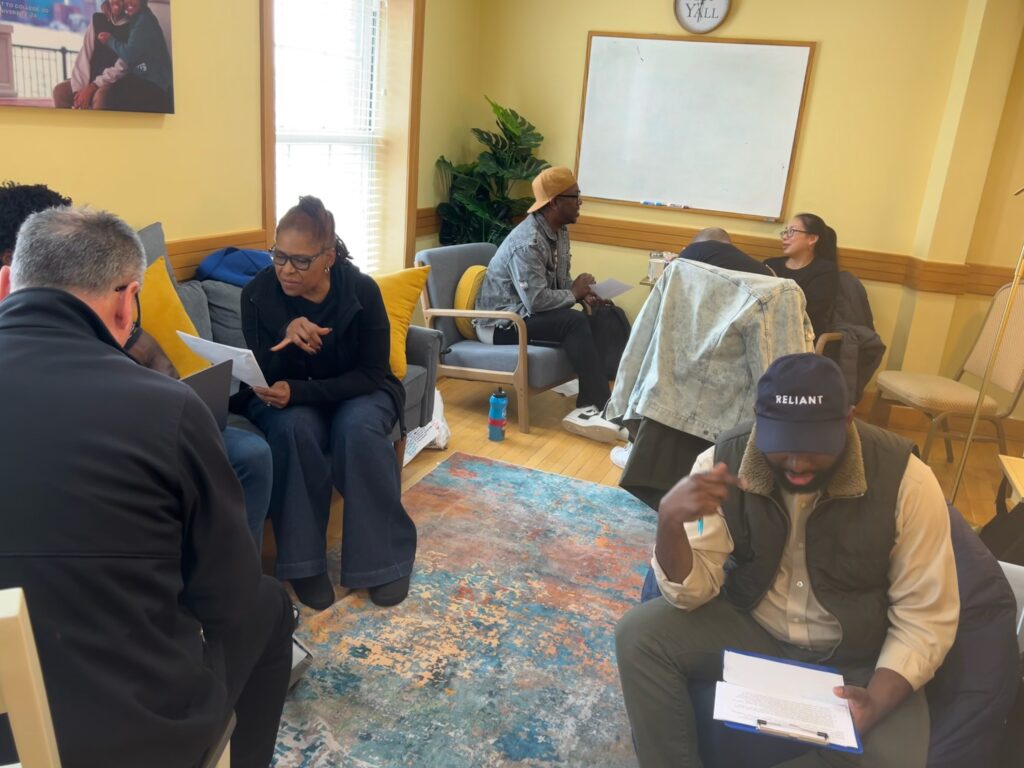
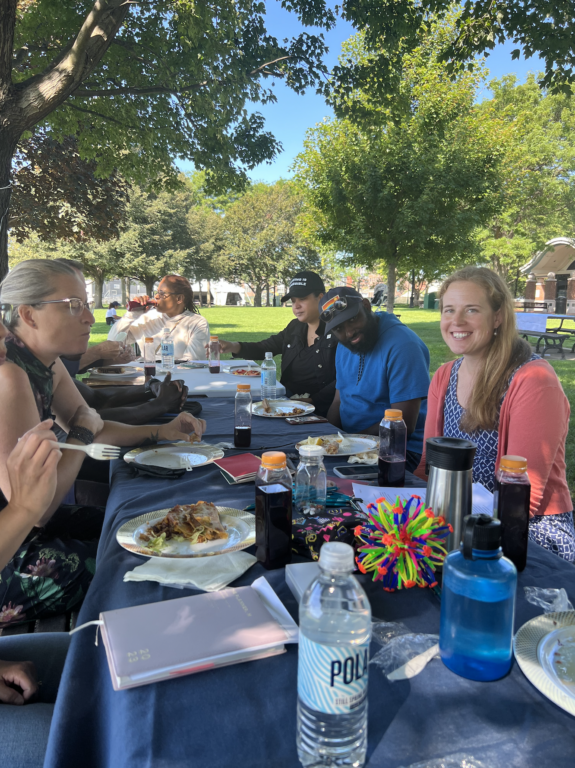
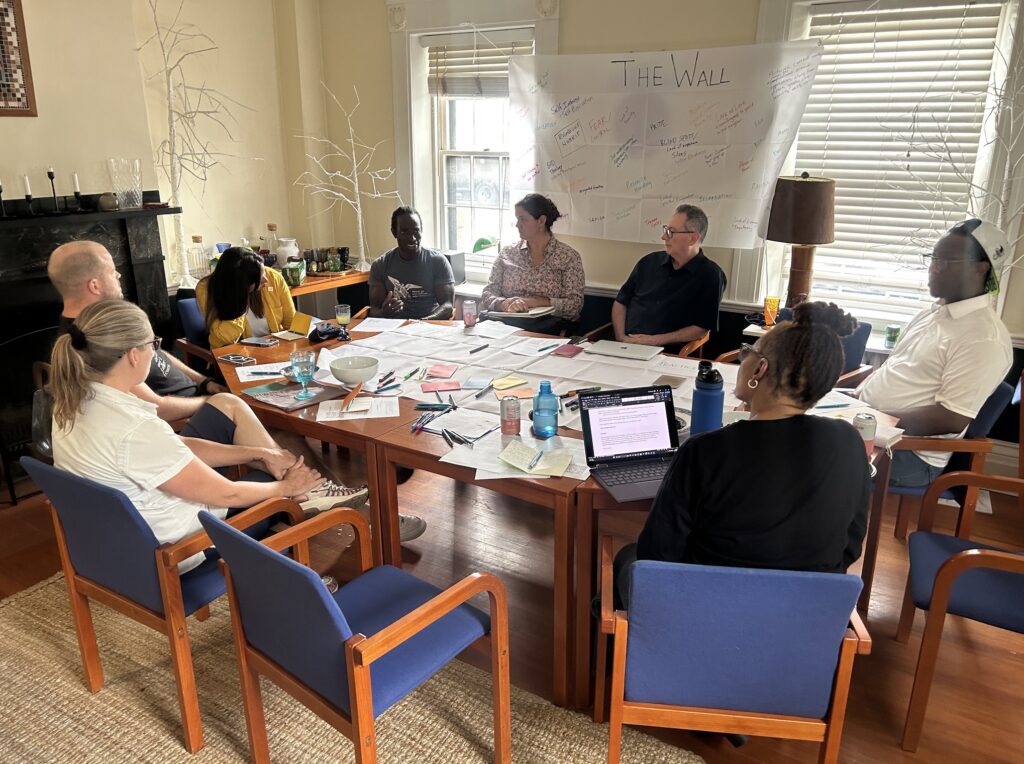
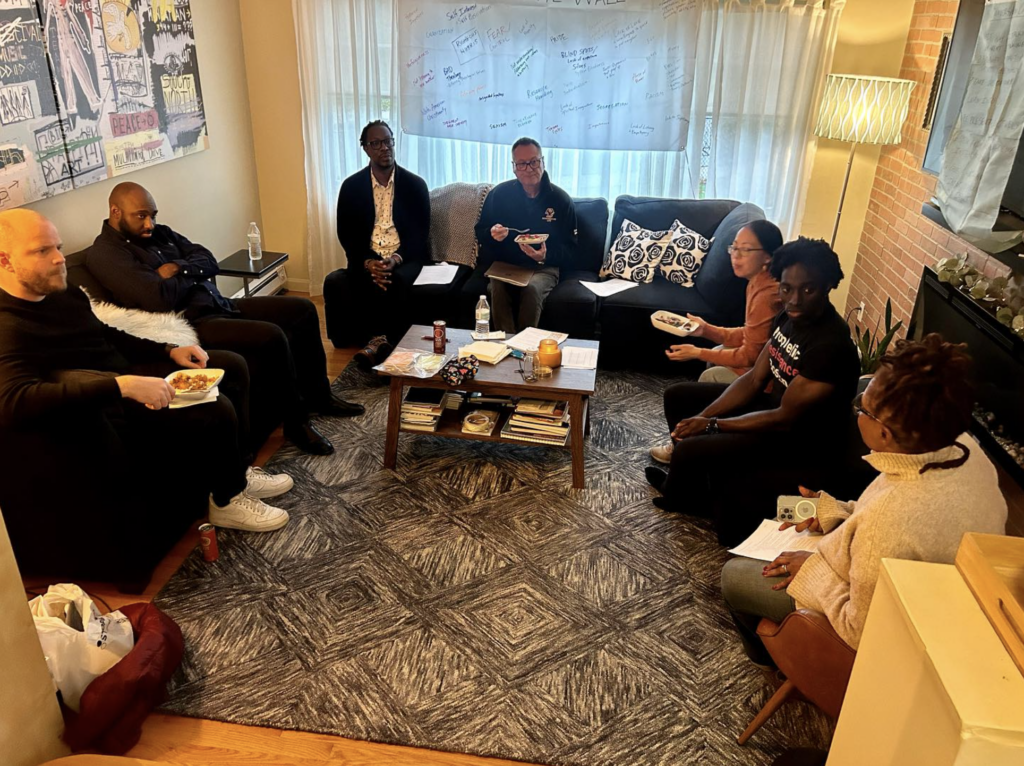
Here are a few key ideas about Christian unity that Kelly and Devlin are taking away from the cohort journey:
Genuine, vulnerable story-sharing allows us to truly see one another, deepening our understanding of our unity in reconciled diversity. This transformative process reshapes our sense of connection and mutual worth, inspiring us to live out our shared brotherhood and sisterhood in Christ. When we really see one another, it changes how we feel connected to one another and how we feel they deserve what I deserve.
The journey towards Christian unity involves remembering and rediscovering who we are in Christ, cultivating authentic diverse friendships, carefully tending to wounds and places of rupture, and showing up for one another in sacrificial solidarity. This group has protected, celebrated, defended, and made room for one another, which has been challenging and immensely healing.
Here are a few reflections from members of the cohort:
“The individuals in our cohort are all so different; culturally, liturgically, and theologically. But as I’ve listened to the stories of God’s movement in the lives of each of these new friends, I’ve been awed by just how much we have in common: a love for Jesus, a devotion to his church, wounds in need of healing, a deep longing for the Kingdom, along with a lot of courage and faith. This journey and these people have reinforced my commitment to move from curiosity, my belief that we have so much to learn from each other, and my hope that the chasms that divide us can be bridged.”
-Josh Wilson, Pastor at Reality Boston
“If the seed of Christian unity is our faith in Jesus, and the sunlight/water are our opportunities for joint ministry and mission, then the soil is most certainly our relationship and engagement with each other. The soil is aerated by our whole-hearted leaning into difference and disagreement with love.”
– Edwin Johnson, Director of Organizing at Episcopal City Mission
“In the Christian unity cohort, I found that our differences didn’t divide us; rather they made us connect more intentionally as we built friendships with one another. We don’t have to agree on all the things, but we can accept, love, and serve one another just like Jesus loved and served us.”
-Carolina de Jesus, Chief Executive Officer at the Boston Higher Education Resource Center
“As a Roman Catholic, I am reminded that the Catholic Church made a fundamental shift in its vision of Christian Unity from Vatican I to Vatican II, moving from an ecumenism of “return” to an ecumenism of “recognition” – the recognition of an esteem for the many gifts of God’s Spirit that reflect a genuine communion of faith and life with other Christian churches. As a result of the journey that we have shared in our Christian Unity cohort, I am convinced that the personal and relational always come before the structural and institutional. Journeying out of our isolations; meeting, sharing meals, sharing our stories, getting to know and trust one another; establishing friendships— these cohort experiences of relationship form the climate in which both individual Christians and separated communities become open to, recognize and receive gifts of the Holy Spirit from one another. It is this kind of climate that I have witnessed with our Unity Cohort from which a passion for unity is cultivated and sustained. Symbolic gestures are important among church leaders, but relationships of trust and mutual affection have to grow among members of different churches as well if receptive ecumenism is to flourish.”
-Michael James, Resident Minister and Faculty Member at Boston College
We’re now launching two new year-long working group COHORTS to help us shape the next season of UniteBoston. First, a “Sankofa journey” working group to reconstruct a common memory on the racial history of Boston and CHALLENGE people to be truth-tellers about the hidden history in our backyard. Second, a working group to explore the theology, practice, and heart posture of “Christian unity.” The working groups will help us unpack the three barriers to Christian unity we have identified and discern what content, experiences, and practical COMMITMENTS people can make towards becoming ambassadors of reconciliation and repair. We believe that UniteBoston’s role is to create opportunities for “beloved community” to emerge, one that leans into our diversities, nurtures belonging for all of God’s children, models redemptive power dynamics, and works together to nurture shalom across historic divides. As we nurture kinship relations among diverse siblings in Christ, we believe our self-giving love for each other will be a collective witness to the reconciling power of the gospel.
Much of our team’s time and attention will be behind the scenes so we can do this work well. But don’t worry, we will continue our newsletter and website, and we are still planning to CONVENE Christians in Boston for a fall concert featuring a united gospel choir, as well as Boston Flourish on November 7.
We’re grateful to have so many leaders and friends with us on the journey – You make this work possible, and you make it a lot of fun too!
Join us on the Journey Towards One:
- Pray for wisdom and discernment for our team and collaborating partners as we seek to understand how Christians in Boston might embody the oneness that Jesus prays for and refine UniteBoston’s missional priorities and theory of change.
- Stay engaged by reading the UniteBoston newsletter and following us on our social media Facebook Instagram
- We’d love to hear from you if you have any ideas, resources, or stories you’d like to share with us that might help us on this journey!
– Rev. Kelly, Rev. Devlin, and Rayza
Lord, make us instruments of your peace.
Where there is hatred, let us sow love;
where there is injury, pardon;
where there is discord, union;
where there is doubt, faith;
where there is despair, hope;
where there is darkness, light;
where there is sadness, joy.
Grant that we may not so much seek to be consoled as to console;
to be understood as to understand;
to be loved as to love.
For it is in giving that we receive; it is in pardoning that we are pardoned; and it is in dying that we are born to eternal life. Amen.
– A Prayer attributed to St. Francisuniteboston
Keymaster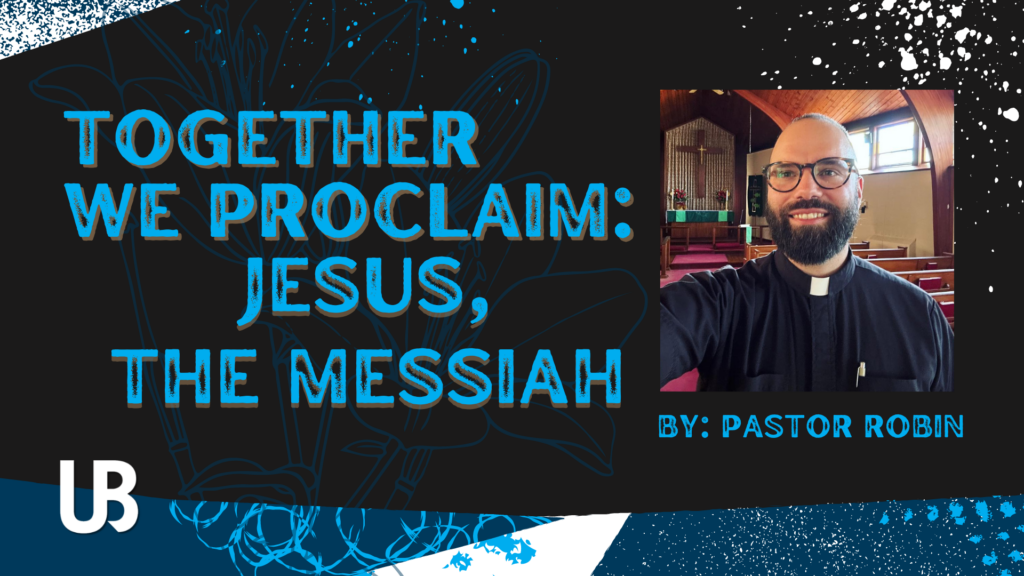
Christ is Risen! Our guest blogger this week is Pastor Robin Lutjohann, pastor of Faith Lutheran Church in Cambridge. Pastor Robin and Pastor Raphaela Mueller have been offering powerful scriptural reflections daily during Lent. Read below to hear Pastor Robin’s reflection on the communal significance of Jesus as the Messiah and how our daily encounters with the Risen Christ bind us together as one family of God.
Jesus went on with his disciples to the villages of Caesarea Philippi; and on the way he asked his disciples, “Who do people say that I am?” And they answered him, “John the Baptist; and others, Elijah; and still others, one of the prophets.” He asked them, “But who do you say that I am?” Peter answered him, “You are the Messiah.” And he sternly ordered them not to tell anyone about him. (Mark 8:27-30)
Because we live in a much more individualist culture and time than Jesus, it is easy for us to mis-hear Jesus’ question as an invitation to make a personal confession of faith. A “what does Jesus mean to me” kind of testimony. It doesn’t help that in English, both singular and plural second person pronouns are the same, “you.” But Jesus is asking “you” in the plural: “Who do ya’ll say that I am?” He is asking his disciples as a community of people who have been – together – transformed by his presence among them. And even though Peter alone answers, he answers in a way that isn’t just about him and his own personal thoughts and musings. For example, he doesn’t say: “You are MY Lord and savior.” Or: “I give my life to you.” Or: “I think… I believe… My theory is…” He isn’t really speaking for himself. He is speaking with the voice of his ancestors and their long-time expectation of an anointed heir of the Davidic kingship, when he says: “You are the Christ / Messiah / Anointed One…”
I’ve said it before and I’ll say it again: It makes sense that in our church, we recite the Creed together, in unison, when we gather. Even though it is said in the singular “I believe…” it is a collective “I” that speaks here. It is the “I believe” of the united voice of the one Body of Christ, the whole community of all those who trust in him as the promised savior not only of their own individual souls, but of the whole cosmos.
Don’t get me wrong, our individual concerns and fears, our particular biographies and thoughts are important to God. And there is a time and place to make our faith personal and individual, like when Thomas says, “My Lord and my God!” After all, no one experiences love in the general. If a loved one says to you, “I love you,” I really hope you wouldn’t reply, “I love all people.”
But when it comes to answering the question, “Who is Jesus?” a purely personal testimony is not sufficient. It is good, as far as it goes, but is not yet “the Gospel” that saves and changes the world.
Only by offering our individual stories and opinions to a communal reality, can we begin to really say “who Jesus is” to each other and to the world. Because I, by myself, have too limited a point of view. There’s simply a lot that I am bound to be missing. I need your help, so I can see, through your eyes, more of who this Jesus really is. There are things you have learned and experienced that I have not. That is why I need you. And that is why you need me, too. That is why we need the Church. We might be able to believe alone. But we cannot confess Christ alone. It is a communal witness. Christ sends into the world not individual believers, but a people.
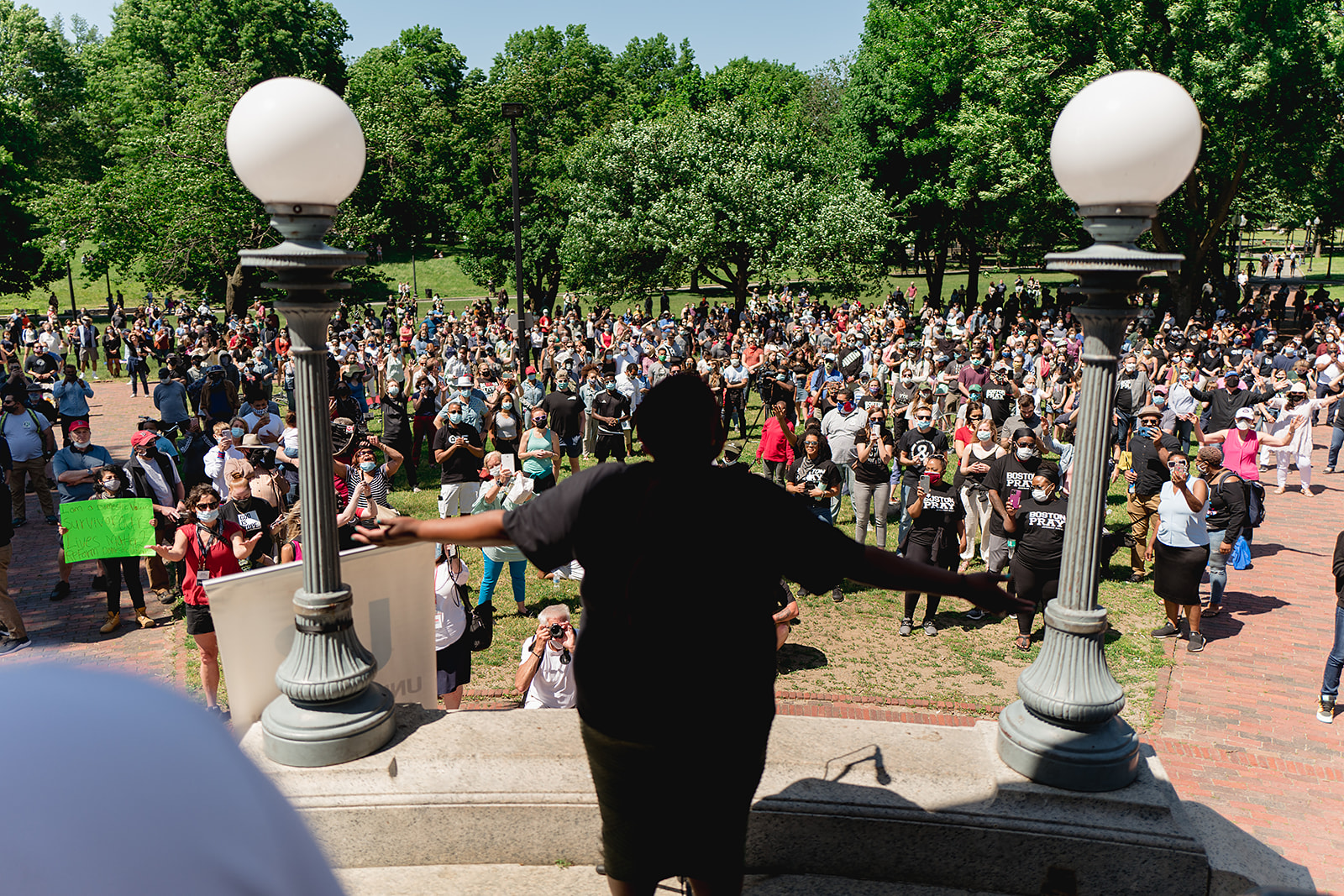
United prayer and a call to repent at BostonPray in 2020. Photo credit: Daniel Ebersole It’s like those 3D glasses kids used to have with the round slides that you could pop in. A pretty crude technology compared to today’s Apple glasses or whatever. But that’s basically still how 3D vision works: Two slightly different perspectives, each seen by one of our eyes, are put together by our brains into one picture that holds these differing perspectives together to see a fuller picture with more depth — and more like the real thing! Now multiply that by a few billion — and then you get the complex, crystalline jewel through which the Spirit refracts the Word of God to us, that we may truly see, truly understand all that Jesus is and does for us. In this lifetime we will never be finished seeing, hearing, comprehending anew, with every person and perspective adding another facet to the total mosaic.
Maybe this helps explain Jesus’ enigmatic warning at the end: to not “tell anyone about him.” It’s not that he didn’t want more people to be part of this community of faith. It’s that he didn’t want people to have a cheapened, second-hand experience, a kind of “faith by hearsay” information, but not transformation. Unfortunately, this kind of dead belief is what passes for “faith” a lot these days. But real faith is not some things you heard someone say, or what your parents told you to believe, or a list of intellectual propositions to which you assent. Faith, in essence, is trust in someONE more than belief in someTHING.
Only after the Holy Spirit was poured out on the community in Pentecost – and has kept on pouring ever since! – was it possible for people who had not walked with the man from Nazareth to have a living encounter with the Risen Christ. This encounter binds them into that same communal “I” that can say with Peter and the whole church: “You are the Messiah!”
On Resurrection Sunday, we remember that Jesus is worthy! Local Christian artist Jen Aldana recently released a cover recording of Elevation Worship’s song with this theme. She describes: “I was suffering, but God was faithful. I was struggling, but He still deserved my praise. I was weak, but He gave me strength to stand and sing and show up for myself and these young people. And it was all worth it. Because He’s Worthy.” March 18, 2024 at 4:54 pm in reply to: Hospitality, Not Hostility: Building Bridges to our Immigrant Neighbors #24343uniteboston
Keymaster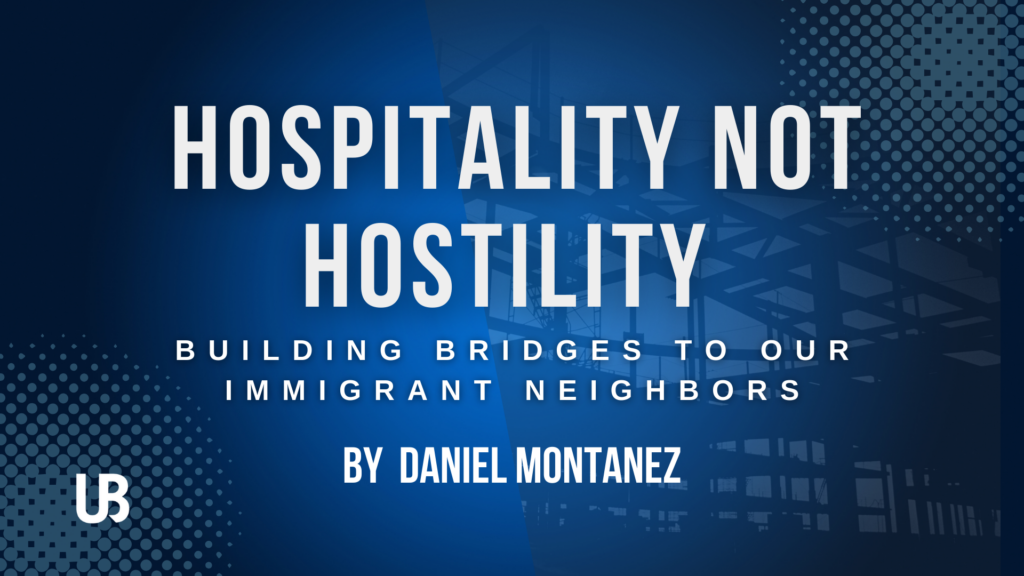
To Commemorate Migrant Sunday, we are sharing a blog that is written by local author and theologian Daniel Montañez. Daniel is founder and director of Mygration Christian Conference, a PhD student at Boston University School of Theology, and the coeditor of “The Church and Migration: A Theological Vision for the People of God.” Read below to hear Daniel share about the Christian ethic of bridge-building based out of Ephesians 2.
What are the walls of hostility we erect to exclude our immigrant neighbors? Walls can be physical, such as the 1,954-mile wall along the US-Mexico border. Hard and heavy walls made of bricks, metals, wires, and wood represent a division between people, culture, and national citizenry. Walls can also be mental or emotional, often resulting from difference in thought or feelings of fear toward those whom one may disagree with or not understand. In this way, walls can serve as a means of self-preservation and protection from the “other.” Finally, walls can be spiritual, as all too often Christians have excluded those who hold differing beliefs and convictions on religious matters. There is no shortage of reasons that feed the human proclivity to build walls; however, there are several reasons Christians are called to rise above the walls we build.
The book of Ephesians introduces us to a Christian ethic of bridge-building. In chapter 2, verses 14–18, Paul writes,
“For he himself is our peace, who has made the two groups one and has destroyed the barrier, the dividing wall of hostility, by setting aside in his flesh the law with its commands and regulations. His purpose was to create in himself one new humanity out of the two, thus making peace, and in one body to reconcile both of them to God through the cross, by which he put to death their hostility. He came and preached peace to you who were far away and peace to those who were near. For through him we both have access to the Father by one Spirit.”
The two groups Paul describes are Jewish and Gentile believers. There was much hostility between these two people groups in the Old Testament, as the Jews were considered God’s chosen people, according to the covenant relationship established with the nation of Israel. The practice of circumcision served as a physical sign of Israel’s covenant relationship with God and operated as a means of citizenship into the Israelite community and inheritance of God’s promises. Because the Gentiles were uncircumcised, they did not belong to the covenant community, as they were, as Paul describes, “without hope and without God in the world” (Eph 2:12).
However, while the Gentiles were not included within the promises of the Mosaic covenant, this is not to say that God was not at work building bridges between Jews and Gentiles in the Old Testament. The Greek word for Gentiles is “ethnos,” meaning nation or people. It is within the Abrahamic covenant that God promises to Abraham that “through your offspring all nations on earth will be blessed,” (Gen 22:18), signaling the coming together of Jews and Gentiles through a messianic figure from Israel. Jesus Christ is the fulfillment of this messianic promise and the one who builds bridges between Jews and Gentiles, establishing a model and an ethic for Christian living.
Many biblical scholars believe the wall Paul was referring to in this passage was “the Mosaic law itself with its detailed holiness code.” It served as an ideological fence around Israel, keeping outsiders and foreigners from participating in the social, cultural, and religious life of the community. The crucifixion of Christ served to destroy the wall that separated Jews and Gentiles from fellowship with one another. Furthermore, Christ’s sacrifice on the cross served as the atonement for humanity’s sins and the restoration of their relationship with God the Father. For this reason, it can be stated that Jesus Christ did not come to build a wall, but a bridge between God and humanity, and between Jews and Gentiles. It was a project so costly that only the riches of heaven could pay for this bridge through Christ’s blood on the cross.
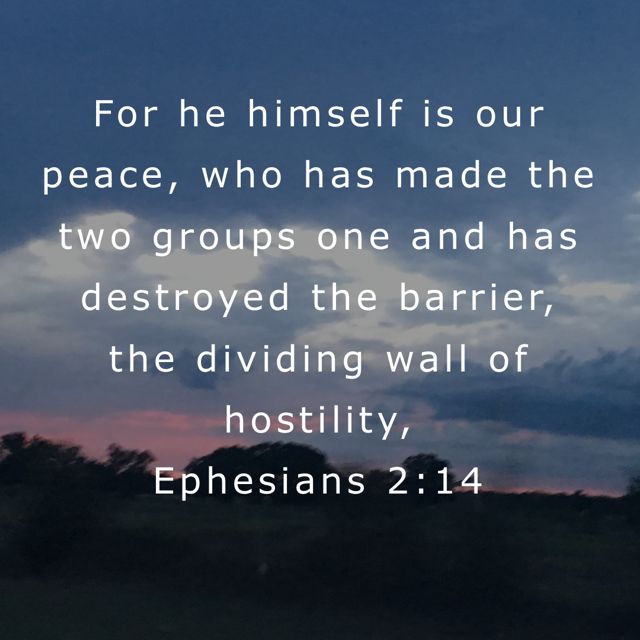
What, then, are the implications of a Christian ethic of bridge-building for our world today? First, it calls us to move from an ethic of exclusion to embrace. In “The Church and Migration: A Theological Vision for the People of God, which I coedited with Wilmer EstradaCarrasquillo, Estrada-Carrasquillo posits an ethic of hospitality as a necessary component for embracing our immigrant neighbors. He writes, “Hospitality to migrant communities can take many shapes and forms. But to serve them well, we must look beyond the surface. We must make a concerted effort to know them and develop intentional relationships.” It is only by embracing an ethic of encounter with our immigrant neighbors that we discover the common ground on which we stand, and the prospect of embracing one another as members of the kin-dom of God.
Second, a Christian ethic of bridgebuilding calls us to move from a mindset of scarcity to opportunity. All too often we hear negative rhetoric of immigrants stealing American jobs and the economic burden immigrants have on the US economy. While these claims are often unsubstantiated, what is frequently overlooked is the revitalization immigrants are bringing to the life of the church. The Latino immigrant church, for example, is rapidly growing in the United States, buoyed by a Hispanic population that is expected to grow to 110 million by 2060.
Carolyn Dirksen argues, “If the American Church can embrace their spiritual brothers and sisters in this great migration, they will reaffirm their commitments to Christ and invite a kind of rejuvenation the Church has seldom seen.” To move from scarcity to opportunity means to believe that not only are there enough materials for building bridges, but that we can also partner in the work of building a better future together.
Finally, a Christian ethic of bridge building demands that Christians move from a place of fear to faith. According to Alejandra Guajardo-Hodge, “Fear may be a natural response to these modern-day challenges but is not the response that God demands of us. Love is the only way to face the challenge of the shifting world in God-honoring ways.” To choose faith over fear means to tear down the hostile walls of partisan politics that divide our nation, and to cast a new vision for the role of the church in the public square—“not to further exacerbate the problems of this world, but to become a part of the solution,” as we write in The Church and Migration.
The social ethic that Christ sets before us is a call to embrace the opportunity by faith to tear down the walls of hostility that divide us from our neighbors and to build bridges toward a holistic vision of peace, justice, and the flourishing of all humankind.
This article was originally published in the Boston University School of Theology 2023 Magazine entitled “Reaching Across.” You can also check out Daniel Montanez’ book “The Church and Migration,” which serves as an accessible and educational guide for pastors, church leaders, and parishioners to better understand what the Bible says about God’s heart towards people on the move and how these truths can be applied in our modern world. It is available for purchase in English and Spanish.
uniteboston
Keymaster
In an age of global migration and mass displacement, what is the responsibility of the Church to respond to the needs and realities of migrant and displaced communities? All too often, the narrative surrounding immigration is depicted within mainstream media as highly political and divisive. In evangelical and charismatic circles, many Christians are more likely to be influenced by what the media says about immigration than the Bible.
For our week on “Believe,” we are sharing a piece entitled, “The Church: A Place of Belonging” which is a chapter from local author Daniel Montanez’ book entitled, “The Church and Migration: A Theological Vision for the People of God.” The book seeks to transform the narrative of immigration by approaching it from the larger lens of human migration. By exploring the theme of human migration throughout the grand narrative of Scripture, this resource sets forth a theological vision for understanding migration from a Biblical-theological perspective. Read below to hear some practical ways in which Christians can get involved in serving migrant and displaced communities.
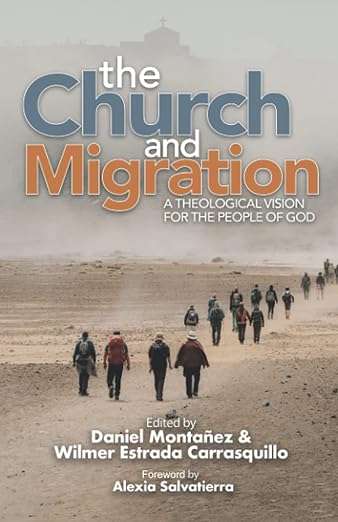
The Sojourner, the alien, the foreigner, the exile, the refugee, the immigrant, or whatever name is used to refer to those who may not be like us or from among us, still refer to persons who are created imago Dei and deserve the treatment afforded to everyone created as such. Just as the Temple in Jerusalem, with its imposing structure and radiant splendor, stood as a representation of the God to whom it is was constructed and dedicated, so also is the Body of Christ, the Church, the representation of God in the world today. It is, therefore, the responsibility of the Church to be Christlike in its actions and treatment of people. And the church, as a building or locale is to be equally welcoming to those who may not be part of the Body of Christ—the “other.”
Immigrants make the move from one country or location to an other because they might be seeking safety from a dangerous situation in their own land, looking for employment to help provide for their families, looking to start a new life in a foreign land, etc. Despite the variety of those mainly extenuating circumstances in which the immigrant population finds itself, the Bible gives only one way in which to treat them—with love and compassion—because the God is the One who loves them, and the Body of Christ follows the Head of the Church. Additionally, Israel was constantly reminded that they, too, were sojourners: “Love the sojourner, therefore, for you were sojourners in the land of Egypt”(Deut 24:14). When they went to the temple to make their sacrifices they were to “declare before the LORD your God: ‘My father was a wandering Aramean, and he went down into Egypt with a few people and lived there and became a great nation, powerful and numerous'(Deut 26:5). In Leviticus, Israel is commanded, “When a stranger sojourns with you in your land, you shall not do him wrong. You shall treat the stranger who sojourns with you as the native among you, and you shall love him as yourself, for you were strangers in the land of Egypt: I am the LORD your God (Lev. 19:33-34).”
Creating Places of Belonging
How does the church become a place of inclusion for immigrants? What are their needs? How are they to be treated, and how can the church effectively minister to them? The parable of the good Samaritan (Luke 10:23-37) is a powerful example of inclusion and ministry and answers the question about how to practice inclusion. That is done by showing compassion to the other when the other is a stranger and even an enemy. The actions of the good Samaritan are non-judgmental and carried out only in compassion for the person in need. There is no questioning of the legality of travel, or intentions at point of destination, or even of the moral character of the wounded person, i.e., whether or not he is a “bad” person and not worthy of assistance. Help is rendered based on the need of the person and goes way past the bandaging of his wounds to his healing and wellbeing.
Miroslav Volf, in what is probably his most popular work, Exclusion and Embrace: A Theological Exploration of Identity, Otherness, and Reconciliation shows his own wrestling with showing compassion to the other: that as he tries to answer the question posed to him by his Professor Jürgen Moltman about embracing his enemy—the Serbian fighters: “But can you embrace a četnik?” After giving it some thought, he knew that his response would be: “No, I cannot—but as a follower of Christ I think I should be able to”(9). The church in this country has not always been a place of inclusion. It is a reflection of the society in which it finds itself. But there is hope that we can become a place of belonging. Tex Sample has said that in dealing with those who are different to us we must “deal respectfully, authentically, and transformatively.” To do so “could lead to a quantum leap in the way the church understands the faith, reckons with and makes moral decisions, celebrates Christian faith, and moves in a mission to the world” (139).
That mission to the world is to minister to its needs. Faith is not detached from providing tangible ministry to those in need, as so clearly explained in James 2:14-26. Martin Luther King, Jr. in his book Strength to Love argues that “A religion that professes a concern for the souls of men and is not equally concerned about the slums that damn them, the economic conditions that strangle them and the social conditions that cripple them, is a spiritually moribund religion” (250).
A church can do the following to become a welcoming place of belonging to immigrants:
- Be a welcoming by opening its doors to them. Have programs and resources that they need even without preaching to them: ESL classes, GED classes, computer classes, child-development classes, after-school classes, and care, etc.
- Help with their specific needs. To do so effectively, the church needs to know who lives in the community, town, or city. Who are they trying to reach? Who can they reach most effectively with their resources and human capital (members and workers)? Immigrants in the neighborhood need access to immigration assistance and information, child-care, translation services, food and nutrition, clothes, furniture, etc. As a church in a neighborhood that is 73% Hispanic with a majority being first generation immi grants from Central America and Mexico, our church aims specifically at reaching that population and those who help ministering to their needs. We share resources with the “Clínica Santa María” next door and try to minister to their staff also as caregivers.
- Adopt a family, mentor parents, teens, etc. Recently arrived families can be paired with families who have been in church for a while and who can help them during their adjustment period. Mentoring programs for family members and, especially, teens are very effective.
- Make church a host site for workshops, conferences, community action and meetings on issues that have to deal with immigration, social justice, racism, etc. Offering the use of the local church building and facilities is a good way to get the community to feel welcome and have a sense of belonging to this important house of faith in their community. There are always social work organizations, educational institutions, various non-profits, etc., that are looking for spaces in the community to offer their programs.
- Be a friend and loving neighbor. Recognize important dates in the community and celebrate the heritage of the members of the community. Celebrating Hispanic Heritage and Black History Month, Independence Days, etc. help the community see the church as a place to which they belong, and which shares their moments of joy and celebration.
As a recently arrived international student in a small southern town which has its history of struggles against racism, I was welcomed by a church and a family that “adopted” me and helping me get acclimated to life in this country demonstrating the love of Christ. In difficult moments, they served as advocates helping to fight for justice and even opened their home when I was unable to afford to live in campus housing. The “Adopt-a-Student” program of that church gave me something to which I could belong—a family, a church, a denomination, and the Body of Christ. It was a tangible way for a local church to embrace an immigrant.
Churches must continue to envision and embrace a world and their communities with more immigrants and accept their mandate to represent Christ and be a place of belonging for sojourners, aliens, and immigrants.
But Wait! There’s More…
This is a chapter from Daniel Montanez’ book “The Church and Migration,” which serves as an accessible and educational guide for pastors, church leaders, and parishioners to better understand what the Bible says about God’s heart towards people on the move and how these truths can be applied in our modern world. It is available for purchase in English and Spanish.
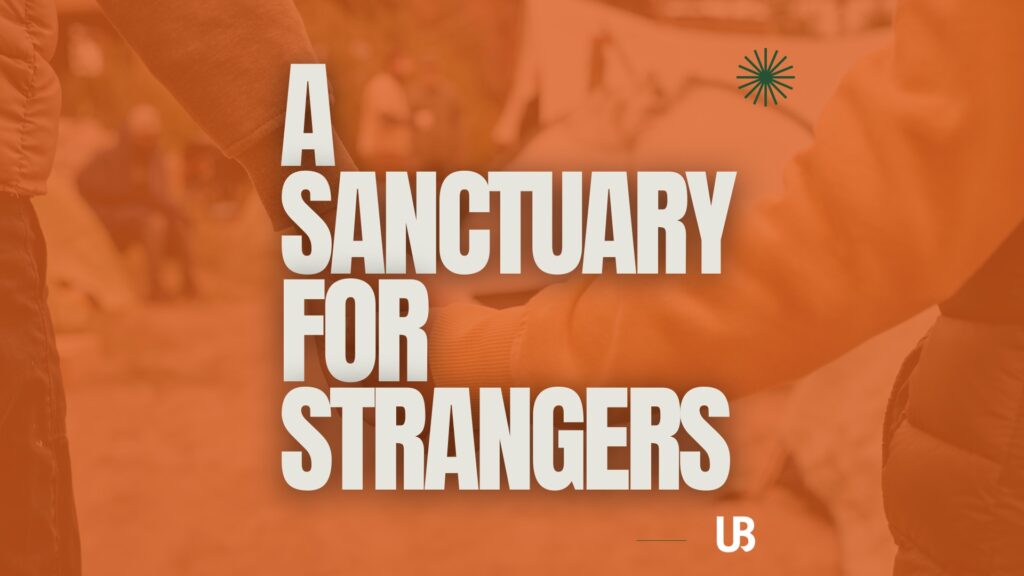
Our page “A Sanctuary for Strangers” also has a variety of other pressing action steps that churches can take to support our new neighbors.
There have been two other articles written by UniteBoston Staff exploring themes in the Good Samaritan: Rev. Kelly Fassett invites us to consider, “To whom must I become a neighbor?” and Rev. Devlin Scott challenges us to consider how we might inadvertently seek to justify ourselves instead of fully embracing Jesus’ radical acceptance.
uniteboston
KeymasterEd Gaskin is our featured blogger this week. Ed is a Black Protestant Christian running Greater Grove Hall Main Streets; he attends Temple Beth Elohim in Wellesley as well as Reservoir Church in Cambridge. He has also co-taught a course with professor Dean Borgman called, “Christianity and the Problem of Racism” at Gordon Conwell Theological Seminary for over 25 years. Read below to hear Ed describe his reflection on a billboard on I-93.

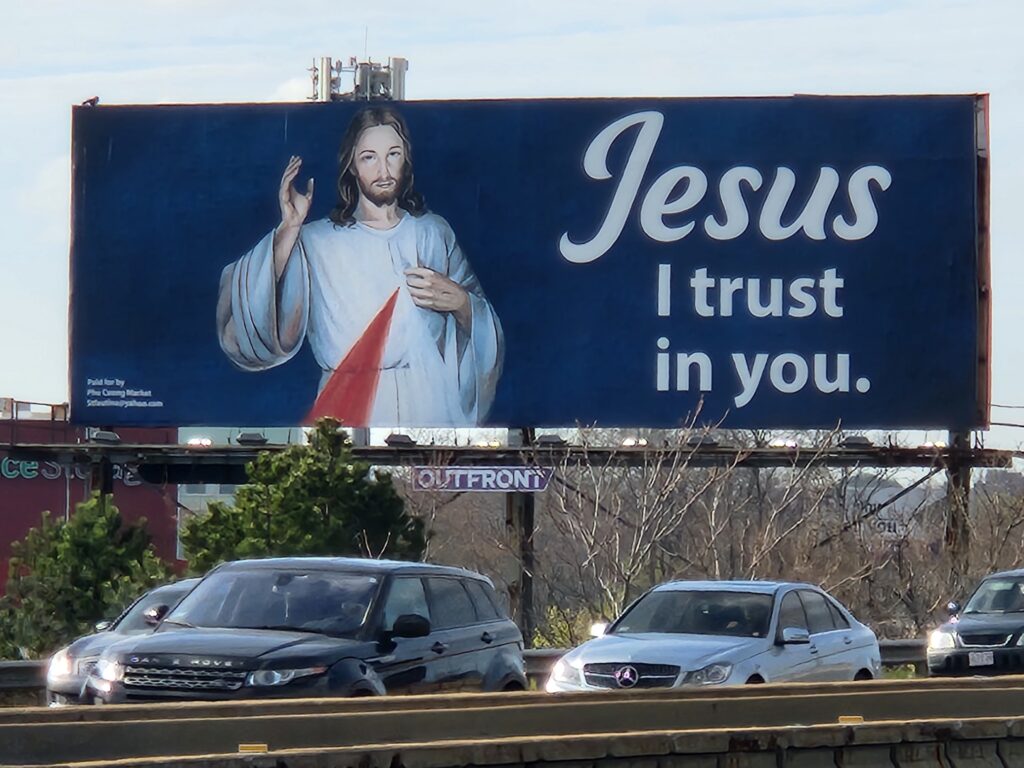
As I drive along I-93, I see a billboard in Dorchester of a white, pale Jesus who looks more like a scary ghost from a horror movie than the Jesus I have come to know in my spiritual journey. I consider myself a Judeo-Christian, practicing both Judaism and Christianity. On any given weekend, you will find me at Shabbat services on Friday and in church on Sunday. I am a conservative Christian who believes in the fundamentals of the Christian faith when it comes to traditional Christian doctrine.
When I see a ghost-like Jesus, it scares me, and it should scare you too. The ghost-like Jesus is a political statement, and the political values and ideas it represents are scary: primarily white supremacy and white nationalism. In my article, “Whitewashed: How a Jewish and brown Jesus became an Aryan,” I explain the history and politics around the creation of the white Jesus.
That white Jesus has always been on the wrong side of history, starting with Martin Luther, the father of the Protestant reformation, who was deeply antisemitic. Some scholars have said the Holocaust would not have been possible without his teachings. White Supremacist thinking reflected in the church and state led to the Doctrine of Discovery, which established a religious, political, and legal justification for colonization and seizure of land not inhabited by Christians.
The Doctrine of Discovery was a church doctrine, not a national political policy, yet it was cited in U.S. Supreme Court decisions as late as 2005 and formed the basis for the 19th century concept of Manifest Destiny — the belief that the United States was destined by God to expand its dominion and spread democracy and capitalism across the entire North American continent. Through Manifest Destiny, the United States justified the forced removal of Native Americans and other groups from their homes. Similarly, the notion of American exceptionalism argues that the United States is uniquely virtuous and superior to other nations, in part due to its historically Christian roots.
It should be no surprise, then, that Germany claimed to be practicing conservative Christian values when following Hitler. Nazis worshipped the white Jesus.
Such beliefs mixed with Christian nationalism and white supremacy form a toxic Kool-Aid ingested by too many Christians today. They worship an orange Jesus, who gazes out from billboards with his fake tan. Despite the four years of his presidency — and more on the campaign trail — during which he was documented as telling more lies than any president in history, many people who identify as Christians are still willing to say with a straight face that this grifter, this orange Messiah, best represents the Christian faith and is the person they want as commander in chief.
Indeed, the Ku Klux Klan is a Christian organization, and those who participated in the January 6 insurrection describe themselves as patriots in the Christian fight for God and country. The John Birch Society, claiming God was on its side, promulgated the fear that communists had infiltrated the government in the 1950s and 1960s, leading to official steps aimed at removing them, including a blacklist.
In contrast, consider the revolutionary groups of the 1960s: Black Power groups and others that wanted to overthrow the government. None of them, not even modern-day socialists or anarchist groups such as antifa have traveled an inch in their journey relative to Trump followers, who successfully infiltrated every aspect of our government, from the legislative branch to the Department of Justice, the judiciary, and every level of the executive branch, including the White House.
The term “Christian terrorism” should be an oxymoron, but sadly it is not. When the extent of the planning involved in the January 6 attempt to overthrow our government was exposed, it demonstrated that Christian insurrectionists were the pros, and all the others were mere paper tigers. We should have been fearing conservative Christians in government all along, not communists or anarchists.
The Founding Fathers understood this. In reviewing the sweep of history, they saw that consolidating religious and political power was too dangerous, so they required the separation of church and state.
Now you know why the white Jesus scares me.
February 2, 2024 at 4:20 pm in reply to: Highlights from the 2023 Week of Prayer for Christian Unity #23991uniteboston
Keymaster
Thanks to everyone who participated in this year’s Week of Prayer for Christian Unity! This year’s theme and liturgies were developed together by Christian churches from Burkina Faso in western Africa, based on the text from the Gospel of St Luke: “You shall love the Lord your God … and your neighbor as yourself” (Luke 10:27). UB was honored to host a variety of gatherings this year, including prayer, fellowship, and also service initiatives that aligned with this theme.
UniteBoston staff members Rev. Kelly Fassett and Rev. Devlin Scott also wrote blogs exploring what this theme might mean practically for Christians in Boston. Rev. Kelly Fassett invites us to consider, “To whom must I become a neighbor?” and Rev. Devlin Scott challenges us to consider how we might inadvertently seek to justify ourselves instead of fully embracing Jesus’ radical acceptance.
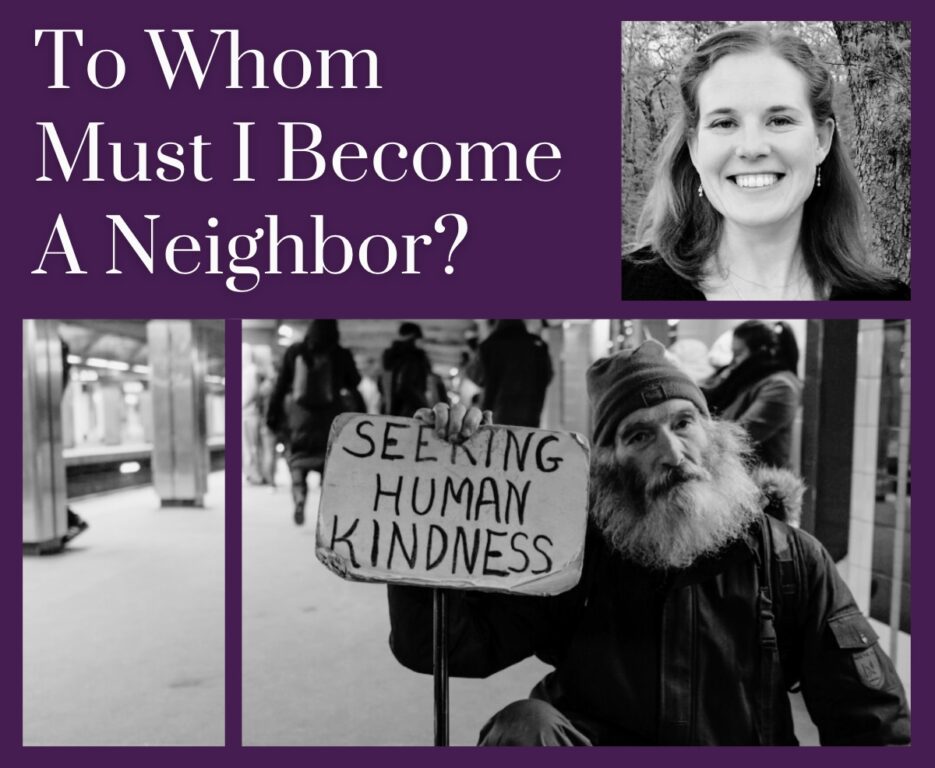
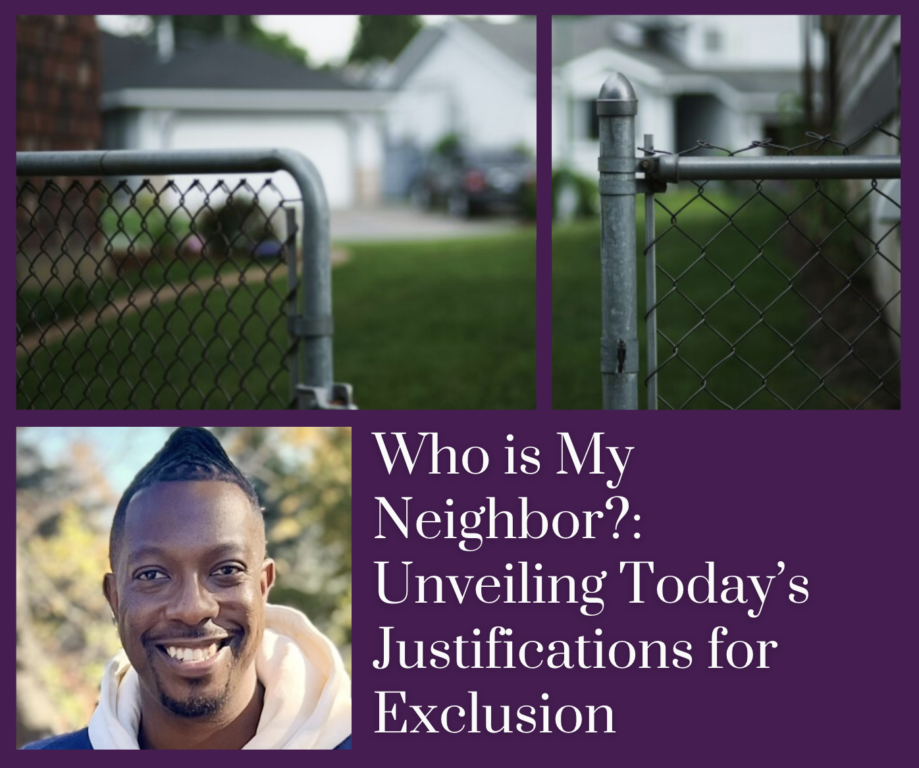
Lord Jesus, who prayed that all might be one, we pray to you for the unity of all Christians, according to your will, according to your means. May your Spirit enable us to experience the suffering caused by division, to see our sin and to hope beyond all hope. Amen.
Saturday January 20 – Loving Our Unhoused Neighbors: Miracle Mile Service Opportunity
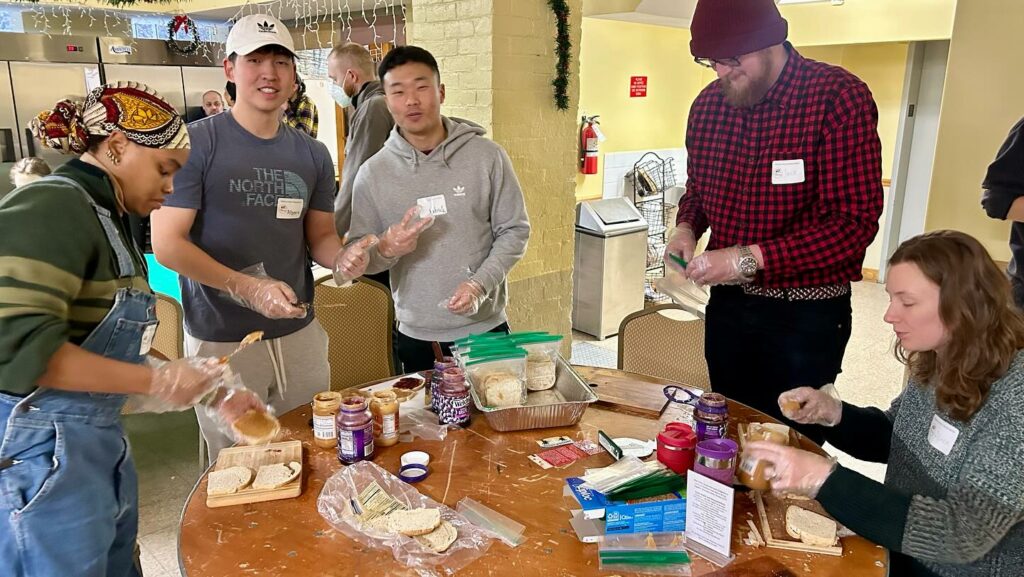
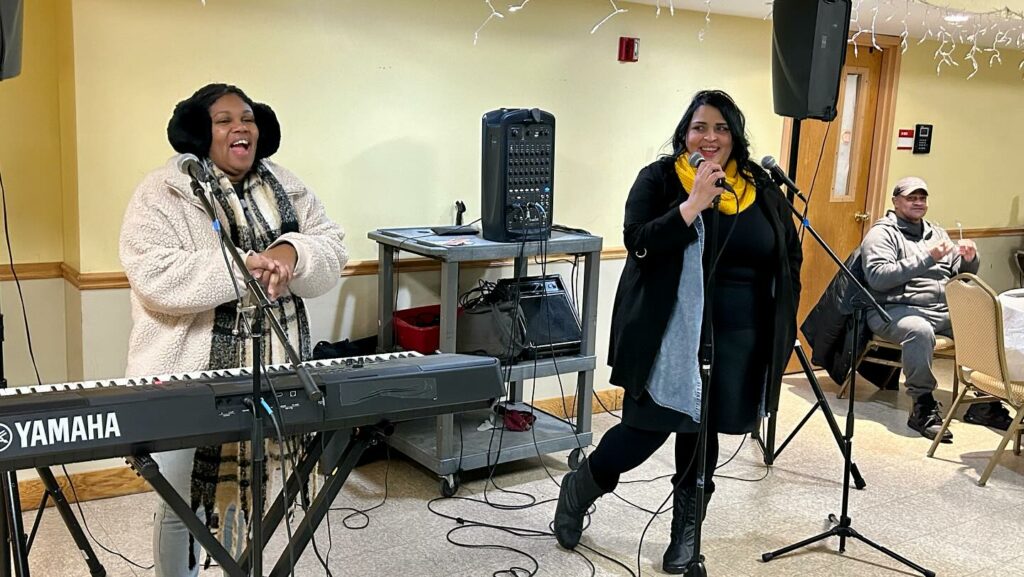
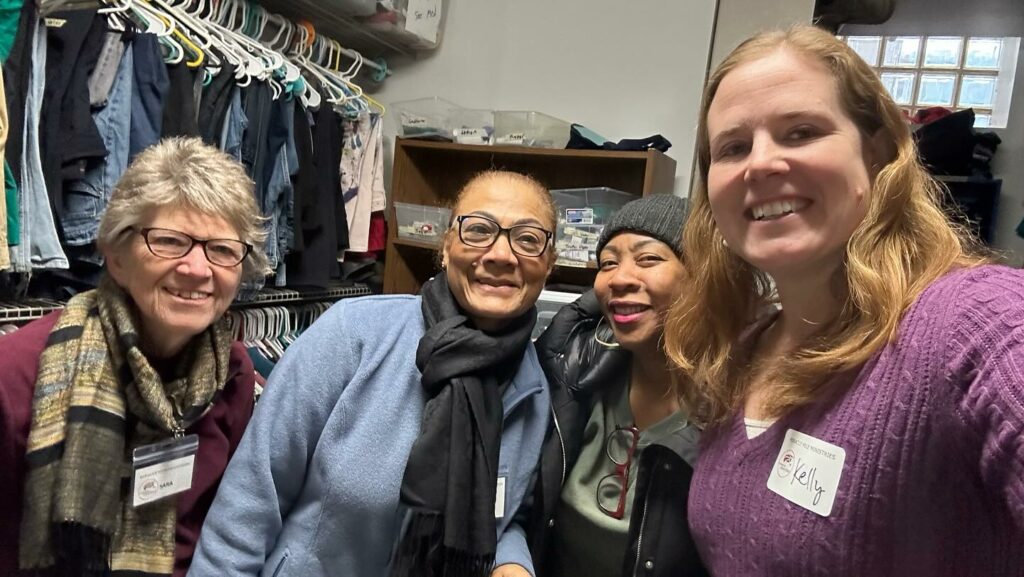
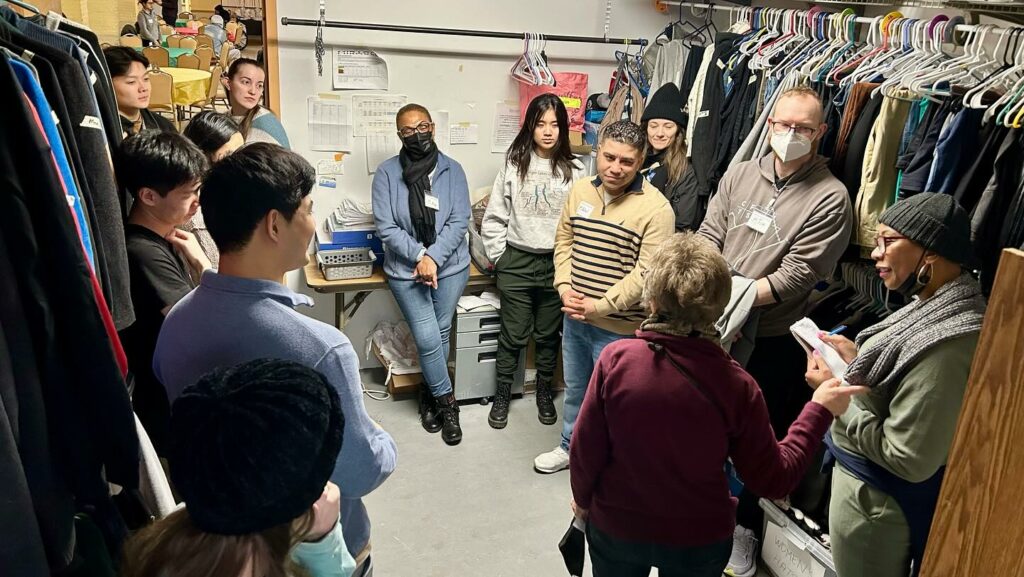
Miracle Mile Ministries is a collaborative of churches devoted to a sustained, deliberate, strategic response to the area we call “Miracle Mile,” a roughly 2-square-mile area in the South End of Boston often referred to as “Mass & Cass” or “Methadone Mile.” It is led by a core group of six Boston-area Lead Churches (Congregación León de Judá, Antioch Community Church Brighton, Cornerstone Church, Restoration City Church, Hilltop Church and Symphony Church) and also involves a dozen or so churches and parachurch ministries from throughout Boston’s neighboring communities who faithfully support this effort, week after week.
On Saturday January 20, 53 volunteers from 17 different churches served dozens of guests with a hot cup of coffee, a nourishing meal, clothing, conversation, and spiritual care. You can learn more about Miracle Mile Ministries here, and this is a regular service opportunity that you can participate in any Saturday morning! You can sign up to volunteer here. For questions, email Heidi, heidi.marie99@aol.com
“God of welcome, grant us the grace to risk embracing the stranger, tending their wounds and standing in solidarity with them. Strengthen our resolve to be kind and merciful and to act towards our brothers and sisters at all times as you do towards us.”
Sunday January 21 – An Afternoon of Christian Unity with The Focolare and Chemin Neuf Communities
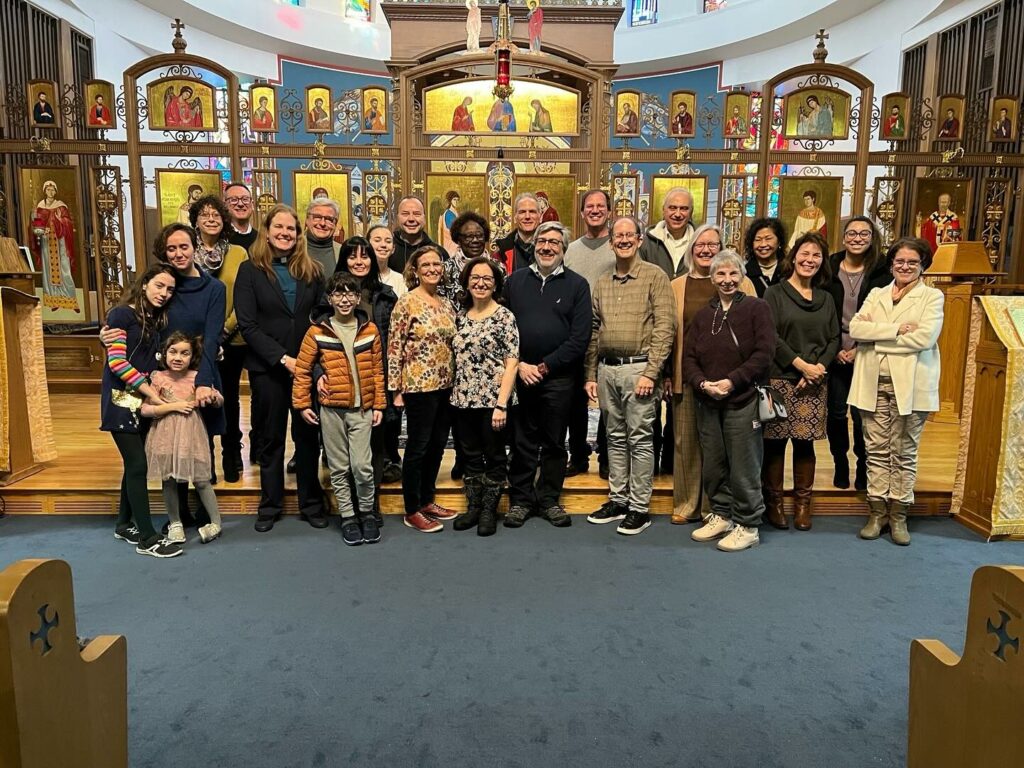
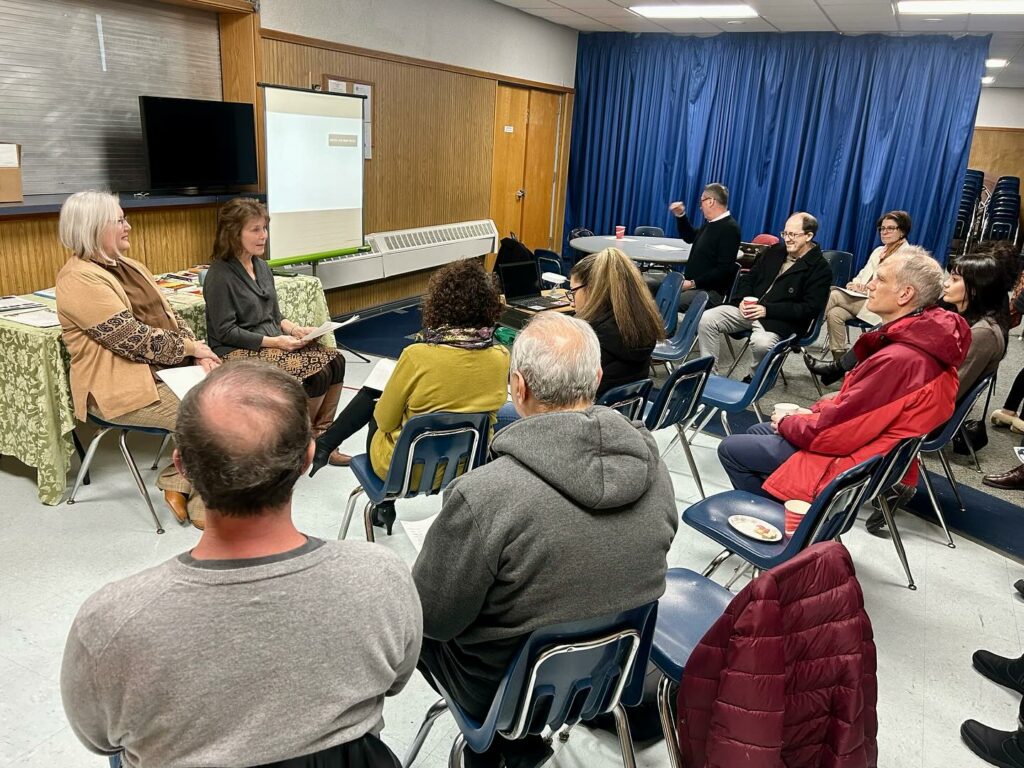
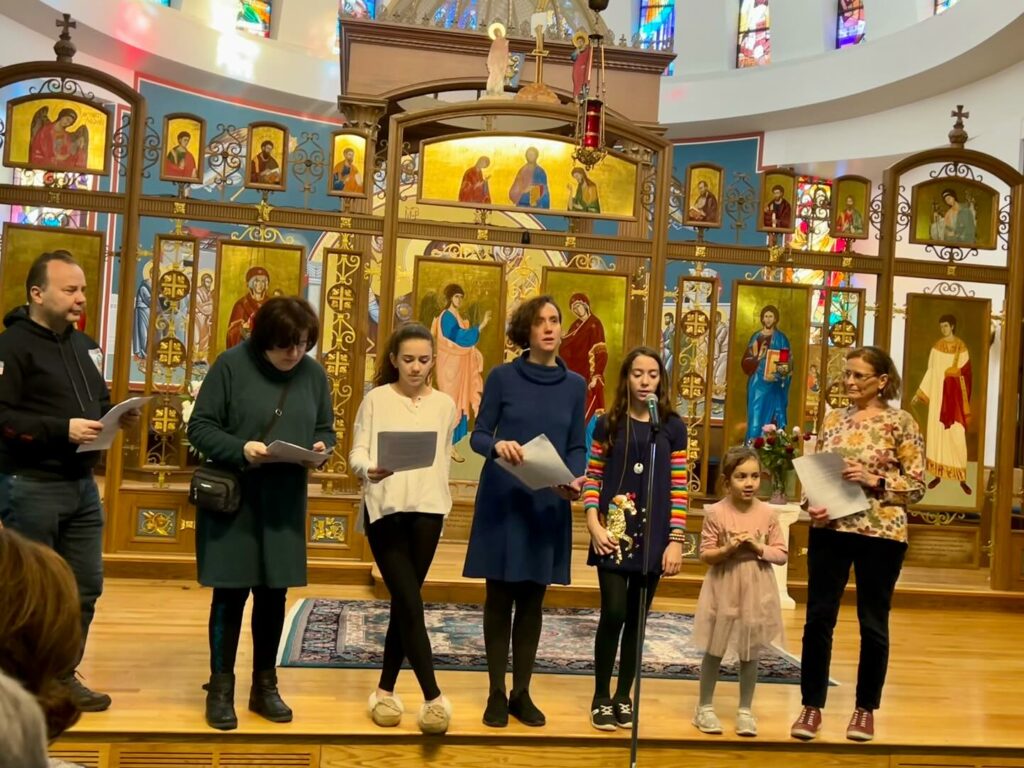
We gathered with the Focolare and Chemin Neuf communities for activities and prayer around the “love your neighbor” theme. We learned from Chiara Lubich that we must be the first to love, as that is what Christ did for us. We must develop the capacity to love Jesus in every person, as what we do or say to them we do to Jesus. The day ended with a liturgical prayer gathering in the beautiful sanctuary, including the youth leading us in the melodic choruses of “Baba Yetu / Our Father” song in Swahili.
Monday January 22 – “Love Your Neighbor” Neighborhood Dinner
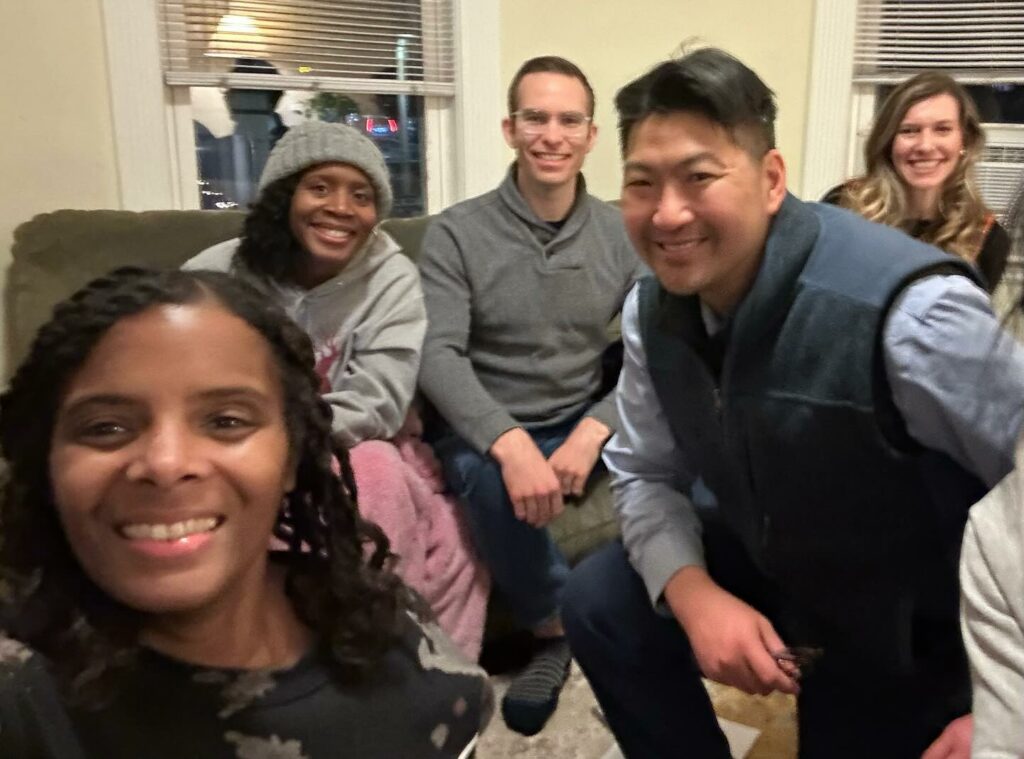
Cleopatra Muhammad hosted a neighborhood dinner on Monday evening centered on the theme of “Love Thy Neighbor.” It was as intimate gathering where they ate, got to know one another and took a creative look at what it means to love our neighbor. She said, “My favorite part was hearing and seeing people’s creative take on the story of the Good Samaritan – through poetry, re-imagining the story in a modern day setting, free write, and drawing.”
Tuesday January 23 – Taize Prayer Gathering
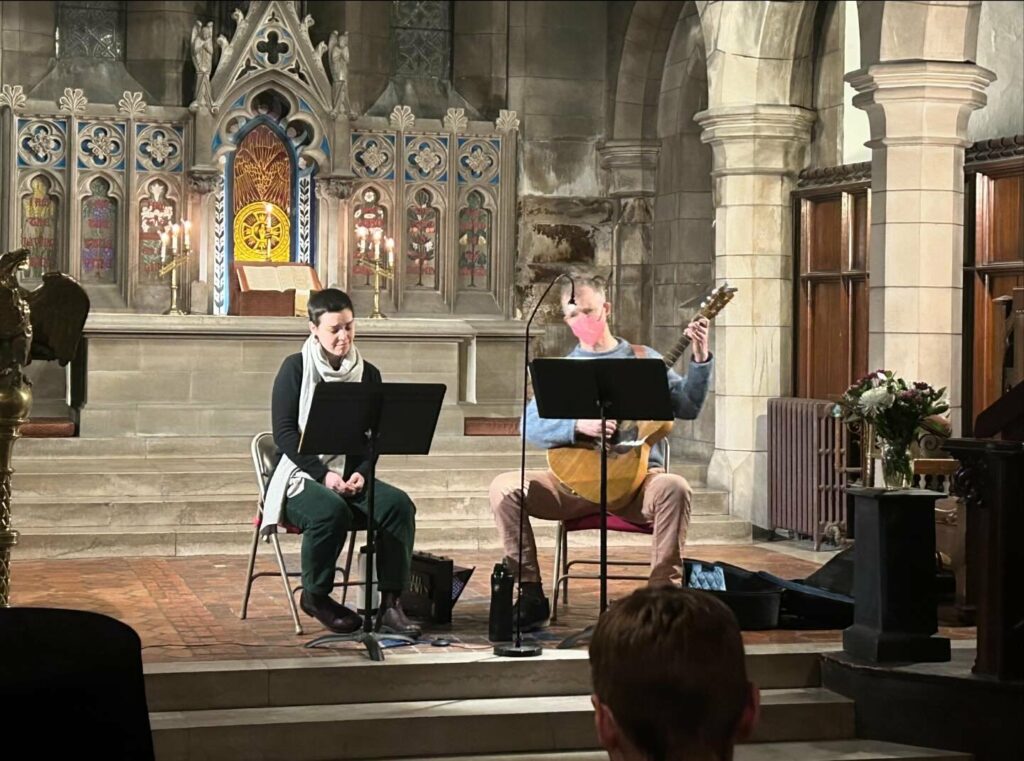
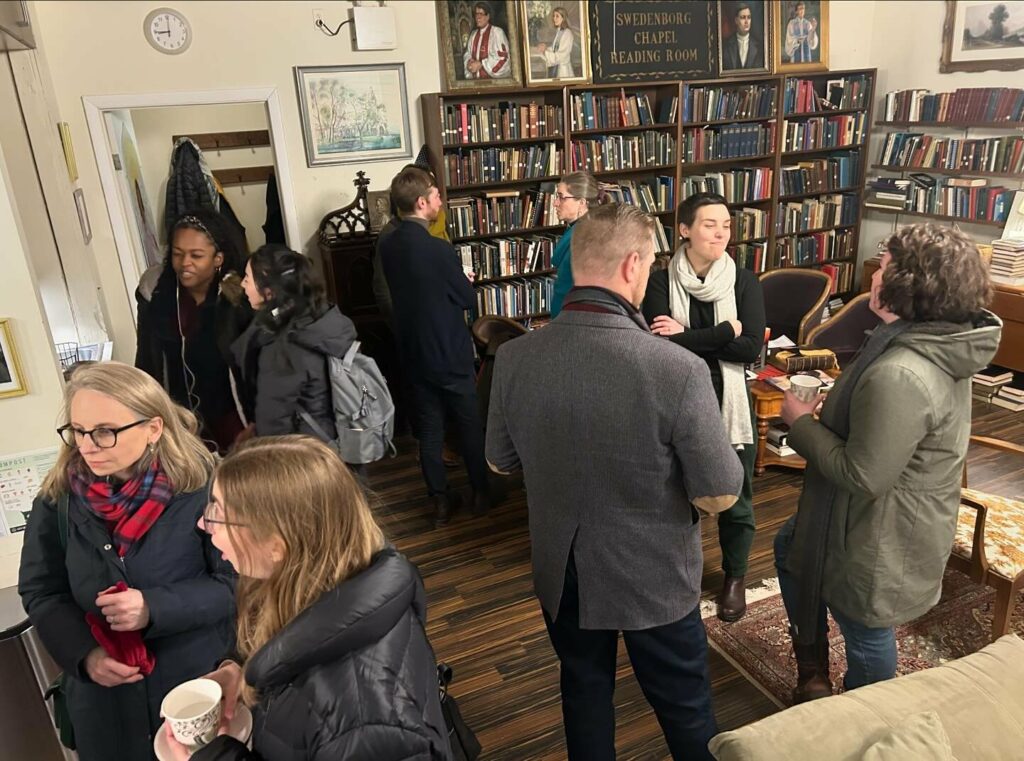
Tuesday evening’s Taize prayer service in Cambridge was absolutely beautiful visually and musically. It incorporated meditative song, silence and prayer around Jesus’ call to love our neighbor. The Taizé Community is an ecumenical Christian brotherhood in Burgundy, France, composed of over 100 brothers from all over the world, from Catholic and Protestant traditions, a true “parable of community” that wants its life to be a sign of reconciliation between divided Christians and between separated peoples.
Thursday January 25 – Christian Unity Prayer Gathering
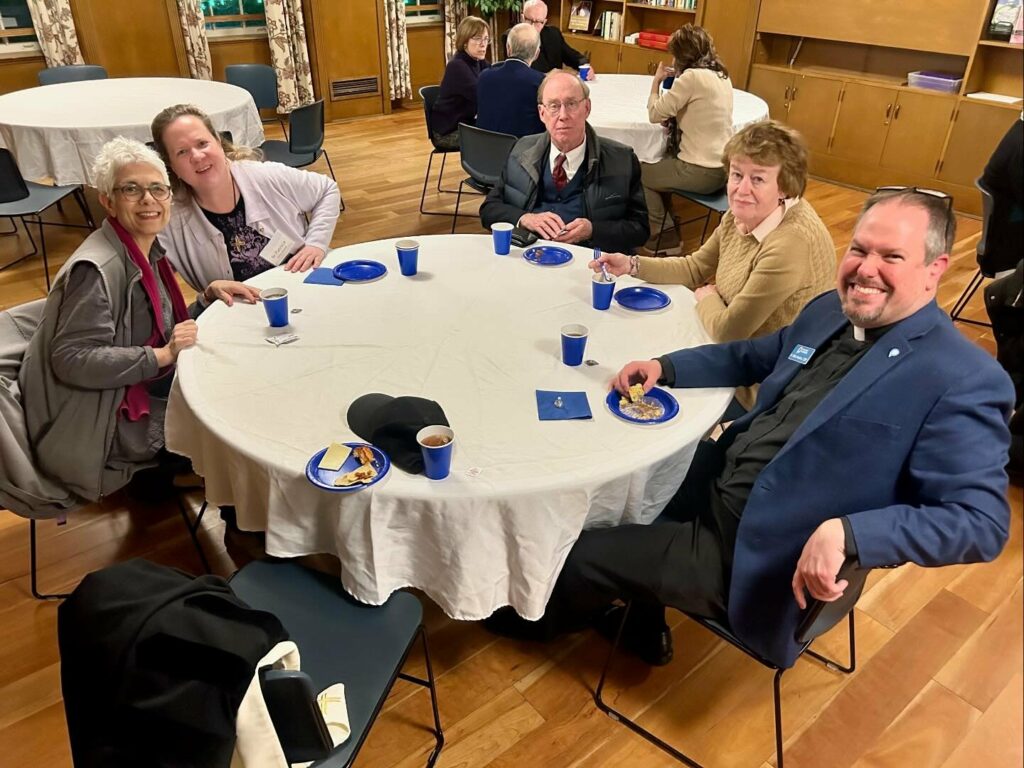
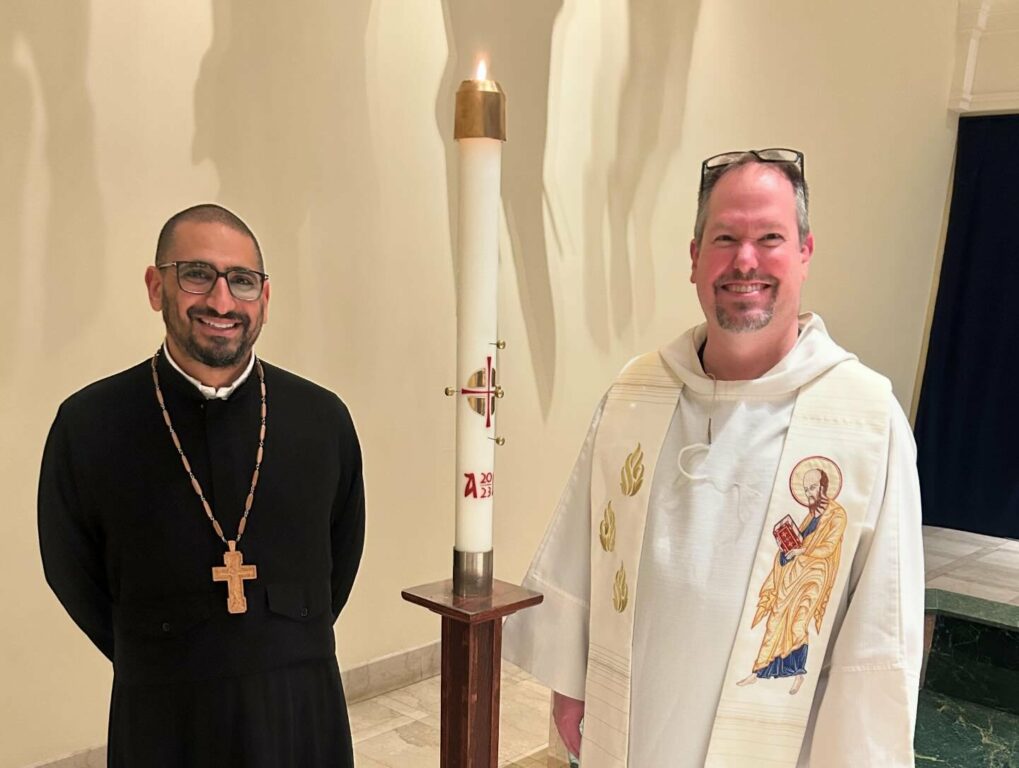
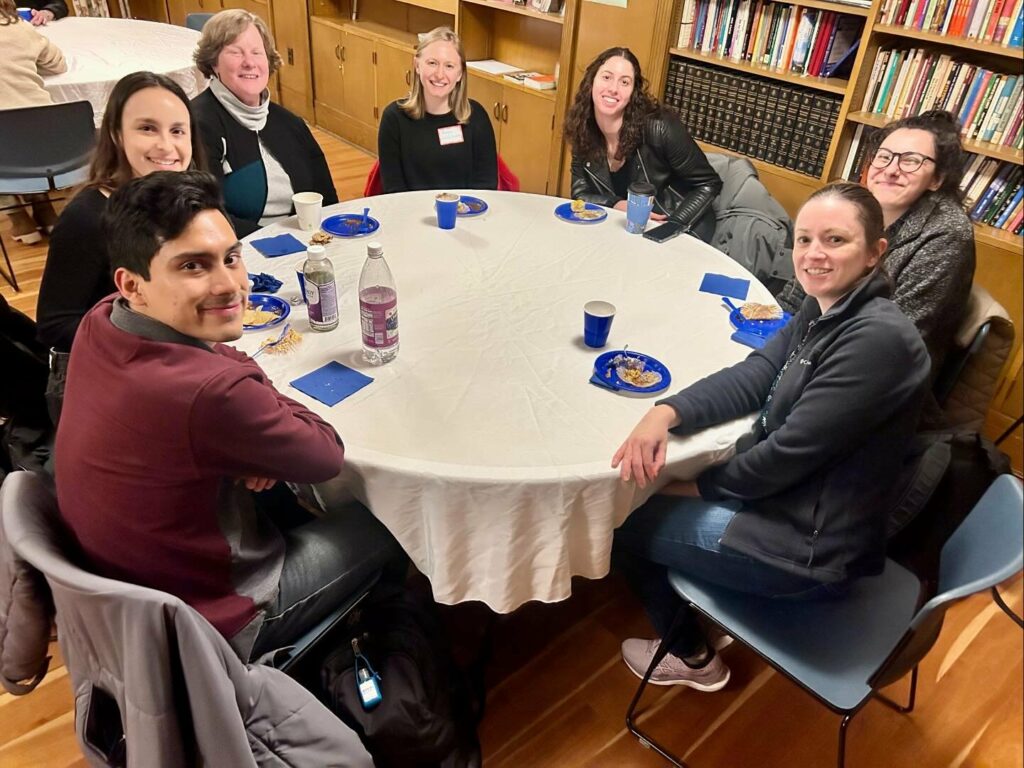
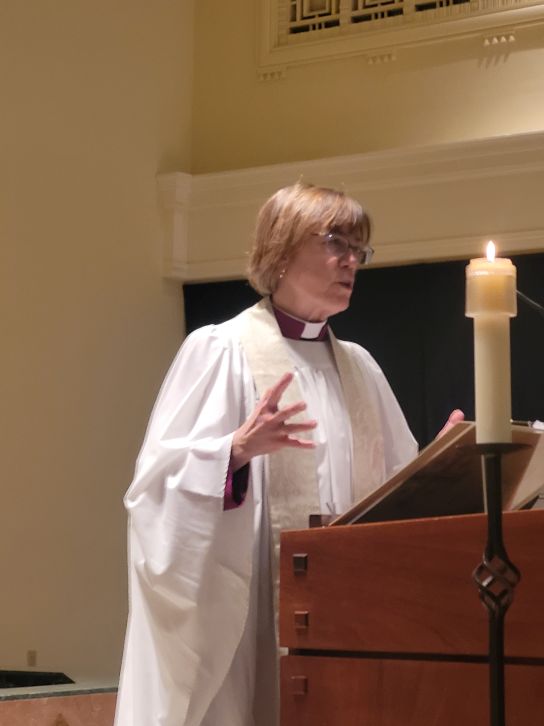
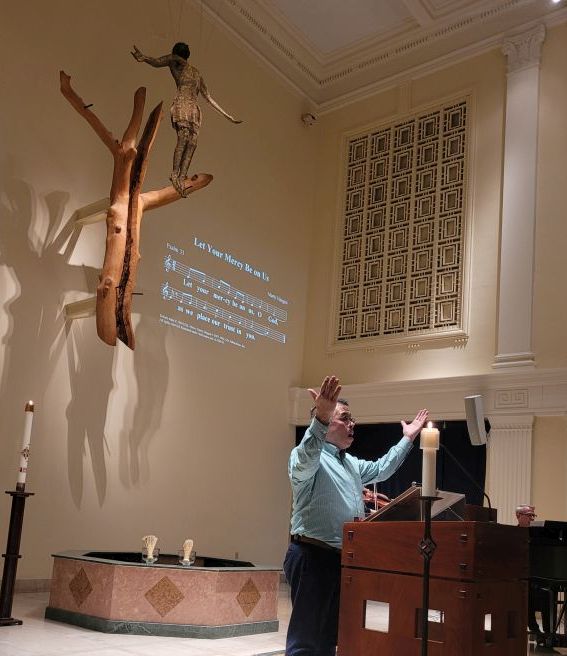
We had the privilege and honor of praying with clergy representing Catholic, Orthodox, Baptist, and Episcopal traditions at the Paulist Center and Chapel on Thursday evening for the Octave of this Week of Prayer for Christian Unity. It was an incredible time of prayer and ecumenical encounter as we enjoyed beautiful music, heard the call to care for creation by Dean Amy McCreath, and prayed for the needs of one another. To God be the glory!
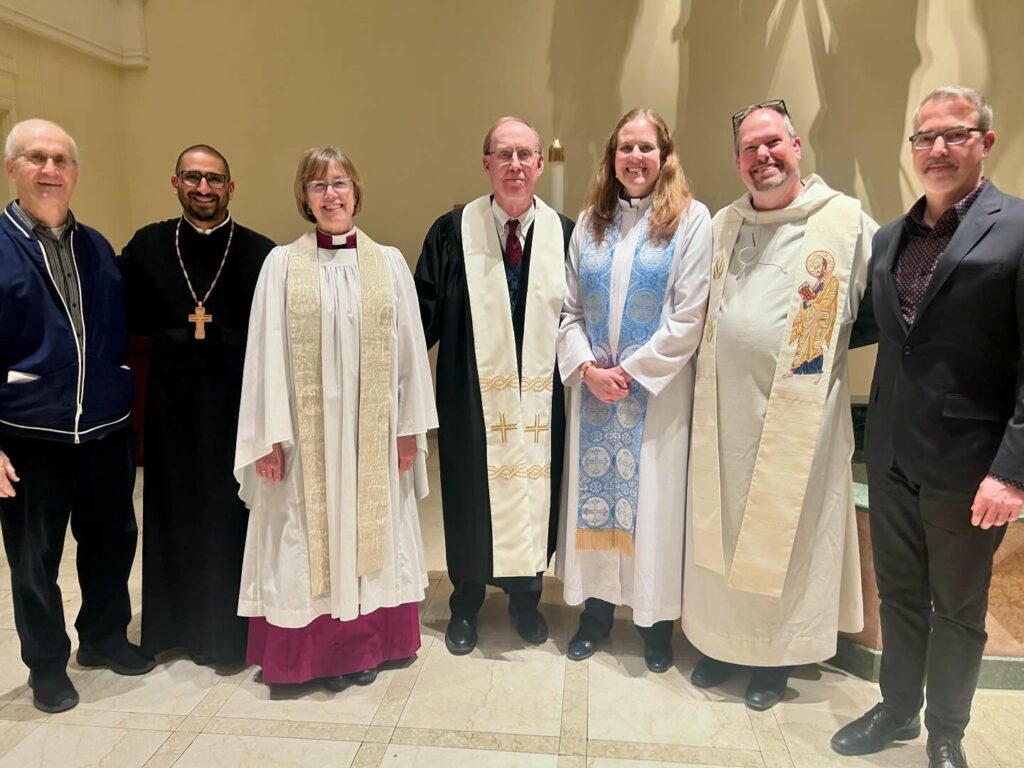
Above: Clergy at the Closing gathering for the Week of Prayer for Christian Unity. From left to right: Fr. Tom Ryan (Catholic), Fr. Mina Kaddis (Orthodox), Dean Amy McCreath (Episcopal), Rev. Colin Leitch (Swedenborgian), Rev. Kelly Fassett (Baptist), Fr. Rich Andre (Catholic), Music Director Nourmand Goui
God, our healer, we who are scattered like sheep without a shepherd, ask you to gather us into one fold. Enliven us by your Spirit and send us again, two by two, to be the light of the world and the salt of the earth.
January 25, 2024 at 2:24 pm in reply to: Harvard Slavery Tour Experience: Nurturing Love and a Shared Humanity #23946uniteboston
Keymaster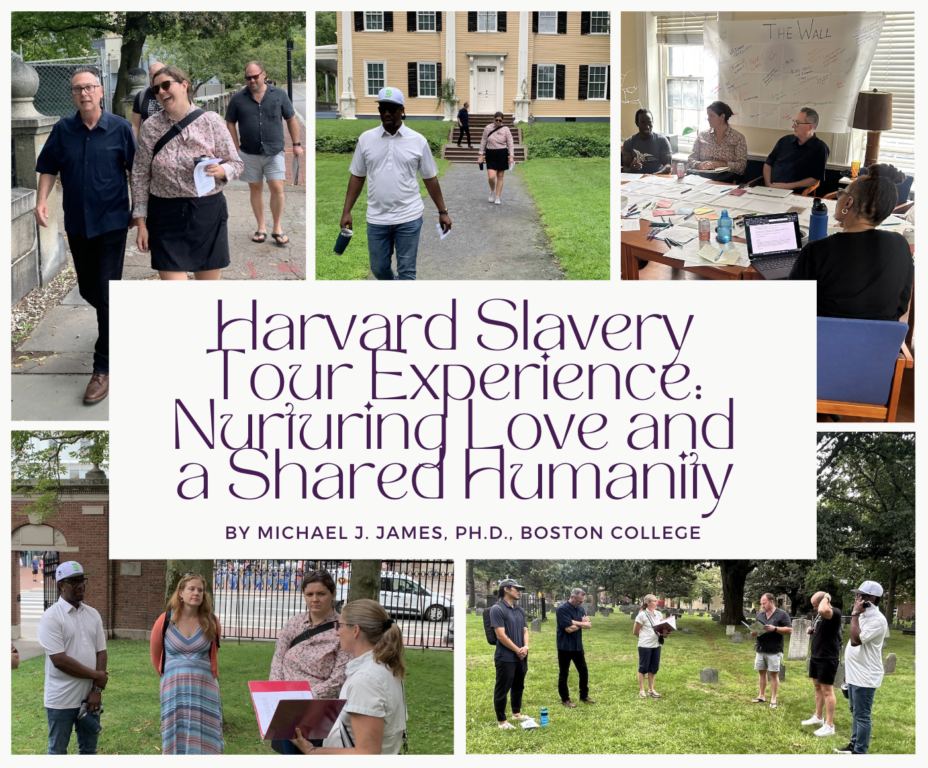
In our final blog around the theme of “Love Thy Neighbor” from the Week of Prayer for Christian Unity, Dr. Michael James shares some recent learnings and reflections of how he is applying his learning from the experiences he has had as a member of our Christian unity cohort. Michael James is a Resident Minister and faculty member of Boston College and also is a member of the Focolare Movement, a lay ecclesial movement of the Roman Catholic Church who seek to promote brotherhood and to achieve a more united world in which people respect and value diversity in alignment with Jesus’ prayer “that they would be one” (Jn 17:21).
Here, Michael shares how his experience during the Harvard Slavery Tour renewed his commitment to building unity through the “art of loving.”
In the face of a climate on most college and university campuses that are too often marked by isolation, fragmentation, discontinuity, competition, and abject individualism, my experience during the Harvard Slavery Tour reminded me of my responsibility to build processes of repair on my own university campus that cultivate a culture of unity through practicing the “art of loving.” By practicing the “art of loving,” I can participate in generating the counter currents of interdependence, relational action, dialogue, reciprocity, and fraternity.
In the Harvard & the Legacy of Slavery Tour Experience, we explored Harvard University’s entanglements with the institution of slavery. We walked for two hours, making ten stops in and around the nation’s first college campus, re-examining familiar terrain and learning about a part of Harvard’s history that has long been hidden in plain sight. The tour helps dispel the myth that the New England region did not play a significant role in slavery, profit from human trafficking, or contribute to the erasure of countless family histories. In addition, the tour elevates stories of Black women and men whose resistance and leadership have shaped the University—and our nation. Our tour was led by Rev. Rita Powell and Pastor Dan Smith, and it was intentional about taking space for prayerful reflection to remember and process a history that has been hidden for so long – too long.
The art of loving
My experience of walking the Harvard Slavery Tour in communion with brothers and sisters in Christ reminded me of the sacramental opportunity I have to build unity on my own campus of Boston College. Christian colleges and universities offer a distinct, formative, and transformative student development experience – the kind of experience that is animated by the life of Jesus. Christian unity calls us to encounter Jesus in one another through love. As a faculty member I am called to live a vocation that invites all members of our campus to build unity through a practice in the “art of loving.”
The “art of loving” is demanding. It requires us to love everyone – acknowledging that our dignity and value are not external, but inherent; not dependent on what we do, but who we are: made in the image of God, the Imago Dei (Gen 1:27).
- It is selfless. It calls me to share the joy and pain of another person by letting go of my worn strong beliefs, opinions, and ideas in order to make the other’s perspective my own.
- It is generous. I am asked to be the first to love in each encounter. I ask myself, “What is the will of God in this moment with this person?” The answer is simple: to love that person who is made in the image of God. I must initiate love for the other right away, without expecting anything in return.
- It is reciprocal. I have come to understand, through the example of Jesus, that a person discovers his or her deepest, most authentic self by being detached from the self. To enter into relationship, I must identify and embrace my own self-identity, while at the same time relinquishing it for the sake of the other.
Jesus shows me through His ultimate sacrifice that I am myself, not when I close myself off from the other, but when I give myself, when out of love I lose myself in the other. In this way I actually find myself.
Embracing our shared humanity
The opportunity for reverence and reflection at the gravesites of enslaved people in Cambridge was the most formative moment for me on the Harvard Slavery Tour. I learned about Cicely and Jane, aged 13 and 22, who were the only known enslaved people buried in the Old Burying Ground, but for whom not much else is known. In prayer in front of the gravestones of Cicely and Jane, I recalled how I had grown increasingly more at peace with the weeks and then months of being sheltered-in-home during the spring and summer of 2020. Absent my daily commute to campus, I enjoyed reduced stress, more leisure time with my family, long meals and hikes in the park, and the luxury of time to read, write and work on lesson plans.
However, the walls of silence I had built through self-isolation began crumbling. My conscience grew increasingly unsettled with each incident of violence and racism against brothers and sisters of color. I had been further jarred from my “comfort” as COVID-19 ravaged Black and Latino communities disproportionately compared to white communities. In this state of mind, I eagerly sought out sources of conversation, consolation and conversion.
James Baldwin, in his 1964 essay, Nothing Personal, spoke of the “miracle of love” that begins to “take flesh” when we encounter someone who embraces our wounds and is unafraid of making themselves vulnerable. As I reflected at that time on the national landscape of morally questionable leadership and the divisive nature of our public discourse, I recognized how prophetic Baldwin’s words were at that moment and endure today.
Baldwin asks how we can navigate and embrace our shared humanity. He laments that “our failure to trust one another deeply enough to be able to talk to one another has become so great that people with these questions in their hearts do not speak them.” In many ways, we as a society are still deluding ourselves that wounds are something to be hidden rather than fundamental realities to interrogate.
Reflecting more deeply at that moment on my own paralysis to act, to make the connections that this particular moment necessitated, I decided to contact Black and Latino students with whom I shared spaces of teaching and learning over the last several academic semesters. My students spoke with me from locations including Miami, Washington, DC, Los Angeles, Boston, and New York City. Each person described their frustrations with the anemic debate about who is on the right and wrong side of public violence and the murders of black people, as well as the passivity of public conversations about the best way to correct systemic injustices. As these young people shared with me their increased sense of vulnerability to COVID-19 in communities of color, the slaying of Black lives, and their persistent personal encounters with racism and police violence, I experienced their outrage, devastation, exhaustion, fear, powerlessness, and anxiety.
As I entered into my students’ suffering, I heard Baldwin’s question echo – how do I navigate and embrace our shared humanity? The answer, Baldwin proposes, does not emerge in politics or law. As much as the correcting of social evils does require radically examining and repairing our political system, any change that does not begin on the individual level will be inert, at best. I recognized that the answer will not be something one can purchase or manufacture by oneself. Instead, the only adequate answer is something from beyond ourselves.
The founder of Focolare (a lay ecclesial movement in the Catholic Church that I am part of) Chiara Lubich presents the vision of “a world united” challenges me to look beyond myself as an educator, scholar, teacher and minister. Lubich explains,
“The goal that has been assigned to education (to form the human person so as to render him or her independent) is implemented almost paradoxically, by forming the ‘person-in-relationship,’ which for us means the human person in the image of the Trinity, one who is capable of continually transcending self…” It is through this spiritual and educational practice of mutual love, to the point of becoming completely one, that we work toward the achievement of the goal of all goals, expressed in Jesus’ prayer and testament: “May they all be one.’”
Lubich’s insight is that social justice begins from a personal choice to share the suffering of our brothers and sisters. In doing so, we look at our own woundedness and openly share our vulnerability. The more we deny our humanity, the more we become blinded to others’ humanity. We forfeit the grace that comes with the miracle of love.
Conclusion
Walking the Harvard Slavery Tour helped me to renew my commitment to build a unity that requires acknowledgement of exposed systemic injustices in Catholic higher education and in the broader social context. Building unity requires me to address Catholic campus cultures that have been historically fractured by the disparities attributed to students’ socio-economic status, race, gender, sexual identity, and ethnicity. It is my hope that by practicing the “art of loving” on my own campus, I contribute to the work of repair by cultivating unity that generates countercurrents of interdependence, relational action, authentic dialogue and an ethic of reciprocity that may, by a miracle of love, begin to change 400 years of a different narrative in our city, state, and country – one that has not been based on interdependence or love.
January 17, 2024 at 4:44 pm in reply to: Who is My Neighbor?: Unveiling Today’s Justifications for Exclusion #23888uniteboston
Keymaster
During this Week of Prayer for Christian Unity, we are discussing practical implications of the theme of “Love Your Neighbor” for Christians in Boston. Last week, Rev. Kelly Fassett discussed “To Whom Must I Become A Neighbor?” and this week, Rev. Devlin Scott challenges us to consider how we might inadvertently seek to justify ourselves instead of fully embracing Jesus’ radical acceptance.
Jesus was known for who He “included” rather than who He “excluded.”
And to that statement, let the church say, Amen. We’re familiar with the narratives showcasing Jesus’s profound love and the courageous sense of community he embodied. He interacted with diverse individuals—the woman at the well, the outcast in the wilderness, the woman caught in an illicit act, the tax collector who exploited his people, the zealot, and those with physical impairments. The company Jesus kept was quite extraordinary and diverse, including individuals with varying interpretations of scripture (the Torah).
Jesus had been establishing a reputation that revolutionized how people perceived their God and faith. However, a segment of society regarded his approach as excessively radical, potentially sinful, and even blasphemous. In an apparent show of bravery, yet with an underlying motive to test Jesus, one man engaged in a series of questions. He initiated with, “What must I do to inherit eternal life” (Luke 10:25 NIV)? This query, a common concern across various religions and notably within Christianity, delved into the pursuit of eternal life and the essence of religious law, commonplace in Judaic discussions. It’s worth noting the man’s presumption that his actions could merit or contribute to attaining eternal life.
Jesus steered the conversation back to the teachings of the Old Testament, an area where the man held expertise and which served as the primary source of religious wisdom. When asked by Jesus, the expert in the law promptly cited the familiar commands: “Love the Lord your God with all your heart and with all your soul and with all your strength and with all your mind’; and, ‘Love your neighbor as yourself.” This mirrored Jesus’ own instruction (Mt 22:37-40), indicating the man’s familiarity with these teachings found in the Old Testament (Dt 6:5; Lev 19:18). Jesus appreciated the accuracy of the man’s response, much like praising a child who flawlessly recites a memorized verse. However, the subsequent question wasn’t a test for Jesus; it aimed to justify the man’s position or perhaps refine the command. Commentator and Biblical scholar Kenneth L. Barker suggests, “The only way to justify oneself is to limit the extent of the law’s demand and consequently limit one’s own responsibility.” The expert in the law sought to rationalize or narrow down his personal obligation by asking, “Who is my neighbor?”
This move doesn’t just fall short; it actually achieves the opposite effect. Jesus responds by sharing the parable of the Good Samaritan. As Kelly eloquently delved into last week, Jesus’ answer to the man’s query didn’t narrow down his responsibility to his neighbor, nor did it restrict the definition of who could be considered a neighbor – it widened both aspects. Essentially, Jesus’ reply to the question, “who is my neighbor?” highlighted that he had more neighbors than he had assumed and to truly embody being a good neighbor, he needed to extend far more care and support than he might have initially imagined.

Photo by Alvin Engler on Unsplash I wonder what derivative of this law-limiting, responsibility-shrinking question we are still asking today? When confronted with the idea of loving our neighbor, are we still attempting to rationalize ourselves, our stances, our theological perspectives, our doctrinal convictions, and our traditional values? While we might acknowledge the command, similar to the expert in the law, are we interpreting it in a manner that enables us to evade a radical response, akin to the teachings Jesus imparted through the parable of the Good Samaritan? What is our version of the evading question, “who is my neighbor?” Let’s consider two examples; one that is quite familiar and one that I propose we reconsider.
The saying “love the sinner, hate the sin” is a common phrase, often seen by many Christians as a reasonable way to express care for individuals while maintaining strong convictions on various matters. It’s a poetic, passionate, and powerful notion, frequently quoted and attributed to Mahatma Gandhi in his 1929 autobiography. However, Gandhi’s full statement delivers a different message: “Hate the sin and not the sinner is a precept which, though easy enough to understand, is rarely practiced, and that is why the poison of hatred spreads in the world.” This fuller context might not align with the intent of using it to justify or limit responsibility. Moreover, when considering the perspective of the “sinner,” they might not perceive themselves as your neighbor upon hearing this phrase. It’s an easily accessible idea but falls short of encapsulating the depth of Jesus’ message portrayed through the actions depicted in the parable of the Good Samaritan.
Consider this: Churches nowadays often emphasize being “Bible-believing” as a distinguishing factor. The statement would suggest that there are “churches” that do not believe the Bible. Certainly, that can be true. There are gatherings of people that might identify as a church where the Bible is not the sacred word of their deity, nor is it considered in their religious spaces. By this description, these wouldn’t be Christian churches and neither would they claim to be. Additionally, “Bible Believing” churches might even say that if a church does not see the Bible as inerrant or infallible they do not see the Bible as the authoritative Word of God thus they aren’t “Bible Believing.” But that is not a view that those they are describing would support. A more accurate description of what is juxtaposed to a “Bible-believing” church should be articulated as follows: A Bible non-believing church is a non-Christian organization because Christ and his work and its significance are found in the Bible. Thus to be Christian, of any sect, would require belief in the Bible.
The concern is not that “Bible believing” is clarifying Christian verses non-Christian, but that it’s about segregating one kind of Christian from another; “our kind” of Christian versus “their kind” of Christian. Moreover, this emphasis is often used to specify who the group will associate with or support. And therein lies the derivative of the self-justifying, law-limiting, responsibility-shrinking question, “Who is my neighbor?”
Setting aside the idea that “Bible believing” as a label against other Christians suggests that your understanding of the Bible allows you to assert ownership over it, the phrase tends to serve as an exclusionary rather than an inclusive marker. Once more, I doubt that those presumed to be “Bible non-believers” feel a sense of neighborliness when this barrier is raised.
Jesus adeptly navigated this by providing the dignity, acceptance, and sense of belonging that those usually marginalized within the church required, all the while upholding the OT law instead of abolishing it (Matthew 5:17-20).
I encourage you to reflect not only on “who your neighbor is,” but also on how we might inadvertently seek to justify ourselves instead of fully embracing Jesus’ radical acceptance. Remember, Jesus prophesied in his prayer in John 17 that the world would recognize him through how we, his followers, understand and live out our responsibility to one another, that we are unified as one.
As we prayerfully contemplate the theme of this year’s Week of Prayer for Christian Unity, let us strive to emulate Jesus – aiming to include rather than exclude. Let’s introspect, examining our hearts for instances where we might be attempting to justify ourselves by restricting the law or our responsibility. May we lean towards generosity, compassion, and love, rather than starting from a place of scarcity or segregation. Let’s simply and boldly love our neighbor – all of our neighbors – deeply and without reservation. Let the church say, Amen.

Photo by Tim Bish on Unsplash uniteboston
Keymaster
Some might say that “Love Your Neighbor” is the quintessential call of a Christian… but what might this mean practically for Christians in Boston? This year’s theme for the Week of Prayer for Christian Unity is “You should love the Lord your God… and your neighbor as yourself” (Luke 10:27). For the next two weeks, UniteBoston staff Rev. Kelly Fassett and Rev. Devlin Scott will be sharing wisdom on how we can live out God’s call to love our neighbors. Read below as Kelly invites us to consider, “to whom must I become a neighbor?”
As I’ve been reflecting on Jesus’ parable of the Good Samaritan these past few weeks, there are two things that have stood out to me: The willingness of the Samaritan to help his “enemy,” and the way the Samaritan dropped everything, sacrificing his own time, attention and resources to treat the injured man. He was moved with compassion, and so must we, when our “neighbor” is in need.
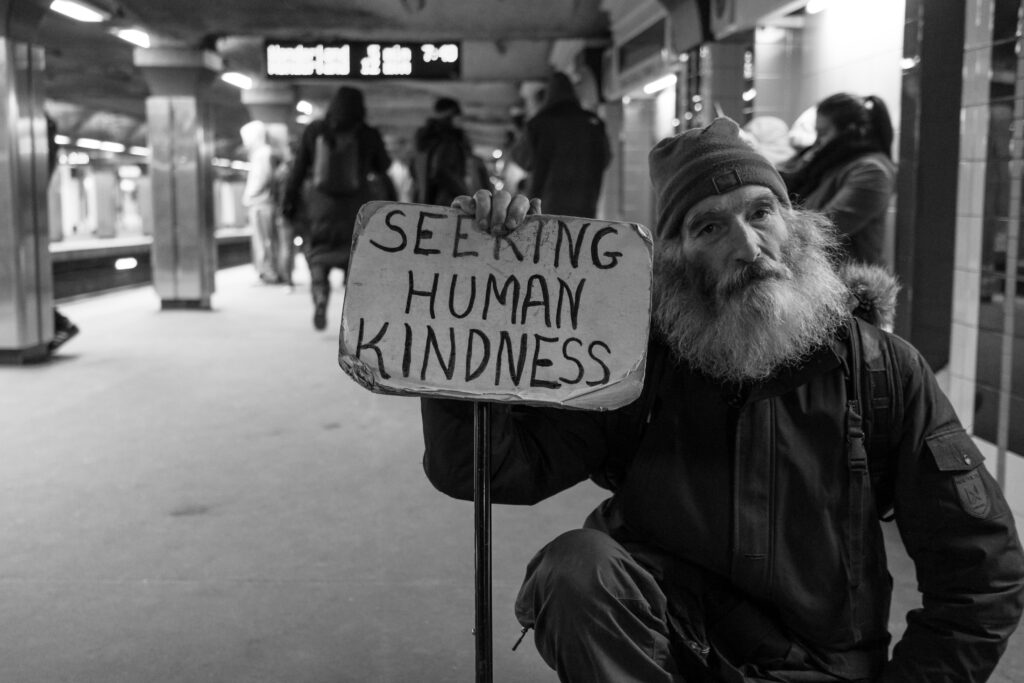
Photo by Matt Collamer on Unsplash First, this parable was quite provocative in Jesus’ day because of the hostility present between Jews and Samaritans. Individuals in these two groups hated one another because of their different religious beliefs. Samaritans claimed to be descendants of Israel, and believed that worship should be done at Mt Gerizim, not Jerusalem. These differing religious beliefs eventually became violent – In the intertestamental period, the Jews destroyed the Samaritan temple; and around 6AD the Samaritans spread human remains in the Jewish temple and sanctuary during Passover. Jesus’ followers who heard this story were so provoked because the hero in this story isn’t a religious leader, he isn’t even Jewish; he is a hated Samaritan, an outsider.
Second, the Samaritan demonstrated abundant self-sacrificial time, attention and resources to the Jewish man. Not only did he bandage his wounds to treat immediate needs, he risked his life by transporting the wounded man to an inn within enemy territory, and spent several days’ wages to continue his care at an inn. He took a risk and modeled costly love for the sake of a stranger, who was perceived as his “enemy.”
By telling this story, Jesus is expanding the idea of “neighbor” beyond the typical understanding of those who are in close proximity to us. The question is not just “who is my neighbor” but “to whom must I become a neighbor?” Jesus describes that neighbor is one from the outside group, the one whose beliefs or practices we don’t agree with and may even harbor feelings against: an “enemy.” The neighbor is someone we may avoid at all costs or we might secretly wish would fail. This isn’t to say that God doesn’t take sides, because I’ve learned that standing up for what is true and right is especially needed on issues of justice. The point is that too often I see God’s people drawing hard lines to keep ideological purity with “our tribe,” which can lead to underlying arrogance, hostility and antagonism, rather than upholding a posture of listening and engaging, treating one another with the love, care and respect that Jesus models and is core to our Christian witness.

In verse 33, the passage describes how Jesus was moved with compassion, which is the Greek verb splagchnizomai. This verb means to be moved in the inward parts, or to experience a deep visceral feeling. Mirriam-Webster defines that “Compassion is the sympathetic consciousness of others’ distress together with a desire to alleviate it.” Do we know one another enough to feel this type of deep compassion?
Here, Jesus is calling us to step outside of our comfort zones to show mercy. Yes, I know how easy it is as a Bostonian to put your head down and ignore all those around you to get what you need done every day (and many of us have a lot on our plates!) It’s also very easy to just stay with those who look like us and believe like us. I’ve learned that especially for the BIPOC community, being with “your people” is absolutely crucial to rest, heal, and avoid the micro-aggressions that are all-too common. Yet, Jesus said that even sinners love those who love them (Lk 6:32). This parable makes it clear that loving your neighbor isn’t about what is easy but about what is costly. It involves laying down our agenda, our time, energy, power, and resources for the sake of the other. It involves actually sitting with those on the “other side,” feeling what they feel, and even risking yourself for their sake, without expecting anything in return.
I invite you today to consider – To whom might God be inviting you to become a neighbor? Is it a particular person, or a group of people? What can you do to tangibly risk your life for their sake, offering your time or resources, in the likeness of what Jesus has done for us?
Being a neighbor might be risky, but it may lead to connection or friendship, or even change the course of two people’s lives, as it did for the Samaritan as well as the Jewish man in this parable. May you listen to God’s invitation during the Week of Prayer for Christian Unity and beyond, that we might not cross the road from human need but lay down our lives for our friends and neighbors.
uniteboston
Keymaster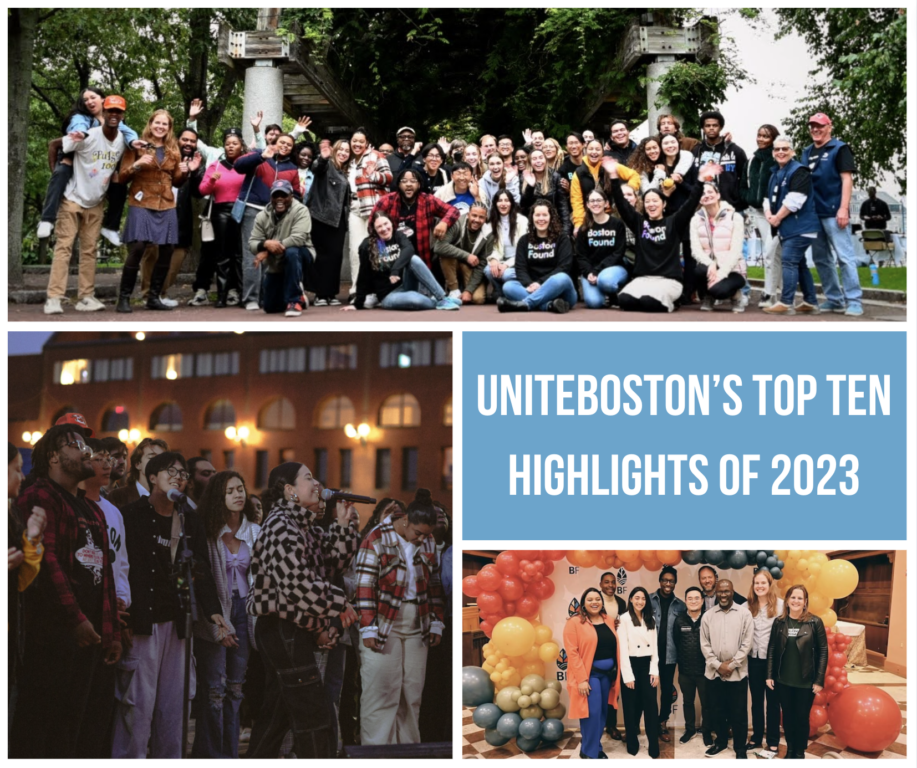
From hosting a united worship concert and the Boston Flourish conference, to launching a “Christian unity in the city” cohort, to hiring a third team member for UniteBoston, this was an incredible year for UniteBoston! Check out our year in review for 2023 – Glory to God!
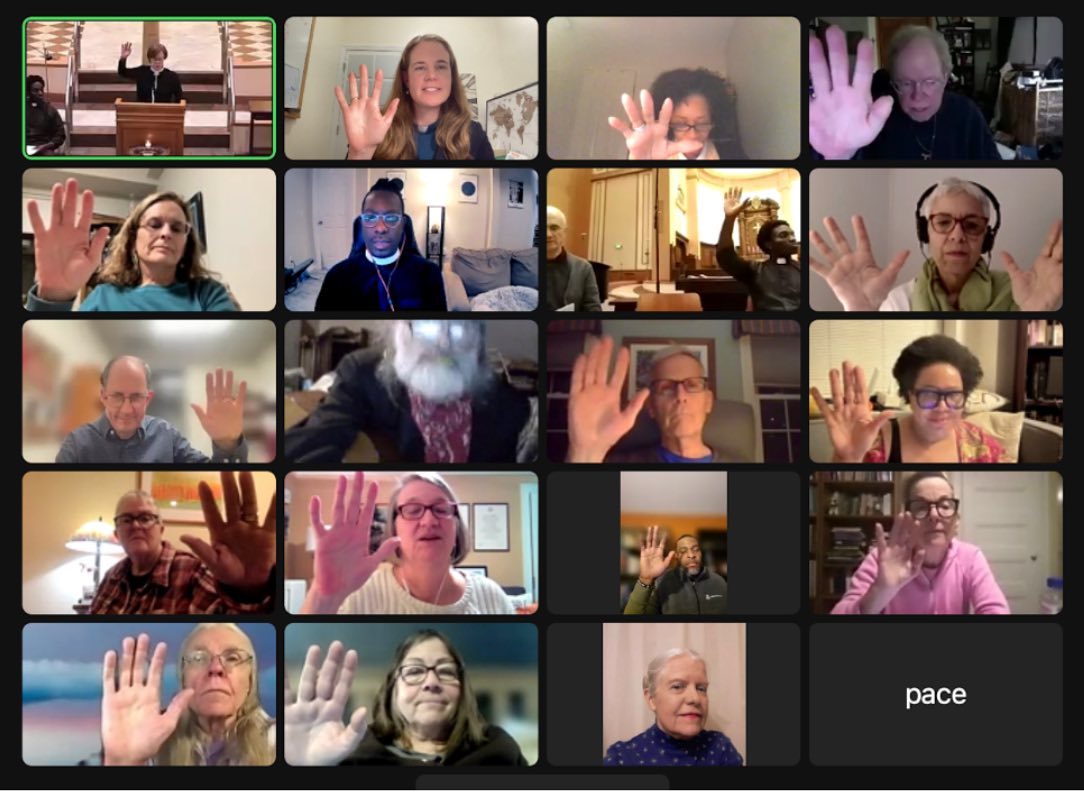
#10 – Here is a snapshot into a prayer gathering we hosted in January during the Week of Prayer for Christian Unity. This year’s theme was “Do Good; Seek Justice” (Isaiah 1:17) which integrated a holistic understanding of justice, including how we can live our unity as Christians so as to confront the evils and injustices of our time, and in particular addressing the sin of racism.

#9 – In May, we launched The ATTIC, a Facebook Group to help connect resources with needs and create a space for collaboration for Christians in Boston. This year in the ATTIC, people have found last-minute worship leaders, free equipment to borrow for a summer movie night, new prayer partners, advice on Christian counselors, and more! There are already 220+ members – definitely check it out and join!
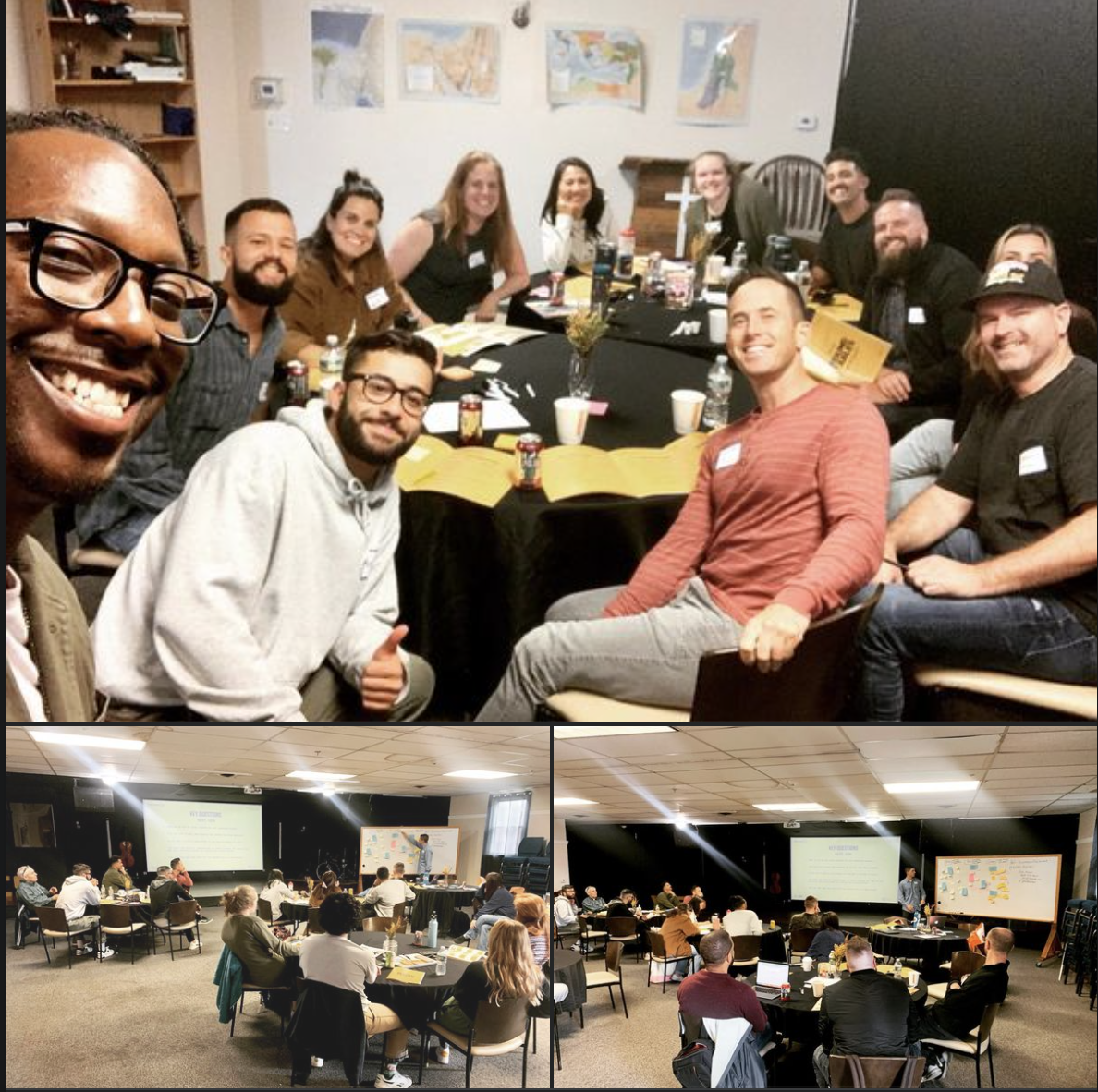
#8 – From May to September, our team came alongside The SEND to galvanize local participation and collaboration for their Boston-area arena gathering which gathered young adults to be sent into God’s mission fields locally and globally.
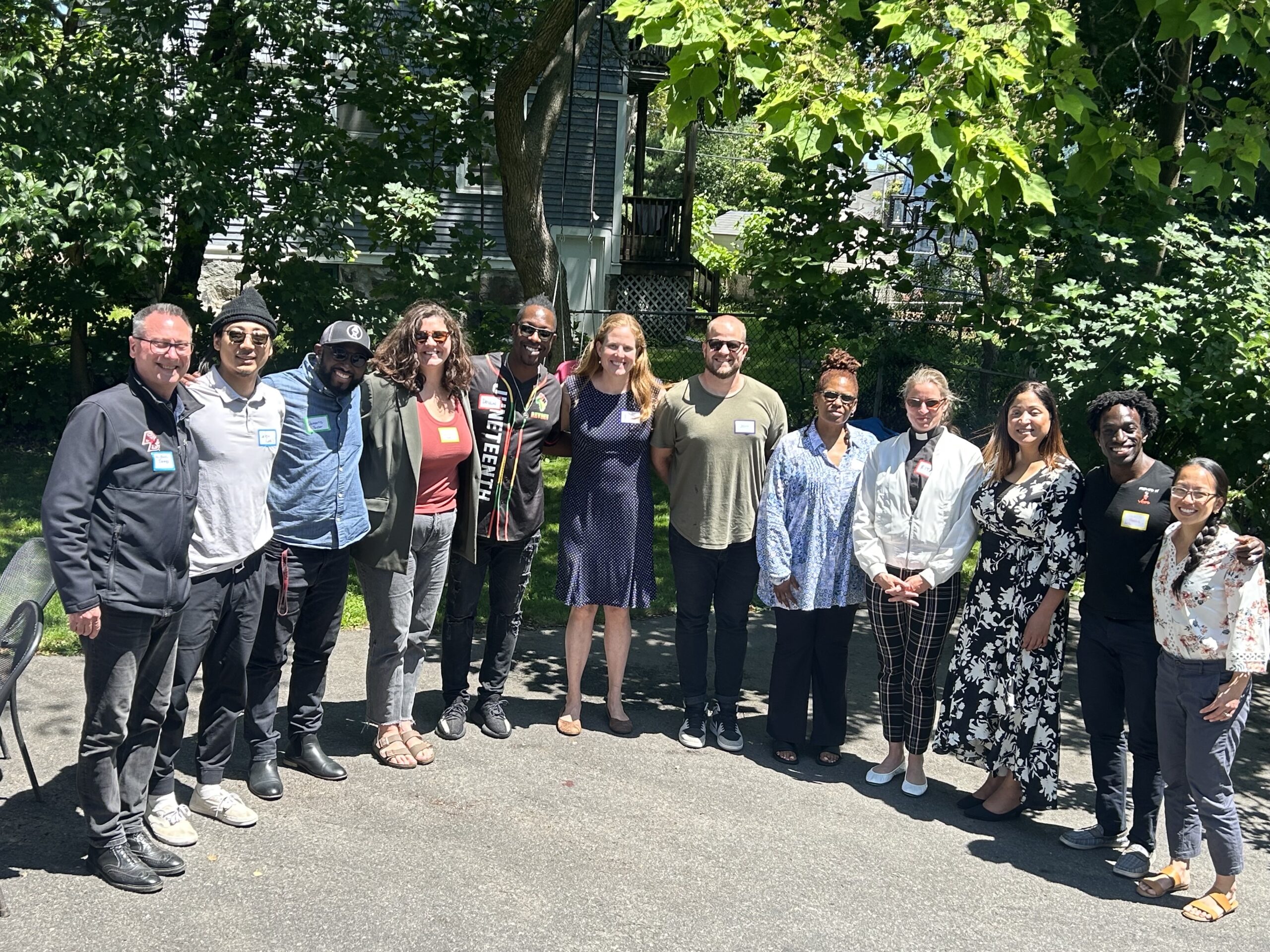
#7 – In June, we launched the “Christian Unity in the City” cohort, where eleven next-generation leaders have been meeting monthly for lunchtime conversations and story-sharing to explore the divisions within the current church and understand how people are living out God’s call towards unity, justice and reconciliation. The insights from community have played a pivotal role in where we are going as an organization to address disunity and division and activate people on God’s mission as ambassadors of reconciliation.
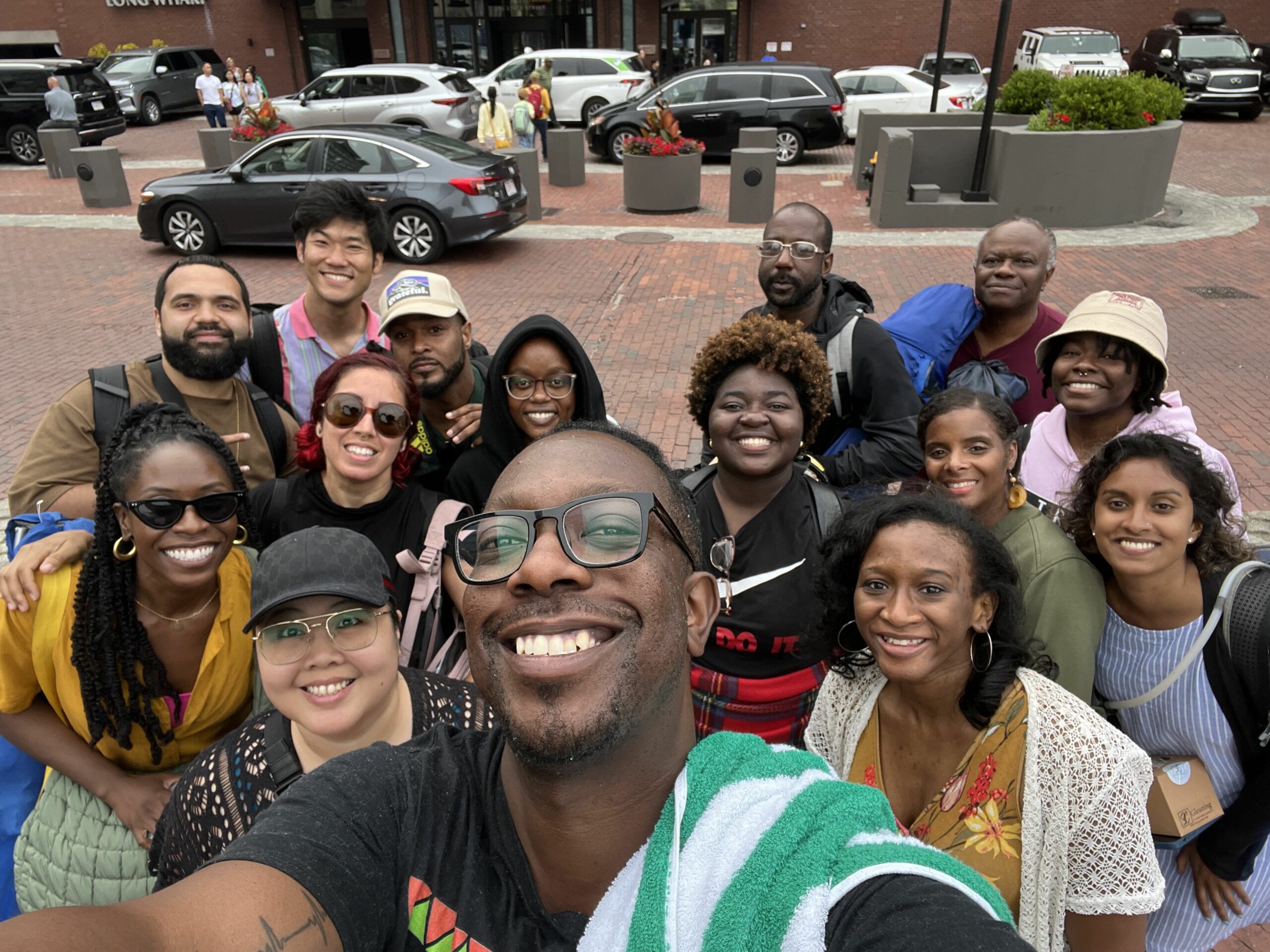
#6 – In July, we hosted a “Circle of Restoration” Island Retreat for BIPOC leaders to get away for self-care and connection in community. Individuals enjoyed a boat ride out to the island, beach games, music, massages, and a catered lunch.
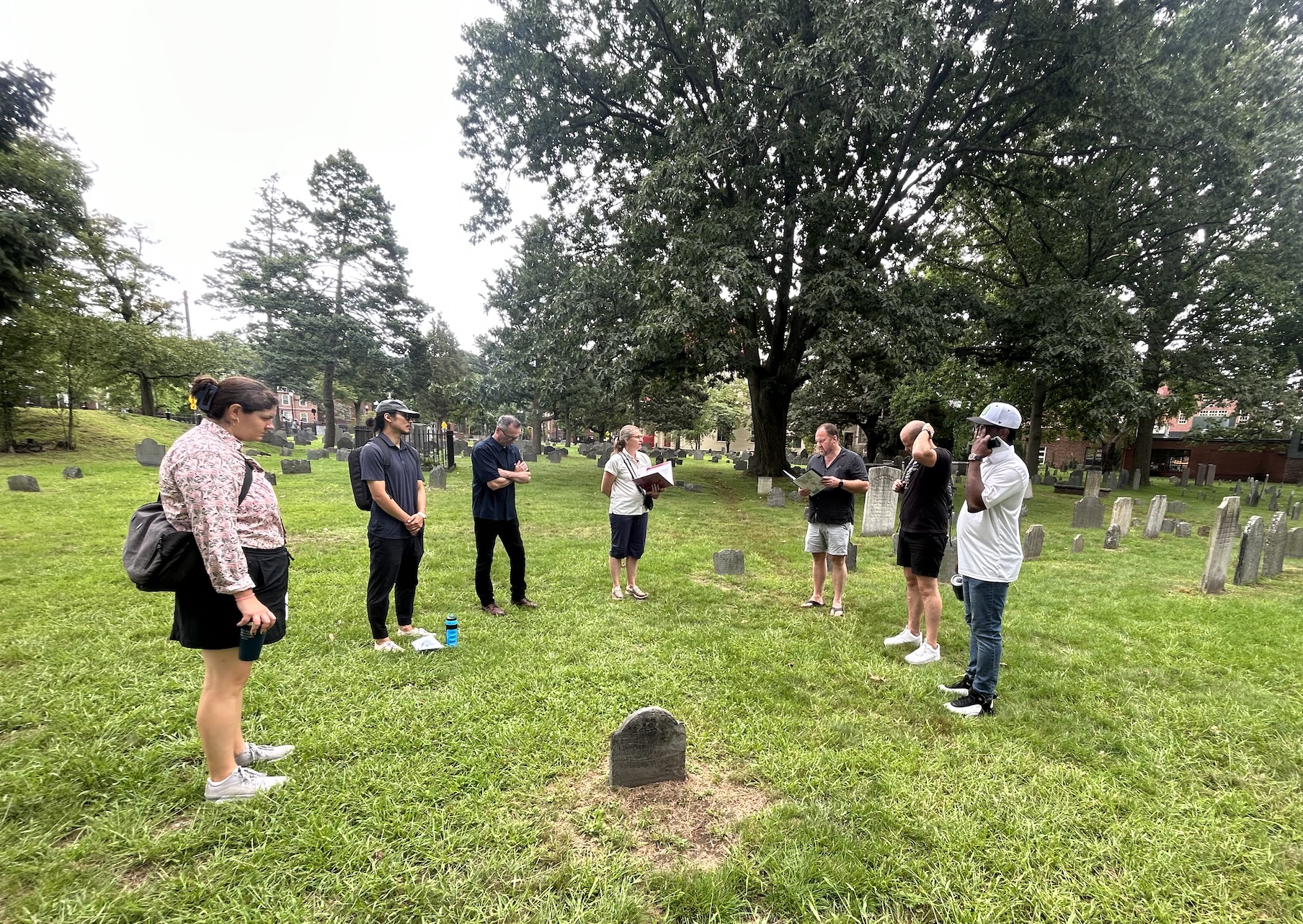
#5 – Here is a snapshot into our August Christian unity cohort gathering, where we participated in a tour on the legacy of slavery at Harvard University, hosted by Rev. Rita Powell and Rev. Dan Smith.
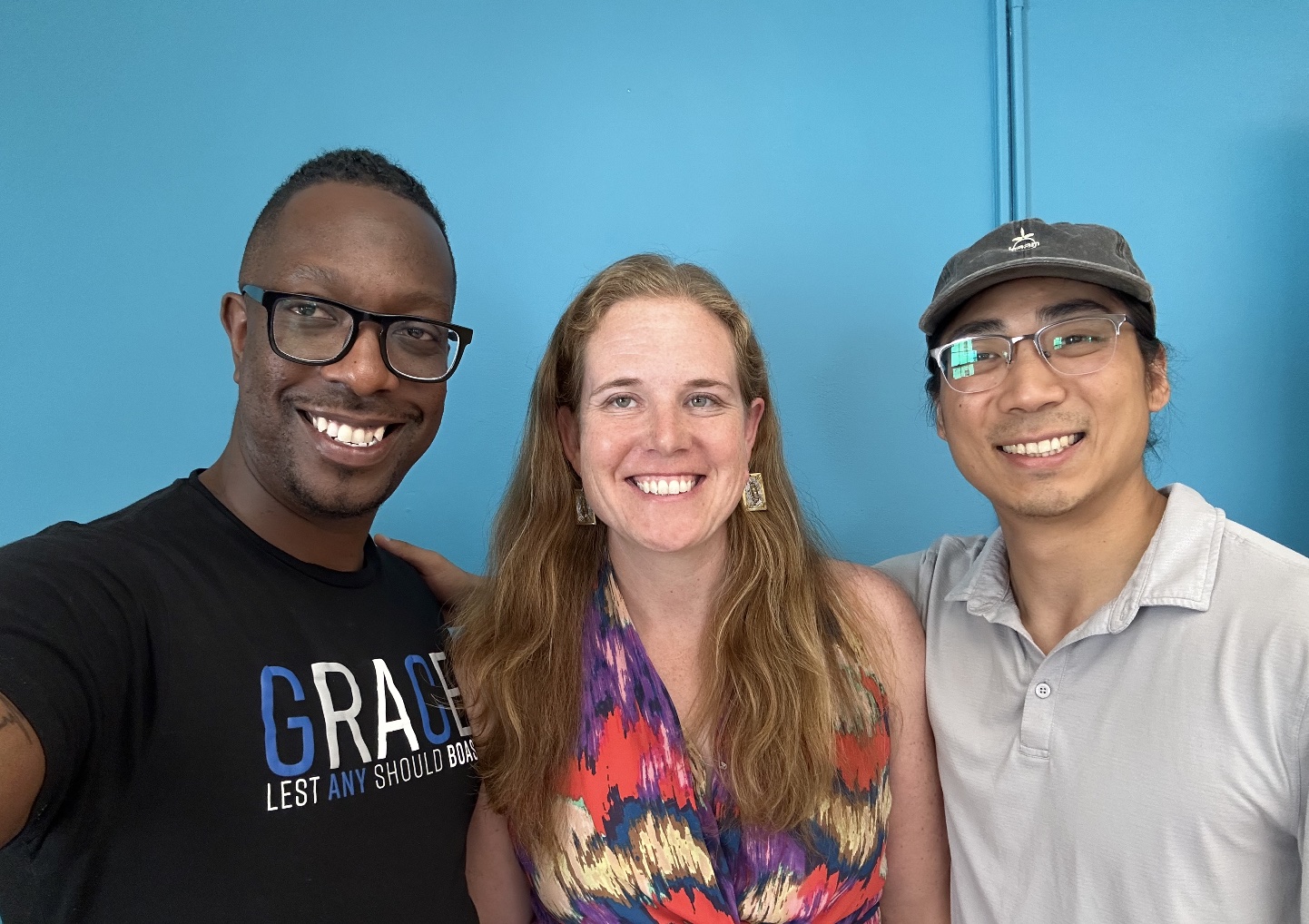
#4 – Our team expanded yet again this year as we were able to hire Calvin Lee as our communications administrator this August. Calvin’s skillsets in communication and graphic design have been a huge asset, and we have enjoyed dreaming with Calvin about the future of UniteBoston as he calls the Church to greater action and partnership.
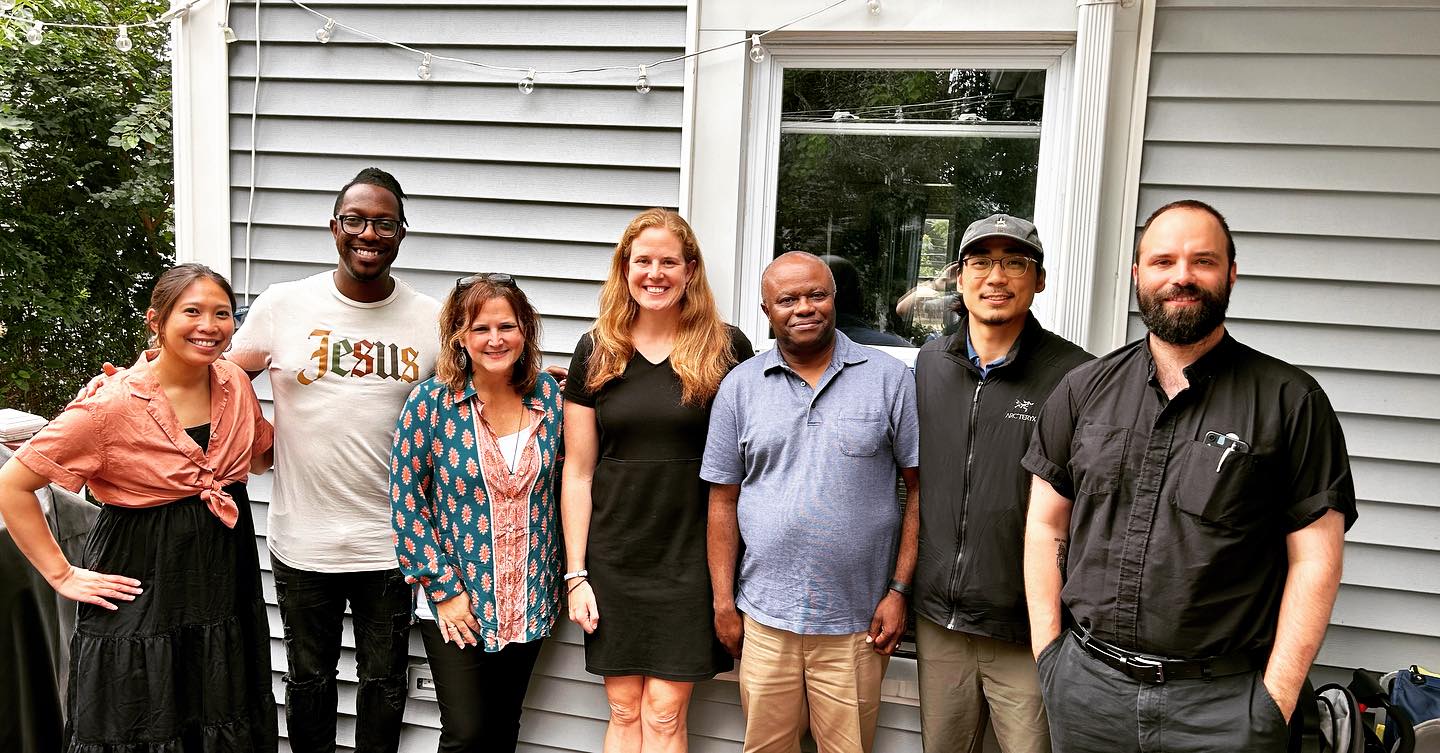
# 3 – In August, we hosted a board / staff retreat where we brainstormed about the biggest barriers hindering Christian unity in the city. Our team is currently developing a framework about how we can address these three barriers: imbalanced theology, righteous hubris, and historical injustices.
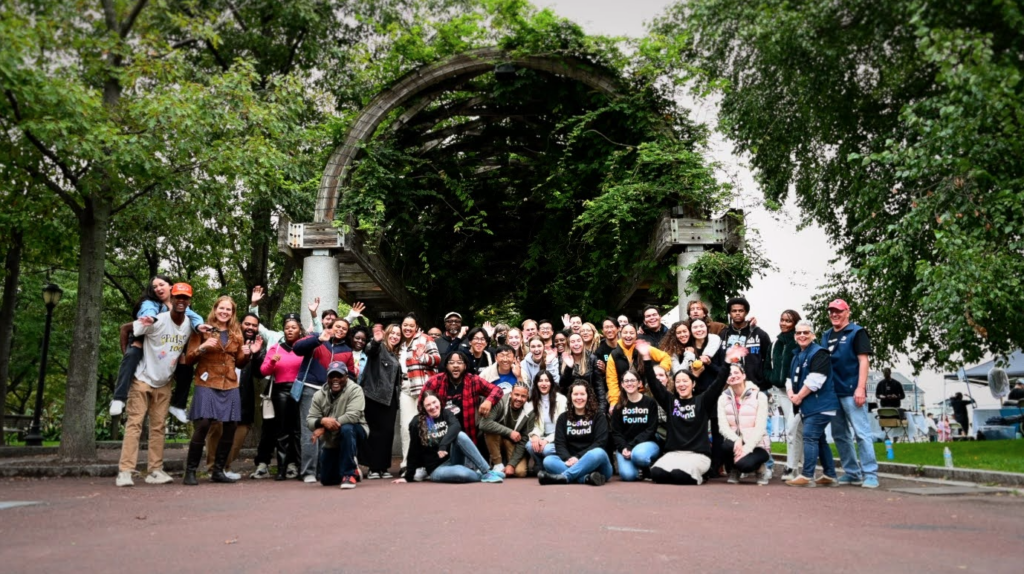
#2 – In September, we hosted the “Again I Say Rejoice” concert on the waterfront, which created a platform for six local Christian artists and the “God’s Chosen Gospel Choir” to lead the city in public Christian worship. There were 15 different organizations hosting ministry tables surrounding the perimeter of the gathering, 30+ members of a community choir, and hundreds of attendees and passersby who stopped by for a portion of the evening to listen to the music, learn about the various organizations in the city, or receive prayer! Check out our photoblog with stories, videos, and more here.
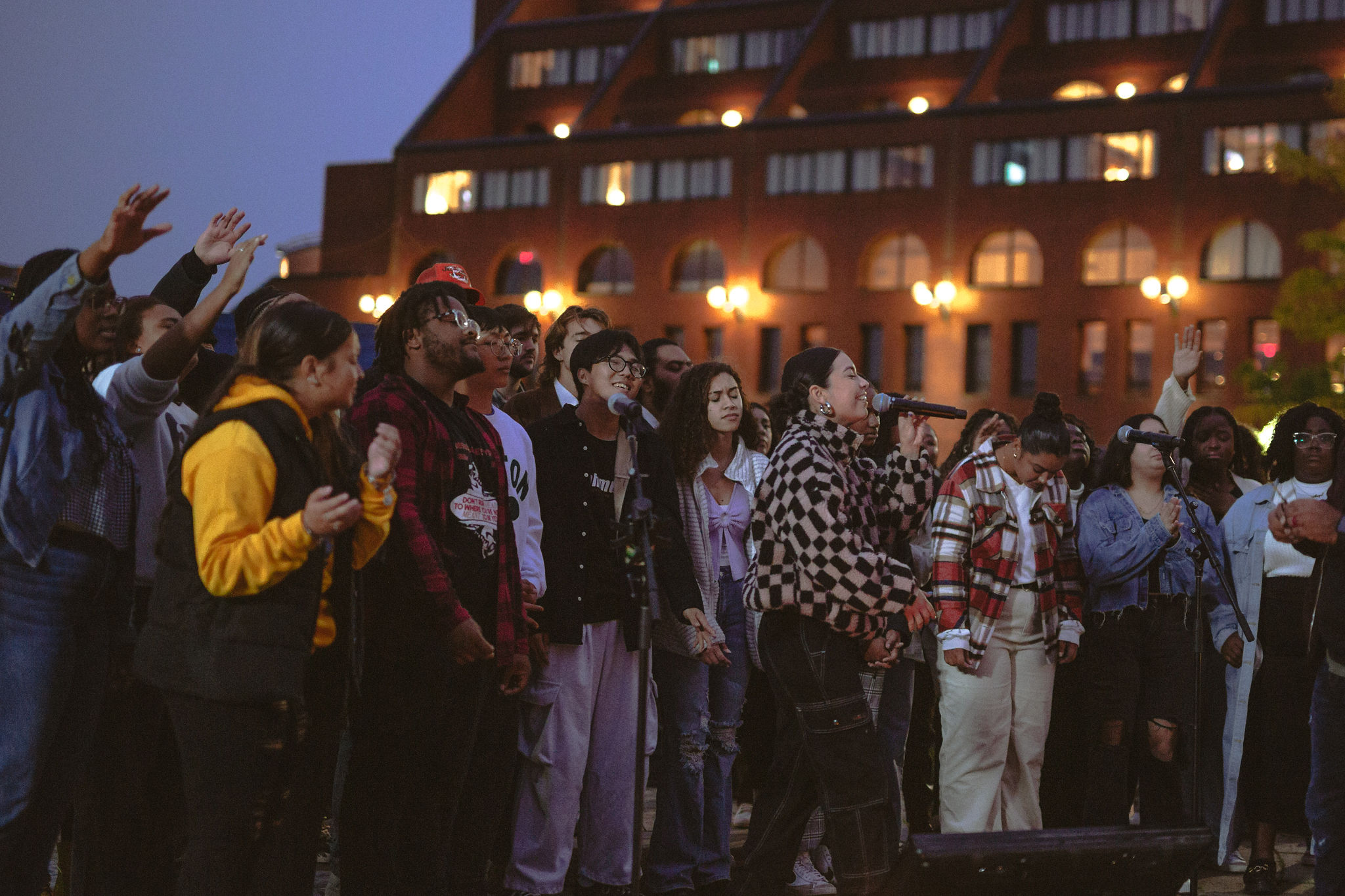
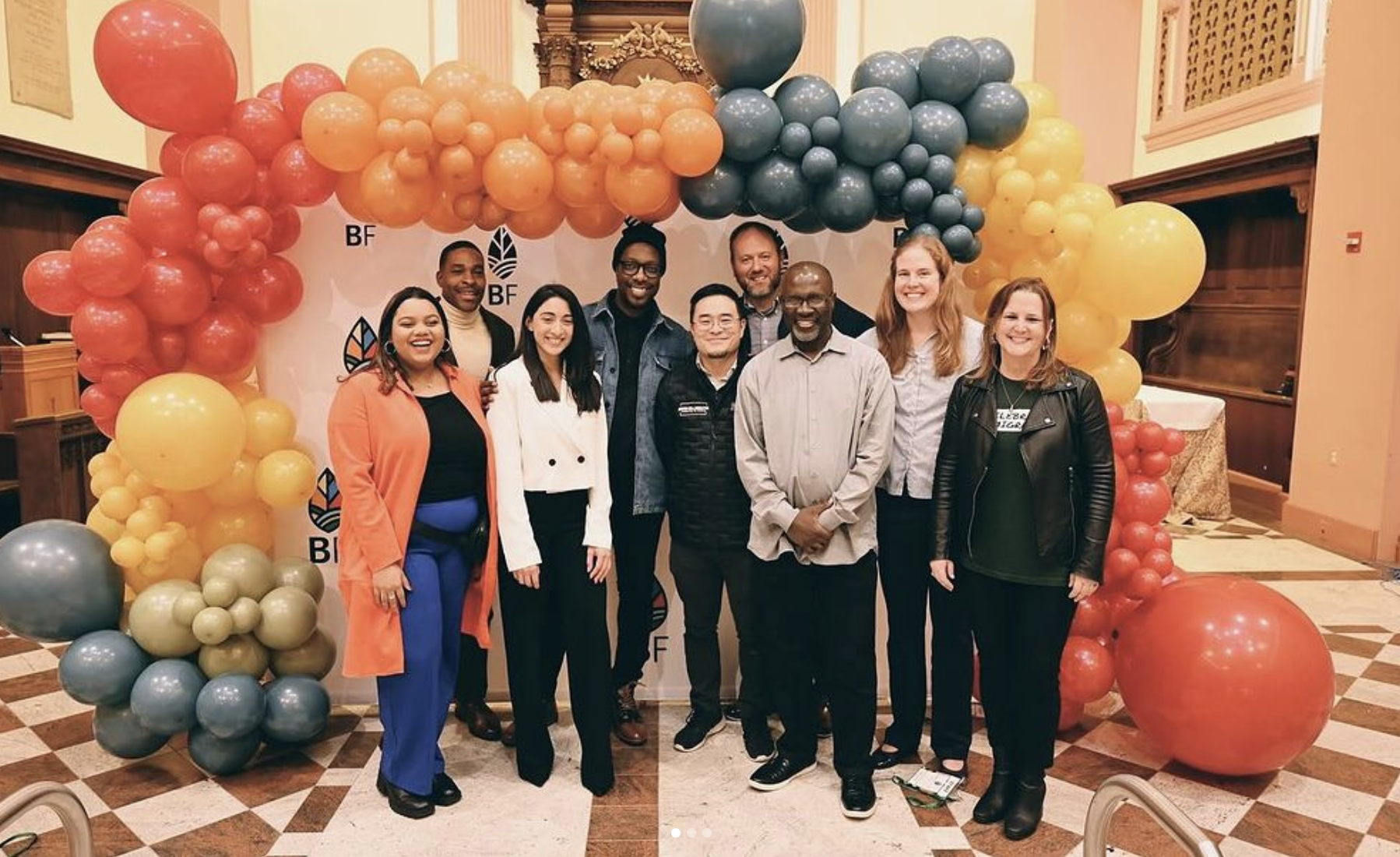
#1 – In November, we partnered with other local organizations to host the second annual Boston Flourish Conference, where we celebrated the many ways that God has been and is presently at work in the city and furthered this work by connecting together to strategically address issues facing Boston residents. This year, we galvanized people around migrant care, human trafficking, and youth trauma/mental health.
It’s been a great year! Thanks for joining with us – your prayers, participation, and finances have made this ministry happen! We look forward to seeing what God has in store for us in 2024!
uniteboston
KeymasterToday, we are featuring a blog post written by UniteBoston’s Executive Director Rev. Kelly Fassett. Having written this shortly after she birthed her second daughter, Kelly shares a moving reflection on the season of Advent and the meaning of the incarnation.
December 18, 2021
‘Hail, space for the uncontained God’
From the Agathistos Hymn,
Greece, VIcMany of you know that my family welcomed a beautiful little girl into our family and into the world on November 14. Today I wanted to share how raising a baby during Advent season has inspired new wonder and new questions.
I now wonder:
– How long was Mary’s labor? How painful were her contractions?
– Who was there to catch baby Jesus, as he entered the world?
– When leaving the stable, did she ride away on a donkey? (I know how tender your lower region is after delivering a baby!)
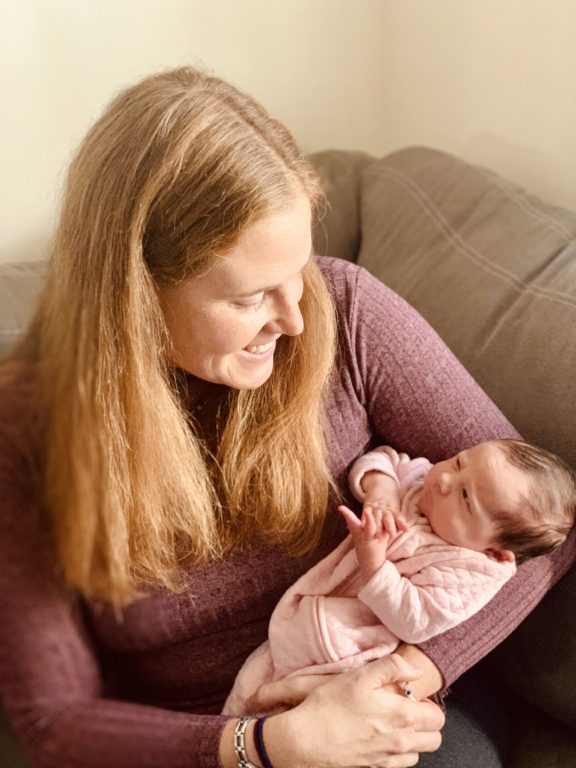
When I set baby Elyse on my chest, and consider the notion of God enfleshed… all that God is – all the love, mercy, power, and compassion… wrapped up into a tiny little human that is no bigger than two of your hands… What was it like to be Mary, to hold this Jesus in her arms and consider everything that the angel had said to her – that this little baby will be called the Son of the Most High; that He will reign over Jacob’s descendants forever; that His kingdom will never end (Lk 1:32)…
As I consider all of this, the wonder of the incarnation comes alive for me. Fully divine AND fully human. All-powerful and all-knowing in divinity… and yet so tiny, seemingly vulnerable, and defenseless.
God in human flesh. God with us.
Those five little fingers wrapping around mine… those deep blue eyes staring into mine… infinity and eternity within skin. The ineffable reality of God enfleshed.
In some ways it seems impossible… yet this is the stuff of the kingdom.
I look at my two-year-old Abigail, and wonder – What was Jesus like as a toddler? I know that Jesus was sinless.. A toddler who really did listen to his mother and father every time, obeying and never talking back? The wonder of that!
And when I hold my two little ones, the two girls that I carried for nine months in my womb and then birthed, I am filled with such love… coupled with the fierce desire to protect these little ones from all pain and difficulty that life would bring their way. Mary must have had similar feelings as she watched Jesus grow up… Yet how could she bear to watch those final hours, where her beloved son was brutally beaten, then painfully walked up the steep hill at Golgotha with the cross on his back, then the agony as nails pierced his bloody hands and He breathed his final breath.
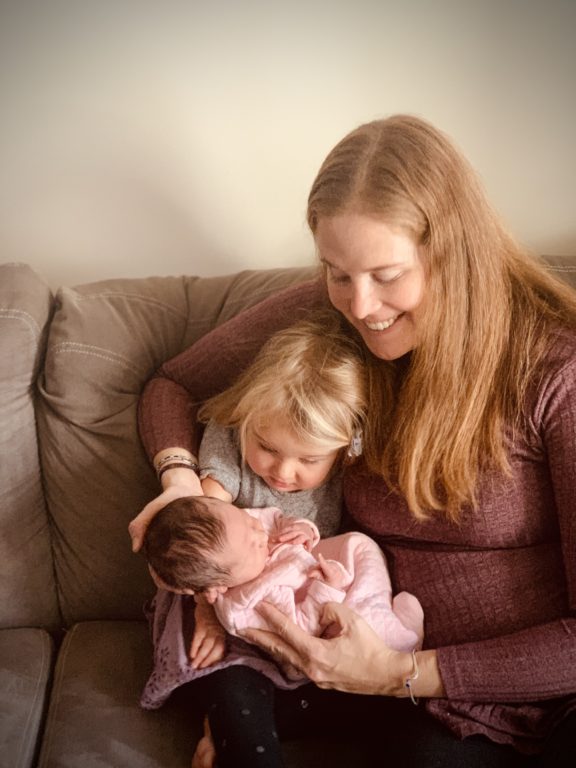
Was this the end? No… Jesus took the weight of sin on his shoulders, imputing it on our behalf for the sake of redeeming the world. The veil between God and humanity was forever torn. Glory.
And through these acts of incarnation and redemption, God displayed that He chooses to not exist aloof in the clouds but to come near to us, walking with us, and working through the limitations of our humanity, of our humble bodily vessels. God with us.
Mary questioned, ‘How can this be?’… yet obeyed. And in that moment she must have realized it all was true. May I be filled with such courage to believe the things of the kingdom.
Emmanuel. God with us. Hallelujah!
May we never forget the mystery, and the wonder, of the Incarnation.
“Let the Word, I pray, be to me, not as a word spoken only to pass away, but conceived and clothed in flesh, not in air, that he may remain with us. Let him be, not only to be heard with the ears, but to be seen with the eyes, touched with the hands, and borne on the shoulders. Let the Word be to me, not as a word written and silent, but incarnate and living.“ – Bernard of Clairvaux
December 1, 2023 at 9:27 am in reply to: Advent Resources: Waiting, Longing and Yearning for God Together #11486uniteboston
Keymaster“In Advent we are ushered into a time of waiting where we are connected again with our desire, our longing, and our yearning for God.”
This Sunday is the first Sunday of Advent, where Christians throughout the world are anticipating Jesus’ arrival and contemplating what it means for the God of the universe to be present with us. Katie Oxley, former director of the Young Adults Ministry at the Paulist Center (a Catholic community in downtown Boston) offers these resources and practices for all Christians to ready our hearts for the coming of Christ.
(This article was originally posted in 2018 and has been updated)

With Thanksgiving suddenly behind us, we are launched full-force into the Christmas season. Stores are all playing Christmas music, Starbucks has brought out their red cups, and Christmas Tree lots are popping up on every abandoned roadside corner.
Yet amidst the inevitable hustle and bustle of this time of year (this “getting ready” for Christmas), we often neglect the most important preparation we need to be doing–readying our hearts and lives for the coming of Christ. This is why remembering the season of Advent is important. In Advent we are ushered into a time of waiting where we are connected again with our desire, our longing, and our yearning for God. Joan Chittister, in the book The Liturgical Year, comments: “The year opens with Advent, the season that teaches us to wait for what is beyond the obvious. It trains us to see what is behind the apparent. Advent makes us look for God in all those places we have, until now, ignored.”
Advent is a time when we, too, are invited to sink deeply into ourselves and re-orient ourselves to the world and to God. It is a humble time of recognizing one’s need, and yearning for God’s powerful presence to break into the world.
The waiting we are called to do during Advent is not the busy, numbing, frenetic kind of waiting, but the stilling, germinating kind that connects you deeply with the present and your true self. We await the celebration of the human arrival of Jesus and we anticipate the eventual Second coming of Christ, but more profoundly, we open ourselves up to await the in-breaking of God into our own personal lives and communities here in the present. It is a time to connect with our hope and our desire.
Desire is more than wanting; it is longing, yearning, a deep-seated hope that has the power to burn into being a multitude of things. Theologian Wendy Farley, author of The Wounding and Healing of Desire, wrote, “Desire is the absurdity that holds open the infinity of possibility.” From experience, many of us have learned that desire itself often feels foolish. We are all familiar with the devastation of disappointment and have, in turn, used it to disown, numb, and shrink our desire.
Advent is a season for us to settle down deeply into ourselves–to hear our heart cry, to find that spark of life and hope deep within the darkness of unknowing. Desires unfulfilled. Hope unmet. Longing unsatisfied. It is a time of discernment, of waiting, of being present. It is an active waiting. Because of this, it seems appropriate that in the northern hemisphere, this is the darkest time of year. I’ve heard that that is one of the reasons why the celebration of Christmas was set for end of December. Because in a very real way, it is the Christ child that ushers in the light.
Just as in the Jewish tradition, each day begins at sunset, begins with darkness, so it seems appropriate that the beginning of the church calendar would likewise begin in stillness and the dark, with us facing our deepest fears and desires, cultivating our hope for the light. In the silence and the darkness, we hear our own heart’s cry, our own flame of desire, our own longing for God.
During the season of Advent I invite you to not get caught up in the frenetic chaos of holiday preparation, but do the work of preparing your soul, of reconnecting with yourself and your desire.
Practices
For Waiting:
–Advent Calendar: Whether it’s a common chocolate-filled one from the grocery store, or something you make yourself, have an Advent Calendar is a great way to mark the days of Advent and slow your pace in preparation for Christmas. This daily reminder of the season invites us to show up each day to reveal what lies hidden and trust that there is goodness even in darkness.
–Slow Decorating: Although the stores are already filled with Christmas lights and decorations, consider taking a slower approach in your own home. As tempting as it is to jump right into all the Christmas cheer, carve out space and time for Advent -intentional preparation. Consider waiting to listen to Christmas Music, or decorate your home with Advent decor instead of Christmas lights. One nice practice is to get a tree, but to slowly decorate it -one ornament a day to let to the preparation for Christmas be a slow build. And to remind us of the process of preparing.
-Scripture: (From Park Street Church) How would you define hope? Did you know that the word doesn’t appear in the Bible until Ruth 1:12, when Naomi uses it? After that, it occurs 184 times. Interestingly it is often translated “wait”!
See if these verses help you come up with a definition of hope. Notice how they incorporate both the saving and judging nature of God’s two comings.- Job 13:15-16
- Psalm 25:3,6,7
- Psalm 42:5
- Lamentations 3:19-25
- Rom. 5:1-6
- 1 Thessalonians 1:2, 3
- Hebrews 6:17-20
- 1 Peter 1:13
Also, meditate on (i.e. savor, chew slowly, ponder, repeat, reflect upon) Romans 8:22-25:
We know that the whole creation has been groaning as in the pains of childbirth right up to the present time. Not only so, but we ourselves, who have the firstfruits of the Spirit, groan inwardly as we wait eagerly for our adoption as sons, the redemption of our bodies. For in this hope we were saved. But hope that is seen is no hope at all. Who hopes for what he already has? But if we hope for what we do not yet have, we wait for it patiently.
– Reflection: Last, this one page PDF from Leadership Transformations invites you to consider God’s invitation to watch and wait this Advent season. Download it here and spend some slow and spacious time in prayerful reflection.
For Remembering:
-The Jesse Tree: This ancient practice is a great way to prepare for Christmas through Storytelling. A Jesse tree is typically a bunch of bare branches collected in a jar or vase, and then hung with different items or ornaments throughout Advent. Each of these ornaments is a symbol of a particular Bible story or Character. (like an Apple for Adam, or some wheat for Ruth) Each day as you hang the ornament reflect on that story, part of the Genealogy of Christ, and part of our own spiritual ancestry.
–Nativity Scene Journey: Sink into the story of Christ’s birth slowly by allowing your nativity scene to play out the story across your living room. Start with the Angel and Mary for the annunciation, then the journey to Bethlehem. The wise men can be traveling from the bedroom or some other location. Move each set along every few days throughout Advent and until Epiphany (when the Wise Men arrive).
For Preparing:
-Make an Advent Wreath: This is a practice often done in community at your local Parish, but can just as easily be done at home too. One of the best ways to do it is by going on a walk near your home and gathering items to make your own wreath –Fallen greens, berries, pine cones, etc. Once it’s made, set 4 candles (safely) in it and light one each week as you read the Scriptures for the week. Or as a way to intentionally reflect on the 4 markers of Advent: Hope, Peace, Joy, Love.
-Lectio Divina: Also called “sacred reading” Lectio divina is the process of sitting with a text and allowing God to speak to you through it. This is a great way to come into connection with God and to prepare you heart during the Advent Season. Try doing Lectio Divina during Advent with the O Antiphons or with the verses of O Come O Come Emmanuel.
Feast days/practices
-St. Nicholas -December 6th (Gifts in Stockings and Cookies)
–Immaculate Conception -December 8th (Song of Mary)
-St Lucy’s Day -December 13th (Make a Special Breakfast)
Thoughtful Blog posts, articles, and videos:
Check out the Zeteo Resource Guide for Advent to find links to a number of different Advent series ideas, including worship liturgies, prayer guides, sermons, candle series, and more.
Collection of art and reflections for the 4 weeks of Advent
Blogposts, podcasts, and resources
https://www.asacredjourney.net/advent-practices-resources/
Small video description of Advent
http://bustedhalo.com/video/watch-advent-two-minutes
A digital Advent Calendar with new reflections and resources each day
https://advent.bustedhalo.com/
Great collection of resources: videos, reading material, and practices:
http://bustedhalo.com/?s=Advent
Another digital Advent Calendar with new reflections and resources each day
http://grottonetwork.com/advent-calendar/
Collection of resources: videos, reading material, and practices:
https://godinallthings.com/?s=advent
Great collection of resources: videos, reading material, and practices:
https://www.ignatianspirituality.com/?s=Advent
Collection of Essays/posts about Advent
https://theseattleschool.edu/?s=Advent&submit=Search
Collection of resources: videos, reading material, and practices:
http://www.missioalliance.org/search/Advent/
Practice ideas: including food & music & options for kids
http://www.carrotsformichaelmas.com/2017/11/30/liturgical-living-at-a-glance-december-2017/
Reading Material:
Preparing for Christmas -Richard Rohr
To Dance with God -Gertrude Mueller Nelson
The Liturgical Year -Joan Chittister
November 21, 2023 at 2:15 pm in reply to: Photos & Stories from UniteBoston’s Again I Say Rejoice Concert #23466uniteboston
Keymaster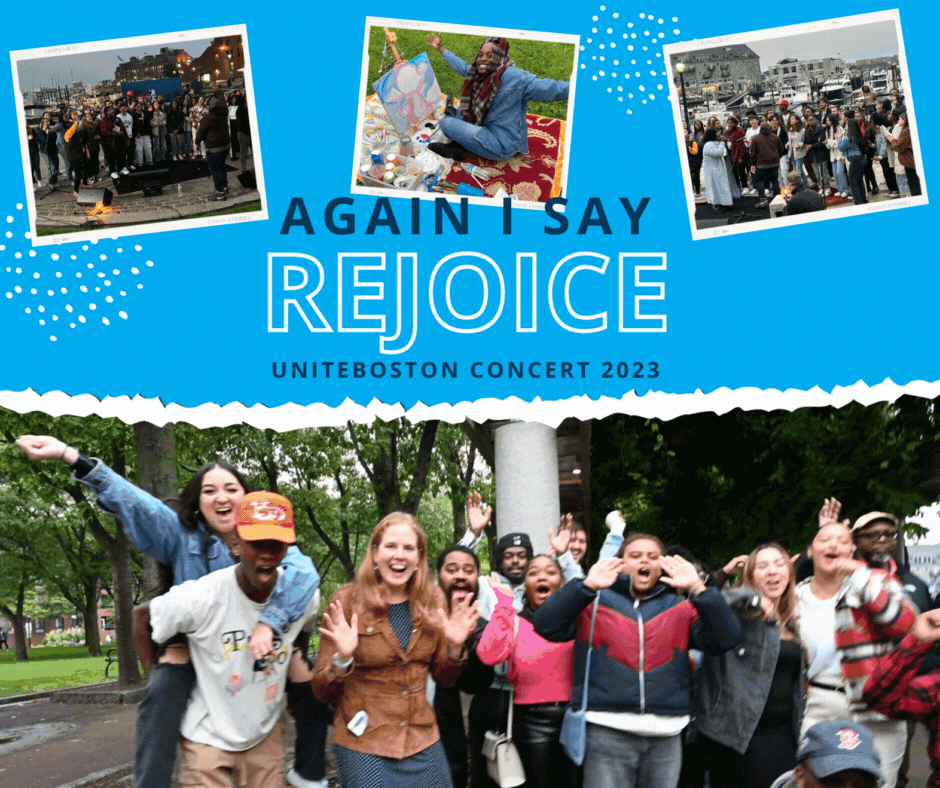
“Rejoice in the Lord always; again I will say, rejoice.” (Philippians 4:4)
We had an amazing time hosting the “Again I Say Rejoice” concert on the waterfront with families, college students, and everyone in between! This year, we were joined by local musicians, singers, dancers, and poets who brought their amazing talents to the UniteBoston stage. There were 15 different organizations hosting ministry tables surrounding the perimeter of the gathering, 30+ members of a community choir, and hundreds of attendees and passersby who stopped by for a portion of the evening to listen to the music, learn about the various organizations in the city, or receive prayer.
Read on to see photos and read personal testimonies about the impact of this gathering! You can also click here to listen to the playlist for the concert on Youtube!
“This gathering was amazing and I know so much work must have gone into it… So cool to see a united Christian presence downtown. I had several conversations with folks passing by who were curious… What a huge opportunity for the church to come together… Thanks for all you did to make it happen!!!”
– Lisa Oelrich, Executive Director – Alpha New England
“The joy I saw at Unite Boston was unlike “normal” worship I’ve been part of! The diversity of music and people truly demonstrated the expanse of the family of God. I sang in the gospel choir, and there’s something about gospel music that just drops all your anxiety about “performing” and instead brings us all into a moment of shared worship. Truly an encouraging and uplifting experience!”
– Ben Hampson, Riverwalk Church (formerly Highrock Brookline)
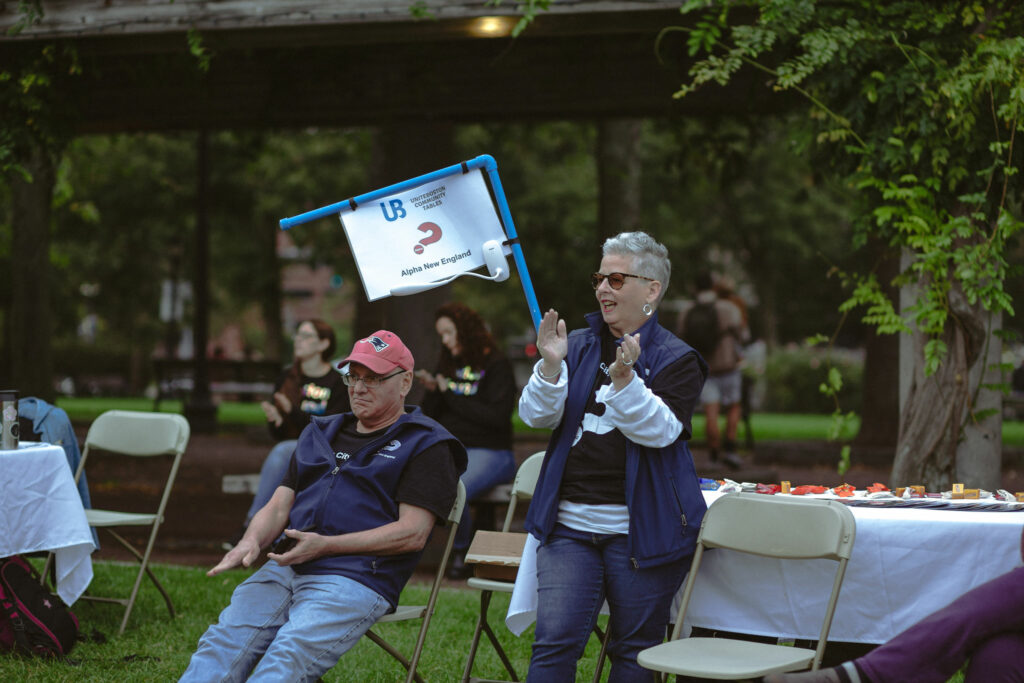
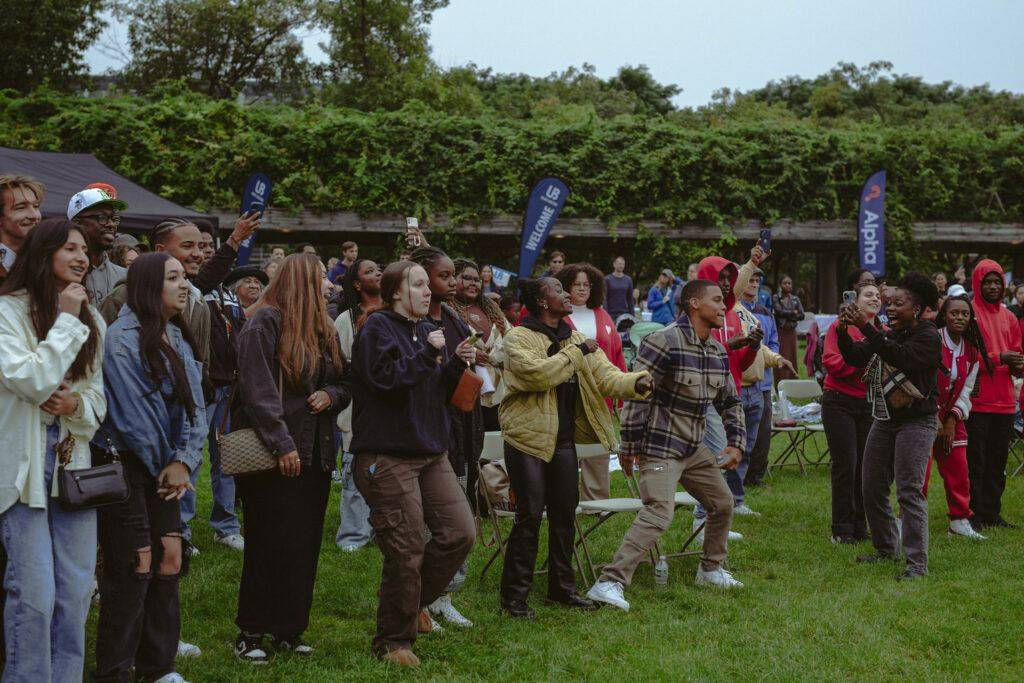
“This was a beautiful time of worship with a diverse community. I loved seeing people walking by downtown and then deciding to engage with the music and the message!”
-Caleb McCoy, Emmanuel Gospel Center, Rapper, producer, and creator of The OAK
This year, we brought together the community and had the opportunity to make room for ministries from across the city to share their mission with the city.
“The concert was a really good time! It was nice to catch up with some long-time ministry friends. The weather held off nicely, and the music, as well as the rap songs, were awesome. I really noticed a very diverse crowd stopping by to listen to what was going on. My sense was that people who might not normally go to church were intrigued and stopped to listen, some of them sitting for awhile. Folks in the hotel next door were also commenting on the concert. You guys really shined the light out there in Boston! Great job, God bless you all!”
-Bruce Swan, Victory Church in Sharon
There were a lot of great moments of rejoicing:
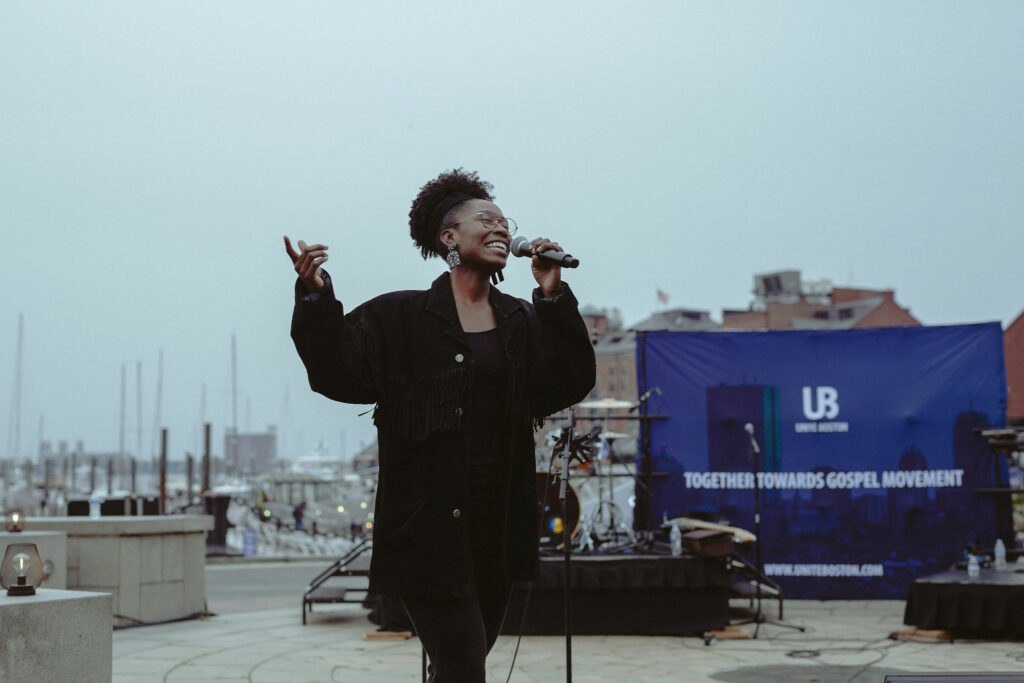
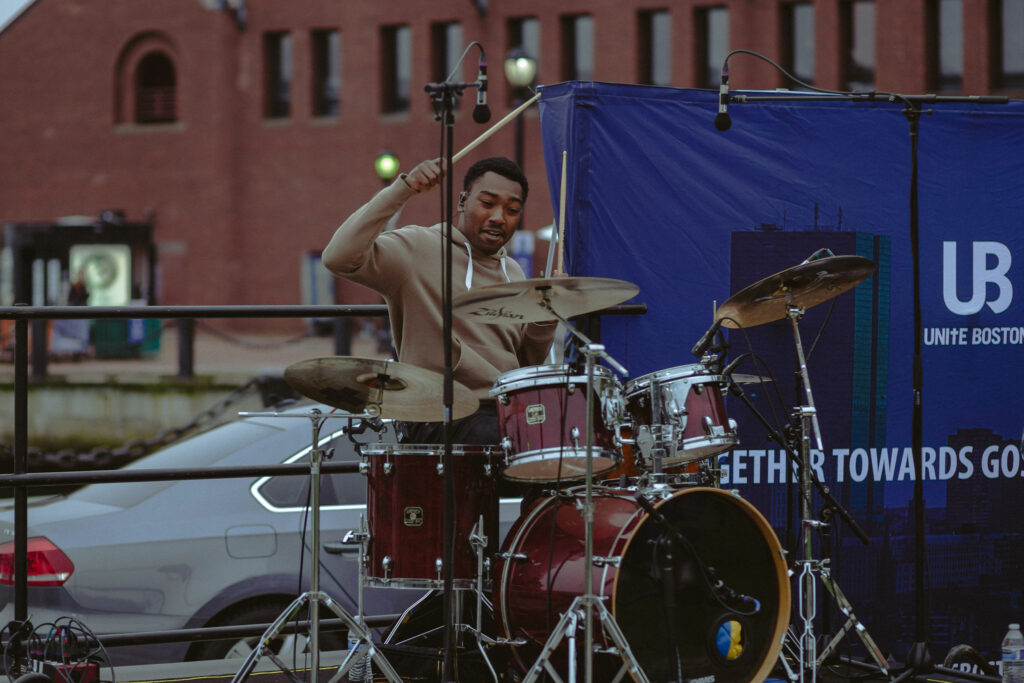
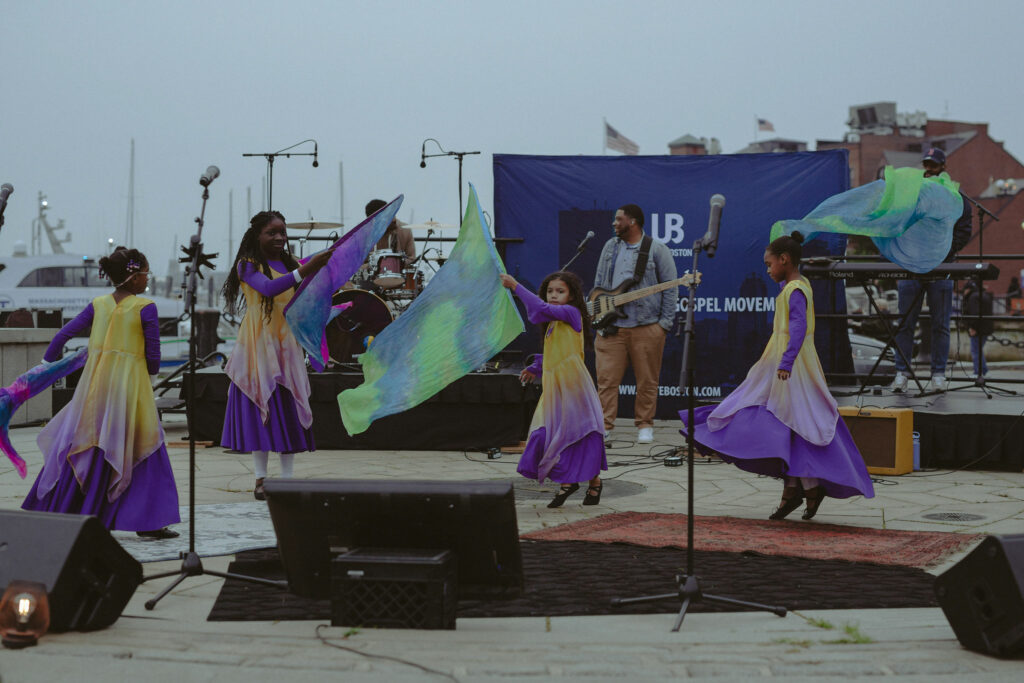
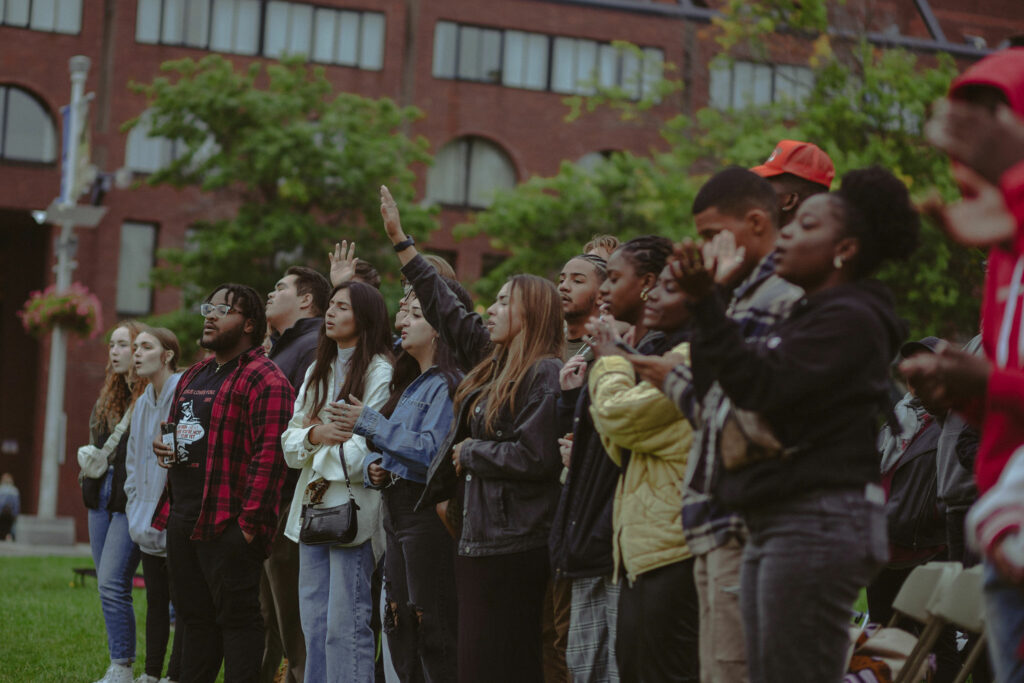
Amber Jogie’s spoken word piece on “Again I Say Rejoice” We also had the pleasure of building a community choir that brought together members from Gordon College God’s Chosen Gospel Choir and members of the community who have a passion for worshipping God.
“It was an absolute blessing to worship the name of Jesus in the middle of Boston!! Working the Gordon booth, and as an alum myself, it was a gift to see so many Gordon students and alum engaging with the community as worshippers themselves! I met a family that heard the worship from across the street, and they stopped by and stayed the rest of the night. They were from out of town and were so amazed by the faith we have here! God is doing big things in the city of Boston.”
-Deborah Sullivan, Assistant Director of Admissions Events and Strategic Partnerships, Gordon College
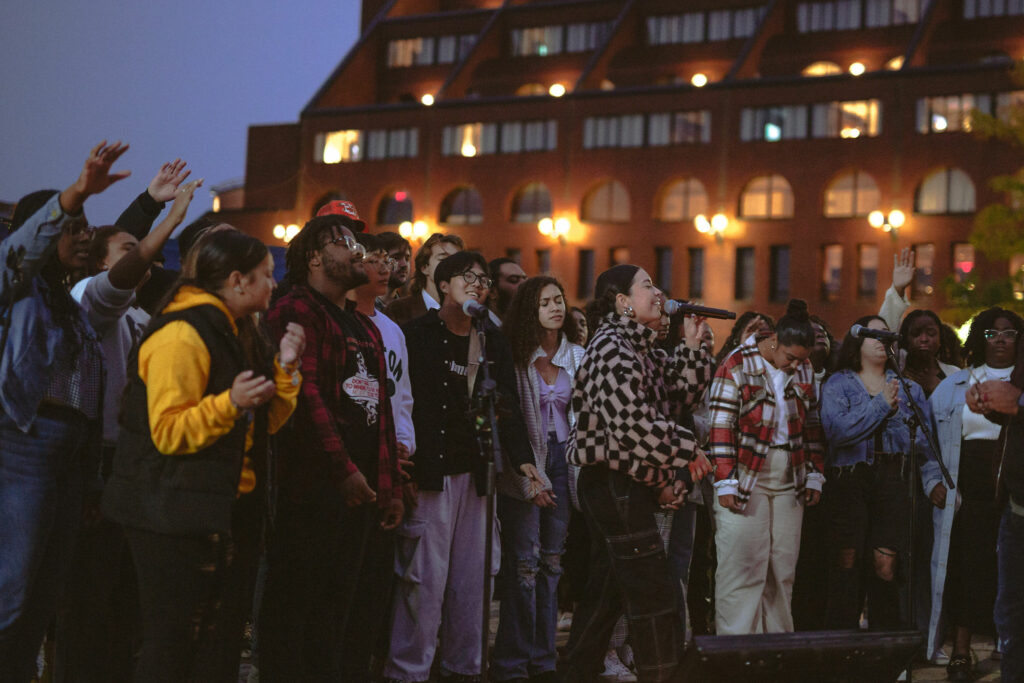
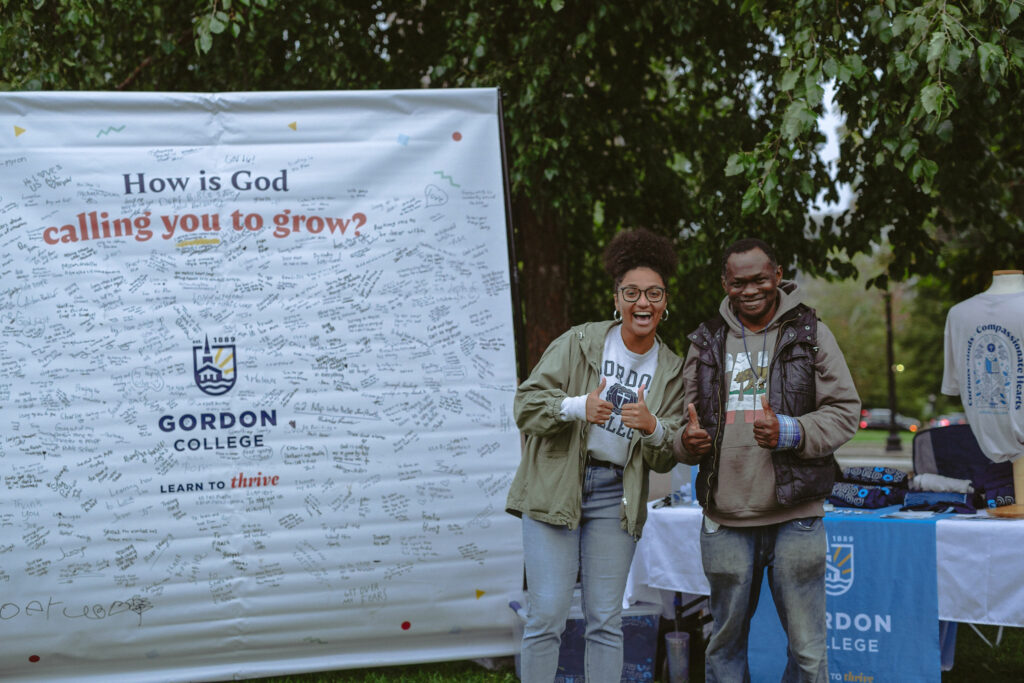
“I was on the prayer team and we went around handing out cards before the event as well. We met a lot of people, including someone I met who had volunteered with Spring Water (the new after-abortion clinic) and I was able to get them connected with Boston Center for Pregnancy Choices! We met a few people who said they were not religious but were still open to receiving prayer and they seemed to be thankful for the prayer afterwards. This concert was a great way to connect with Christians and also non-Christians in a fun setting.”
-Adele Chang
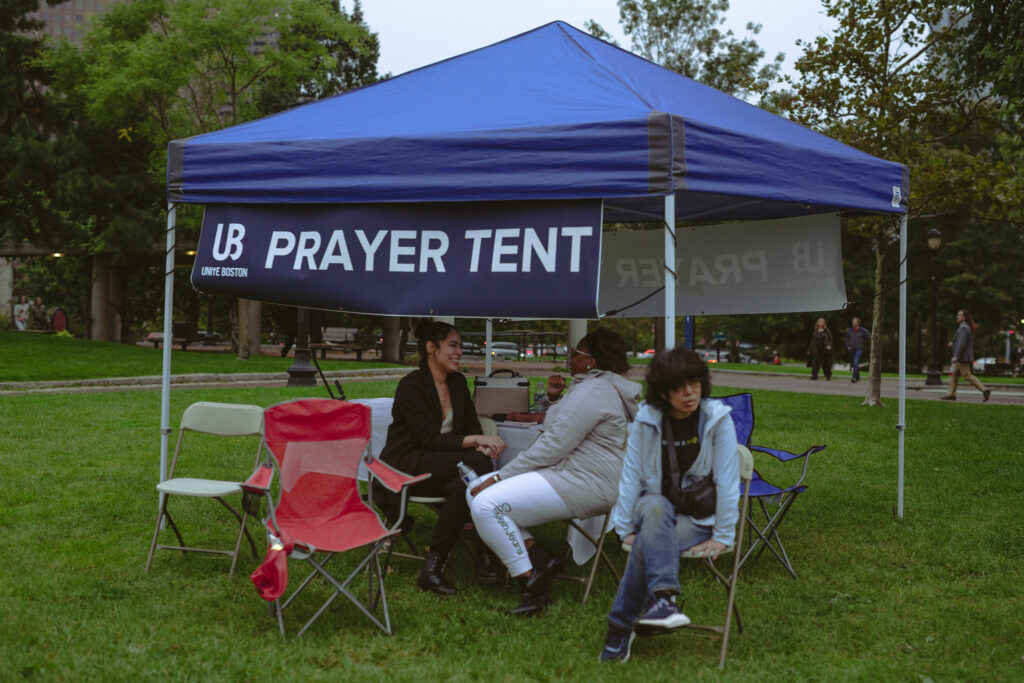
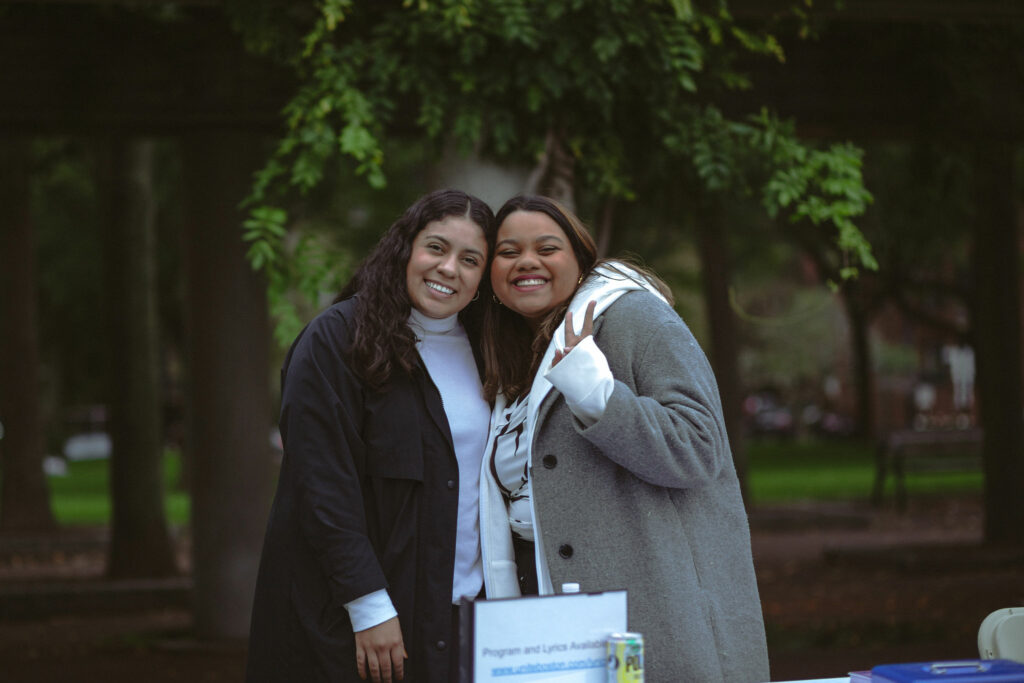
Alexis Monroe and DJ were the MCs for the event and Jubilee Worcester’s dance ministry brought their liturgical gifts during the program intermission along with Boston Found acapella group.
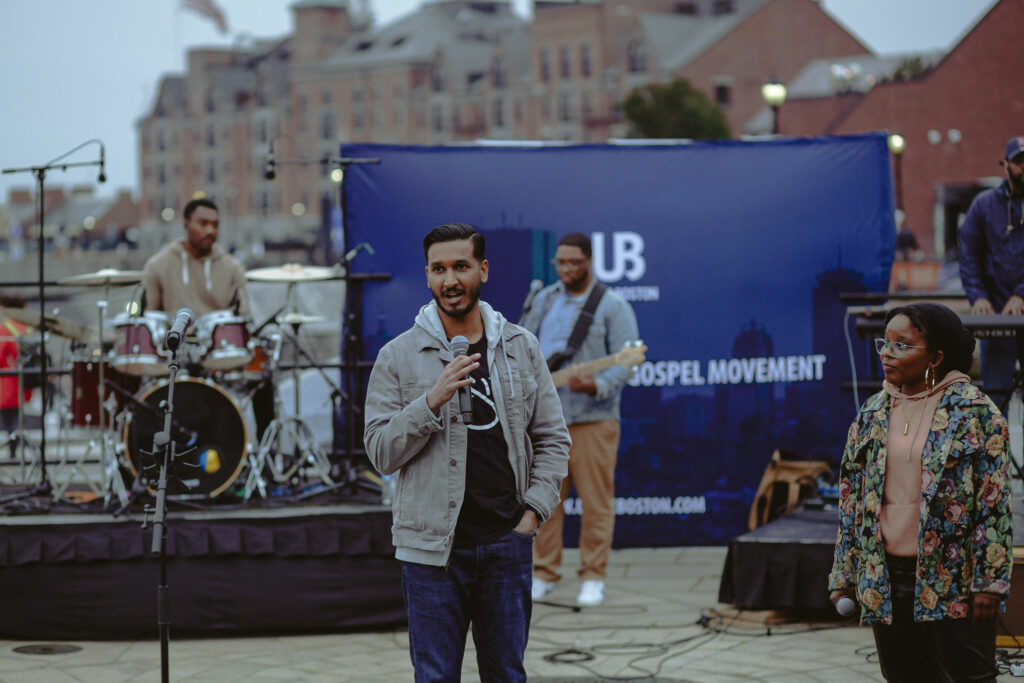
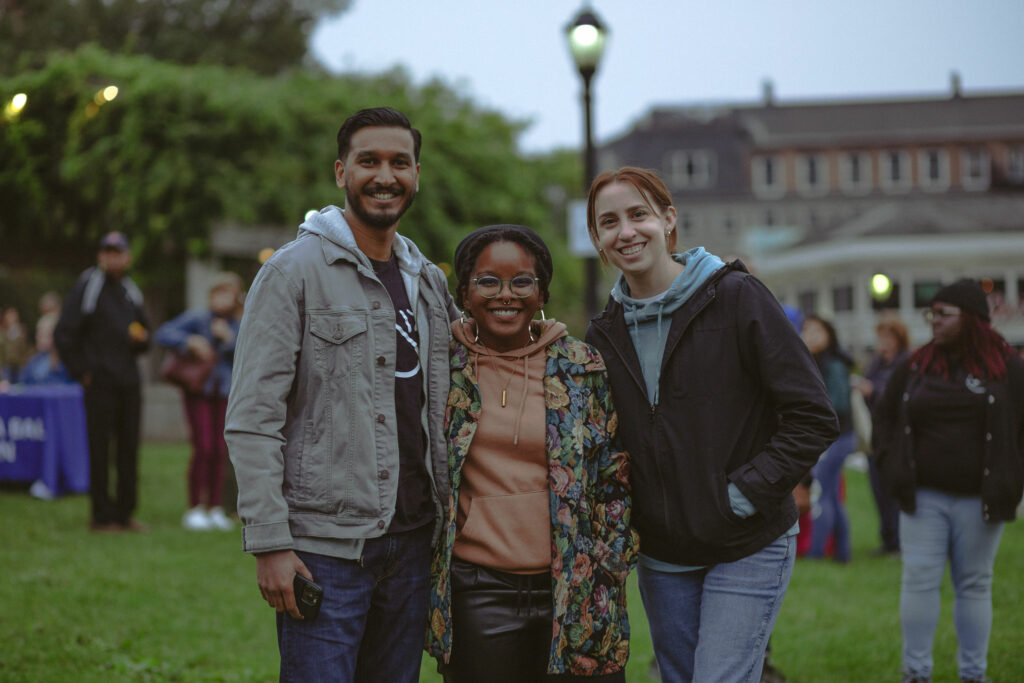
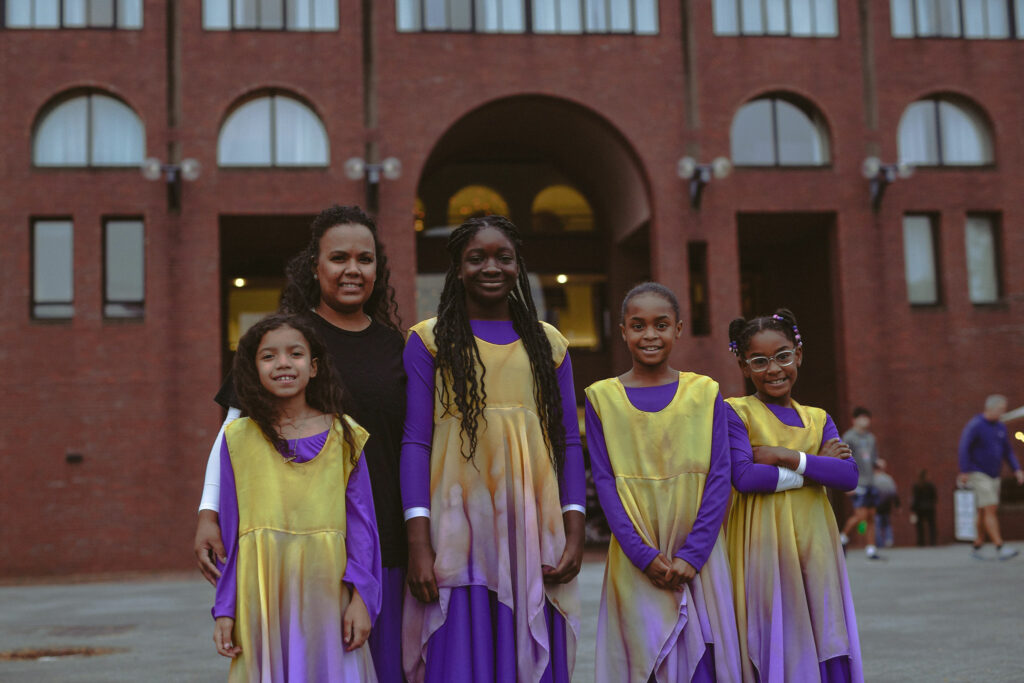
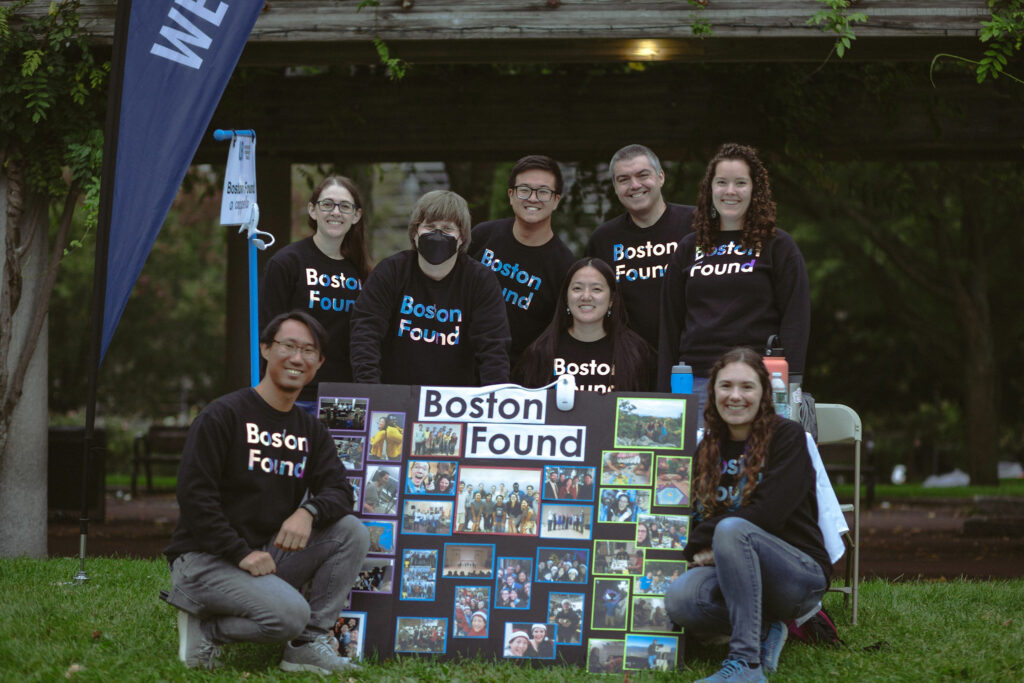
“I’ve been a Christian my whole life, grew up in a Christian home, and have been attending church ever since I was very young. I’ve only been to one Christian concert before this event. Attending the “Rejoice” concert made me realize that yes, Sundays are the main days for church, but worshiping God can really happen anywhere, at any time, and while I’m doing anything, and if that means singing out loud in the middle of a park in Boston then that counts too! This was impactful for me because I’ve always had the stereotypical thought that Sundays in general are the main days to worship God, but that’s definitely not true. The more we involve and invite God into our lives and worship Him everywhere we go, the more we can continue to glorify His name and show others His love for us.”
-Melody Kwong, Boston Chinese Evangelical Church
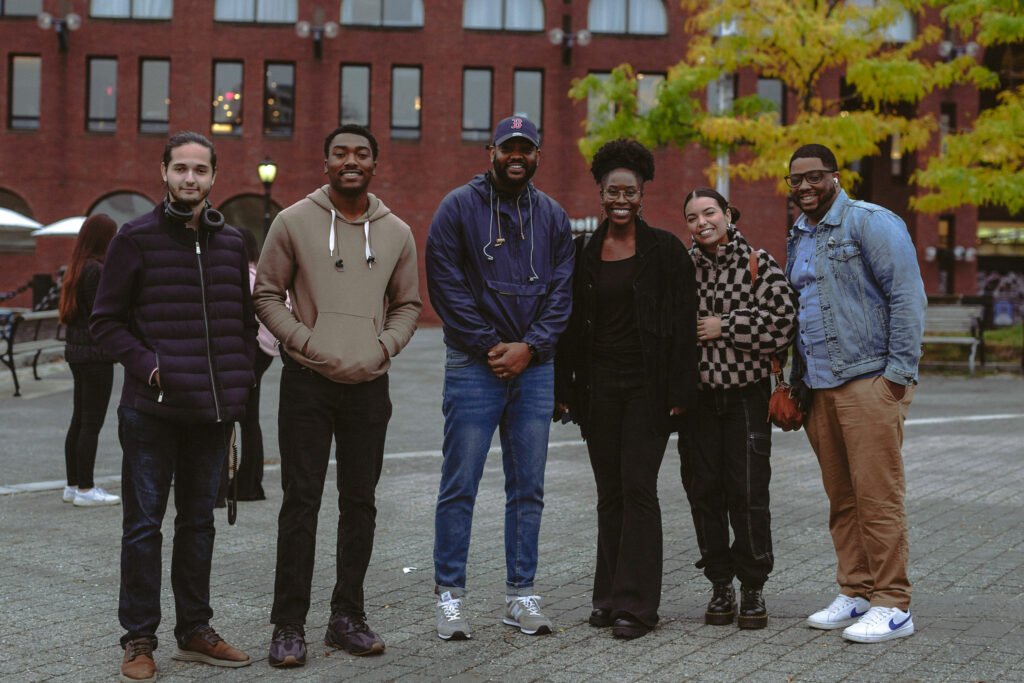
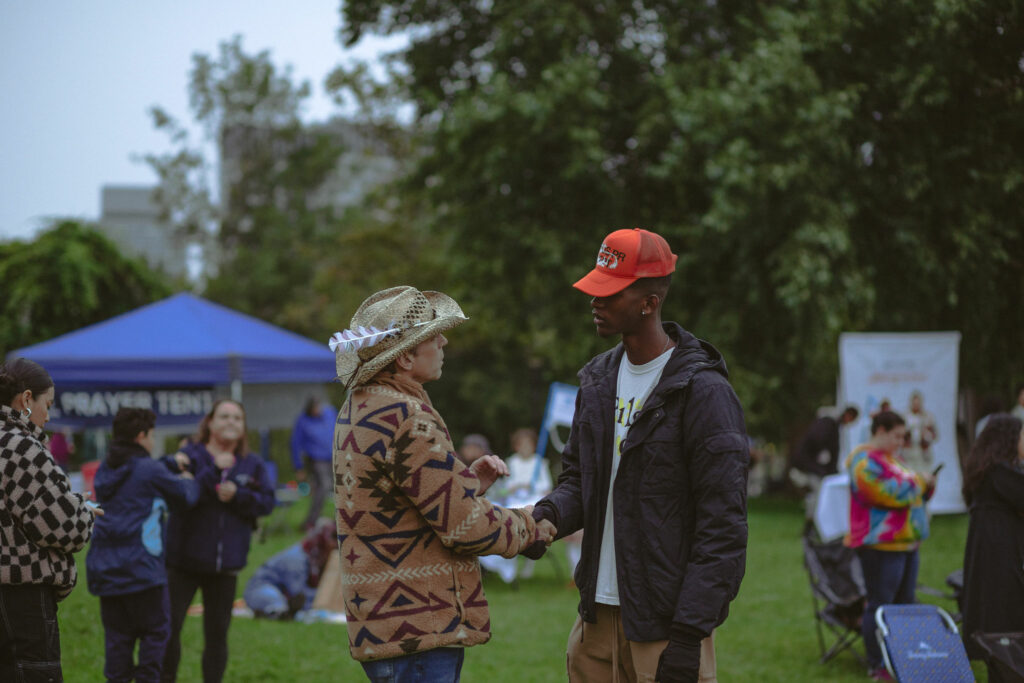

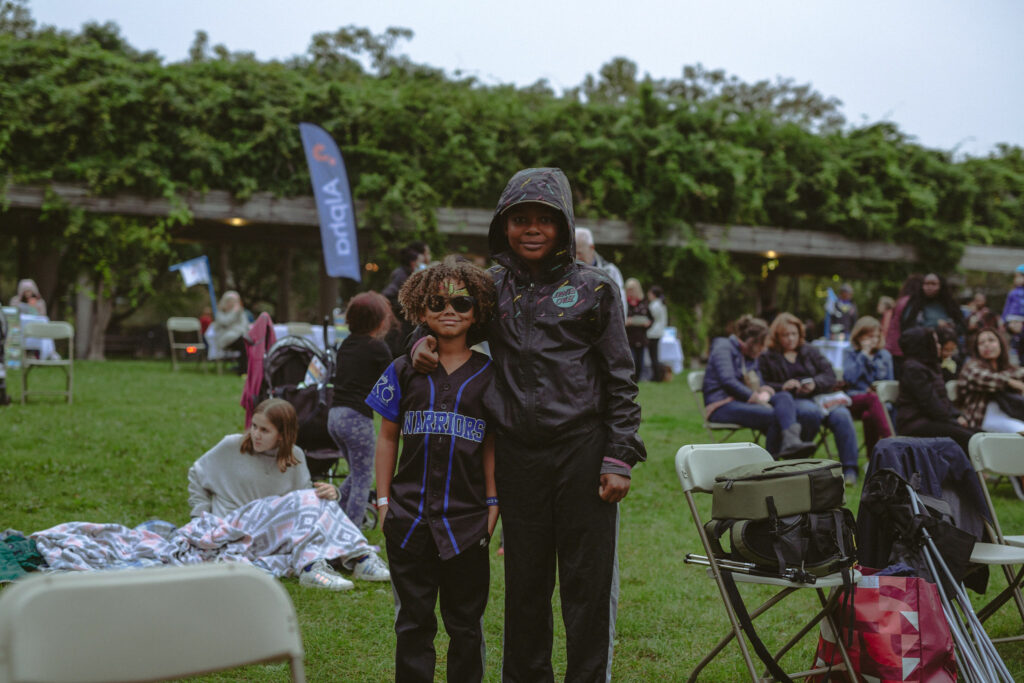
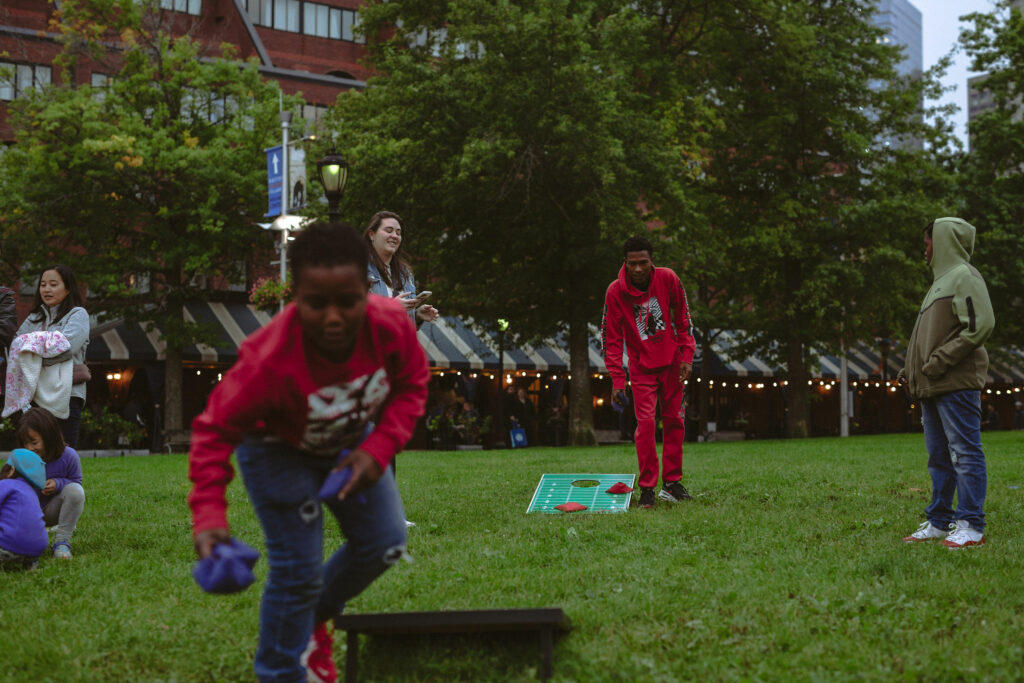
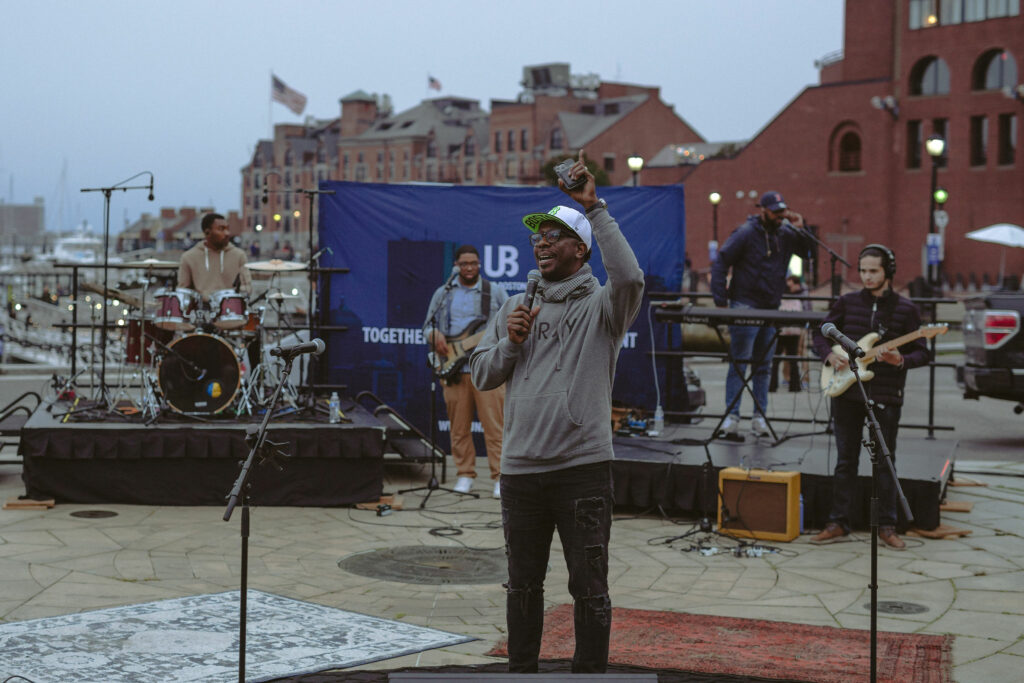
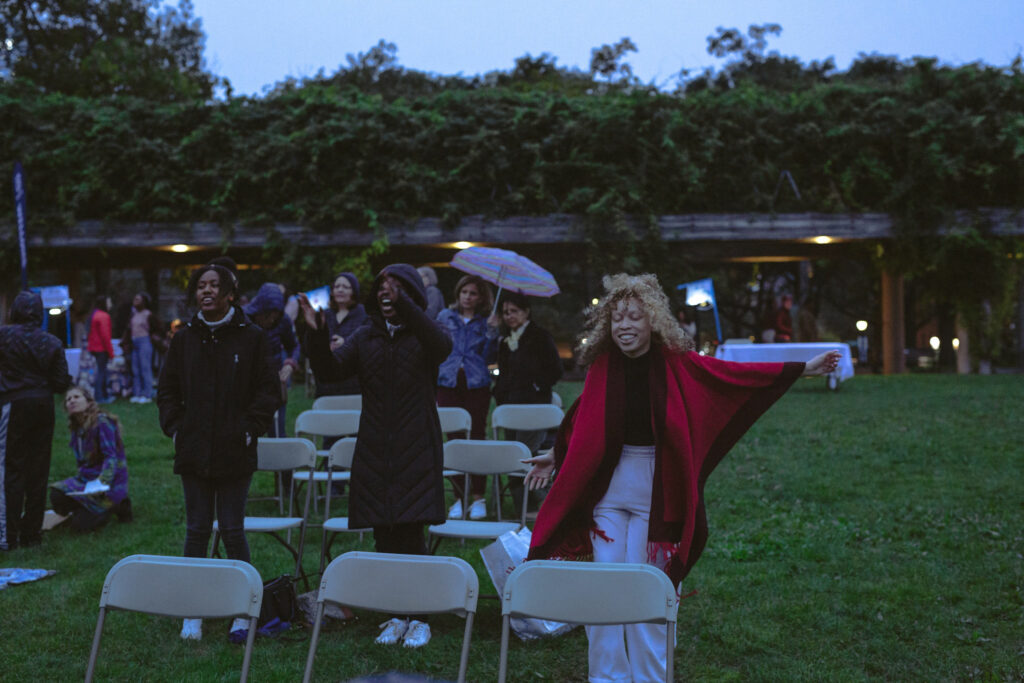
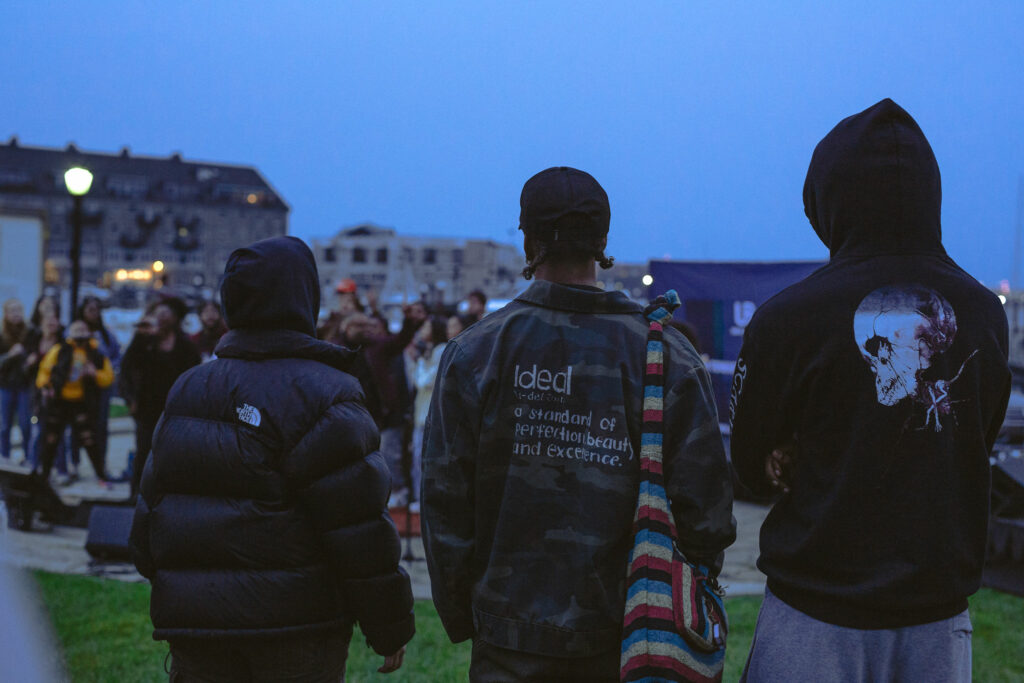
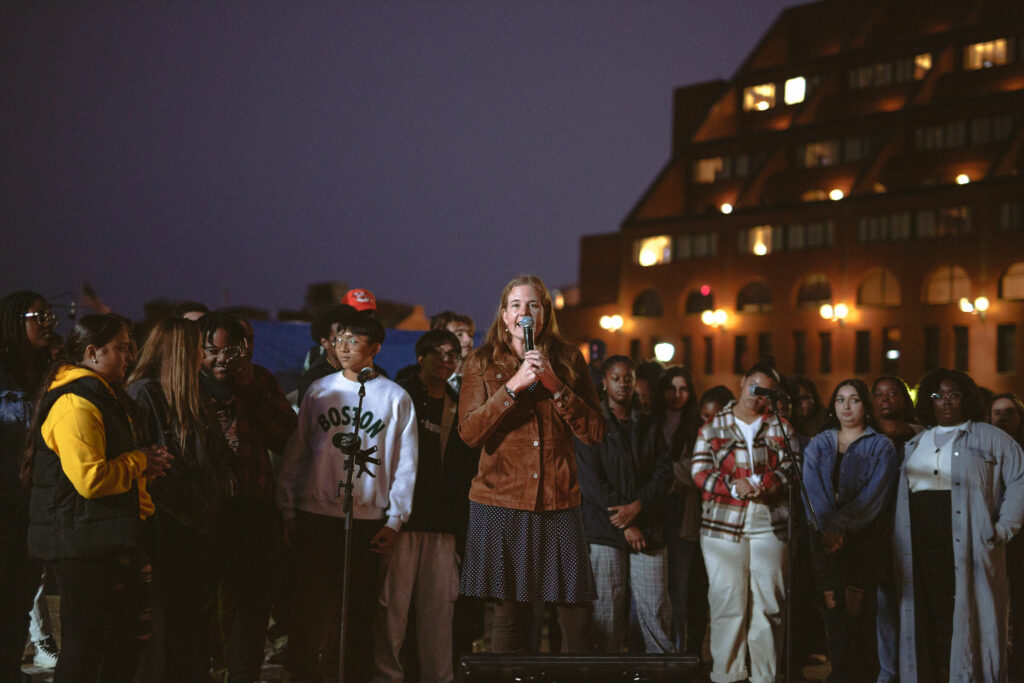
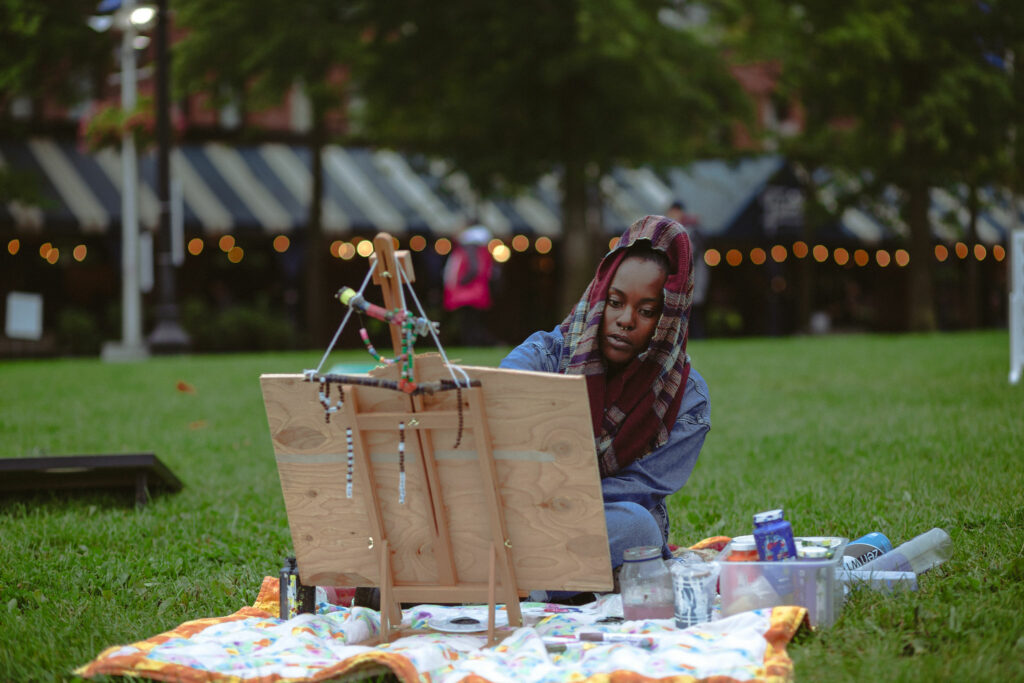
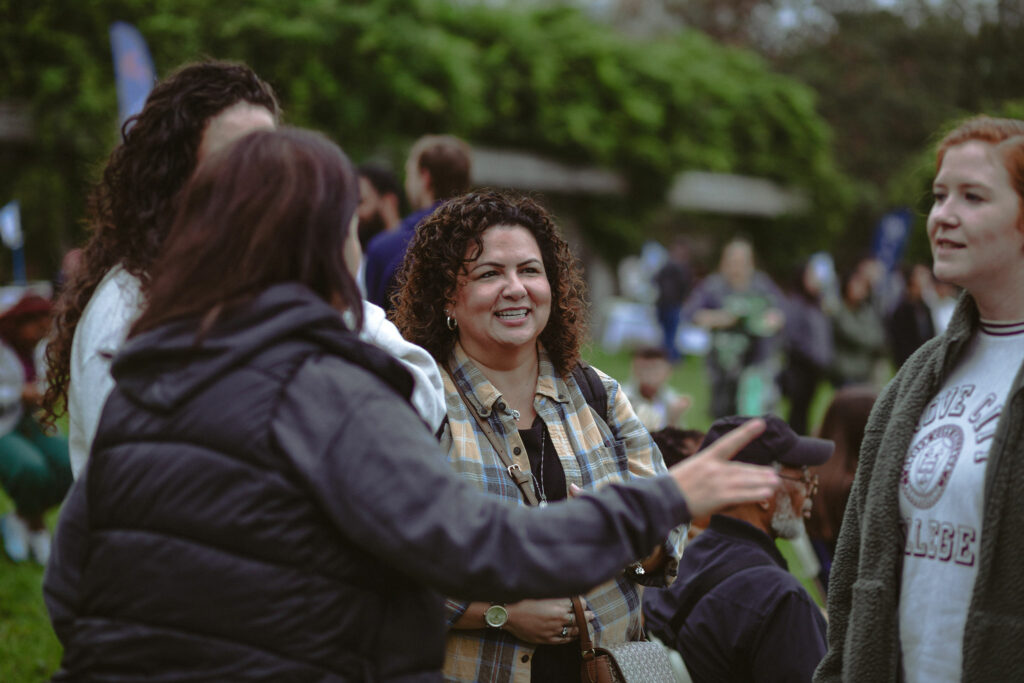
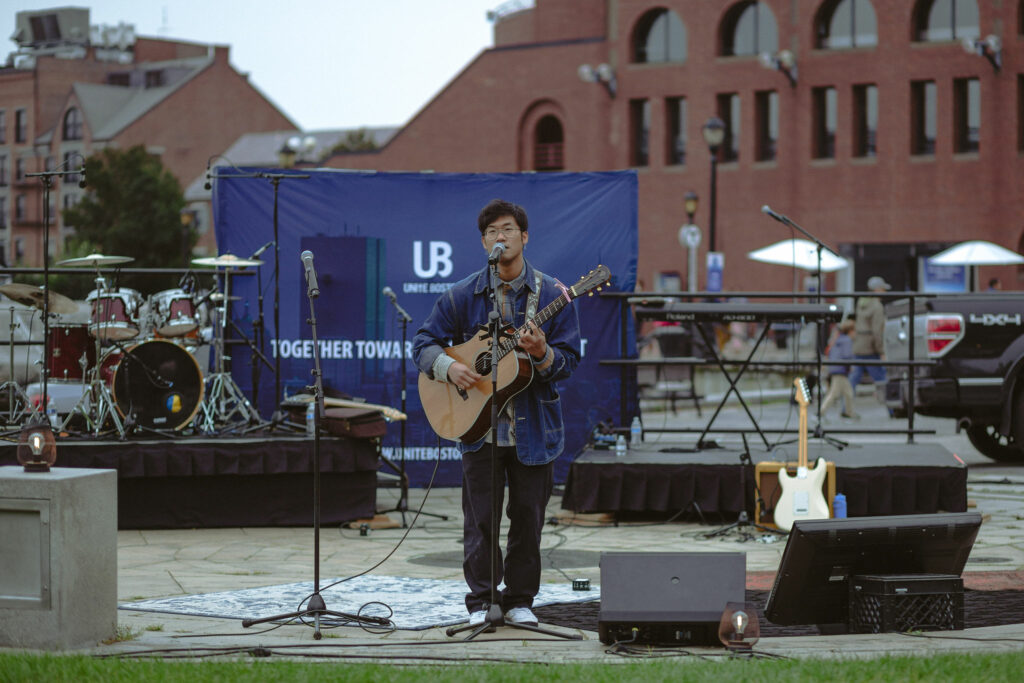
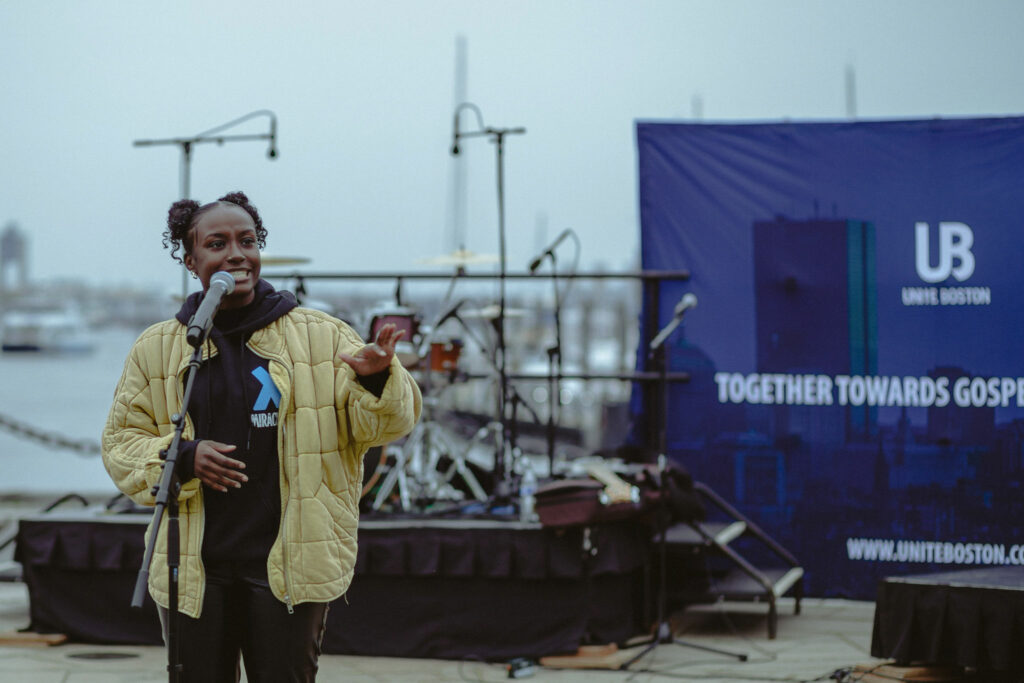
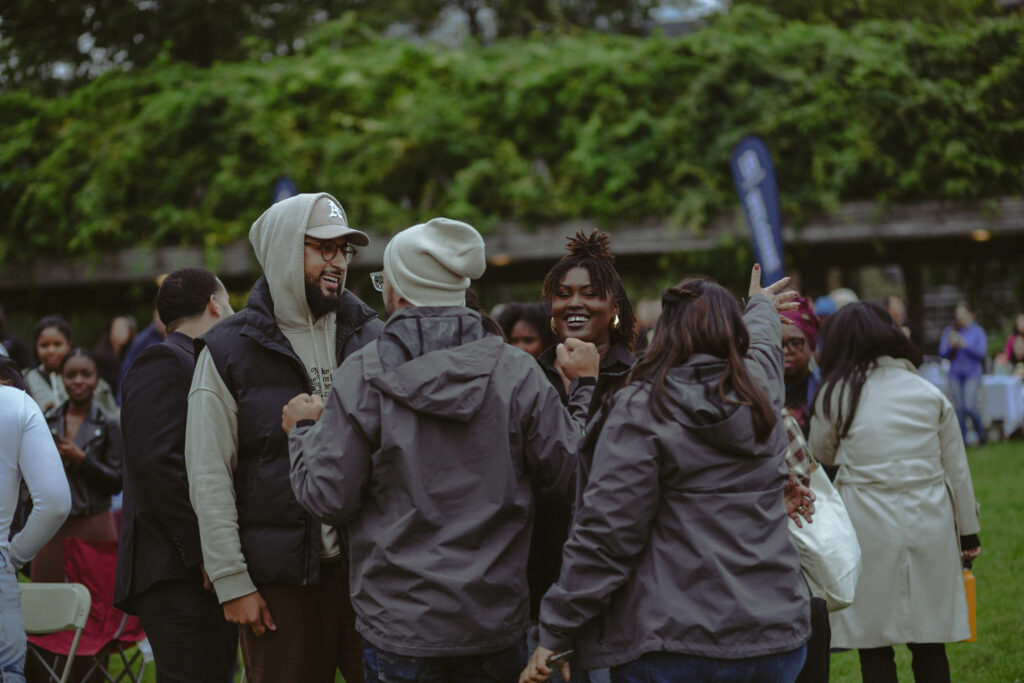
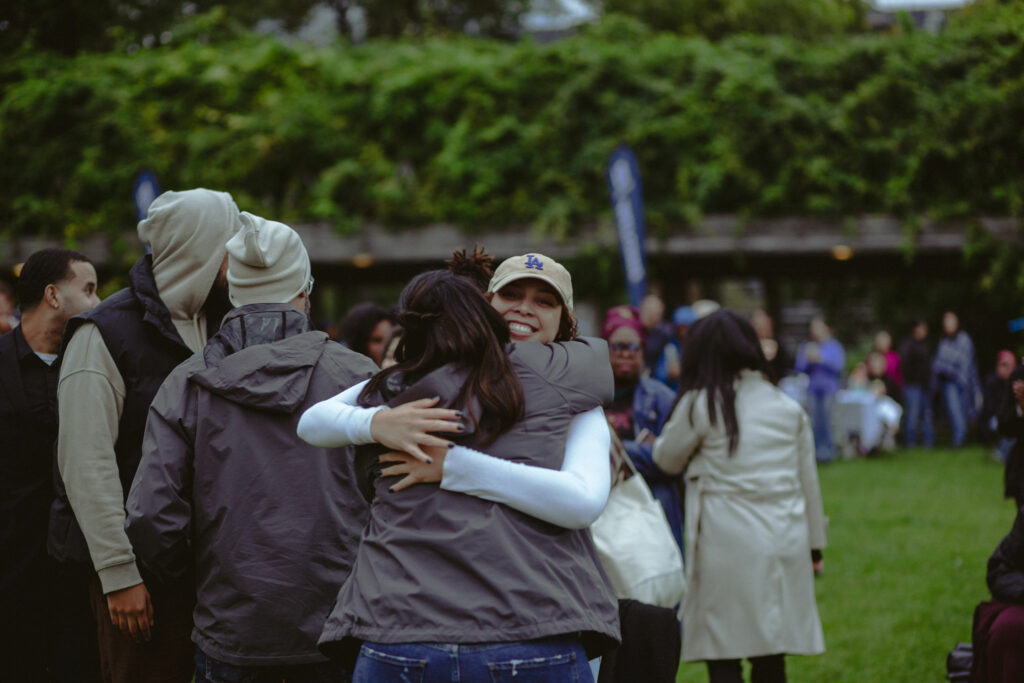


-
AuthorPosts